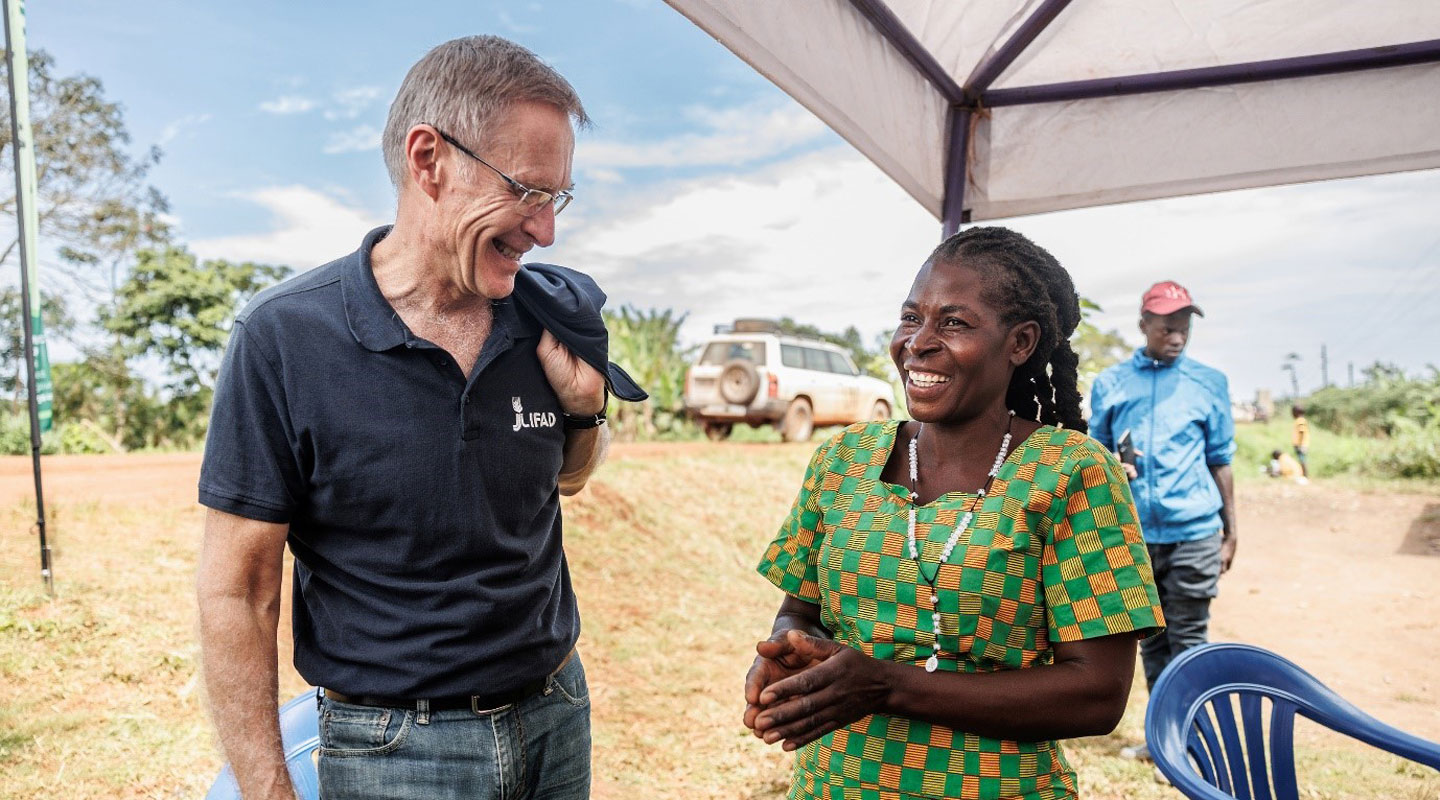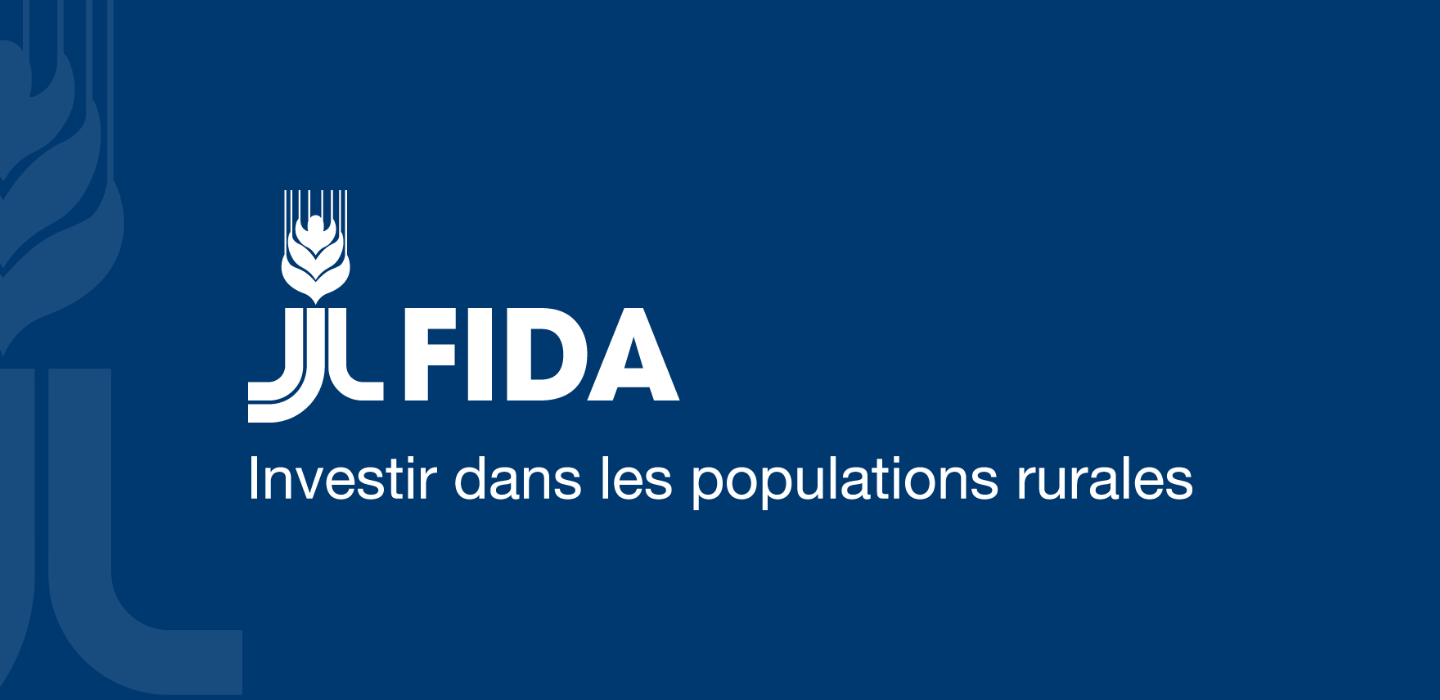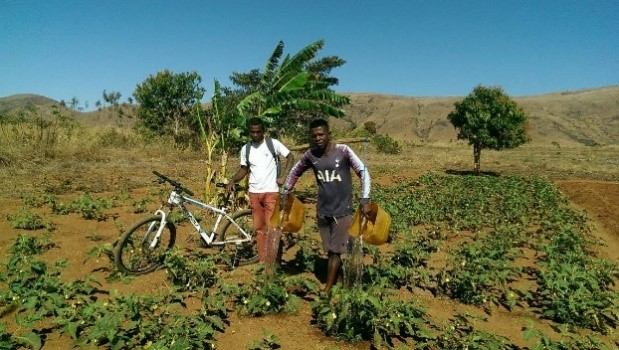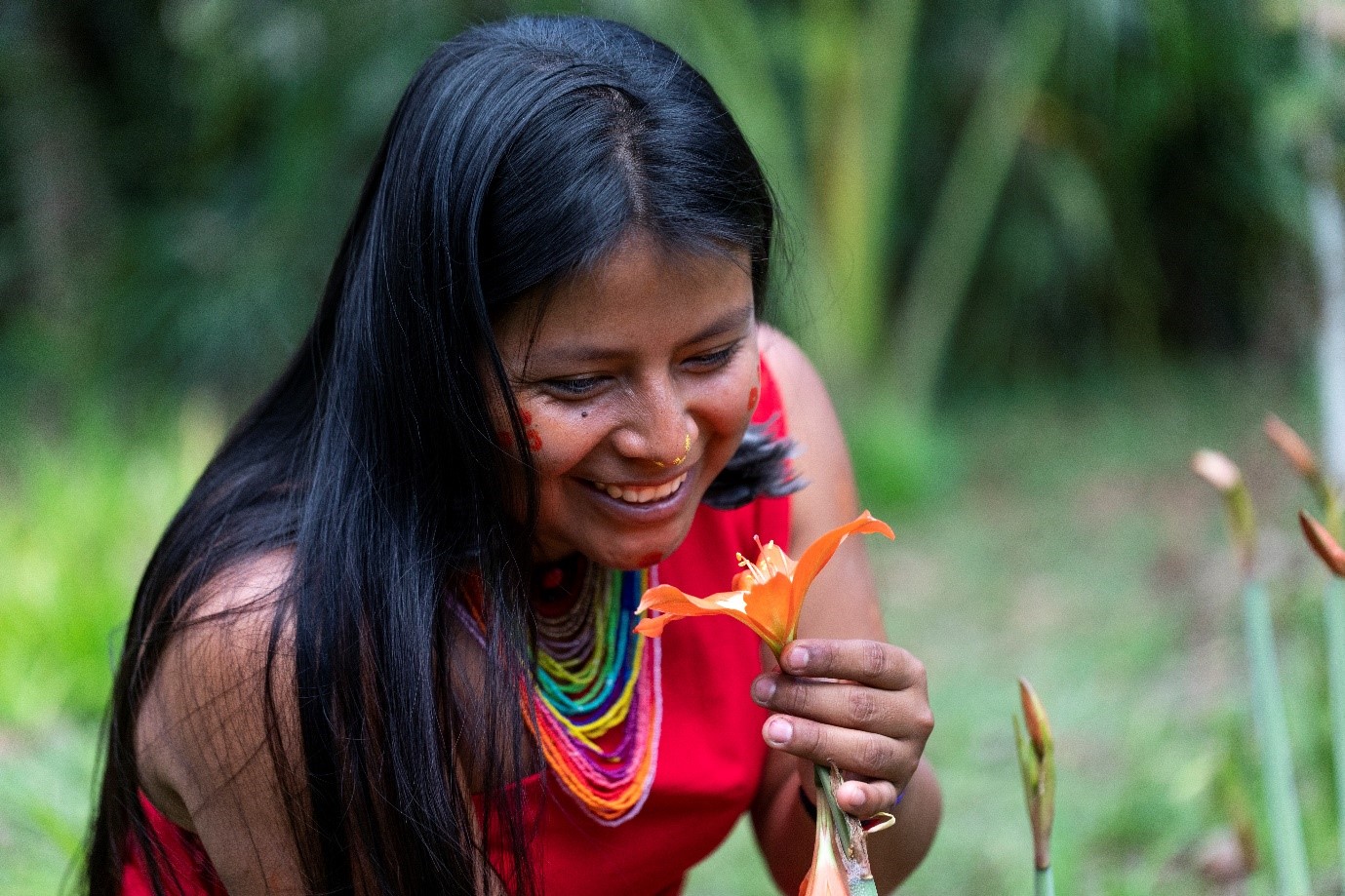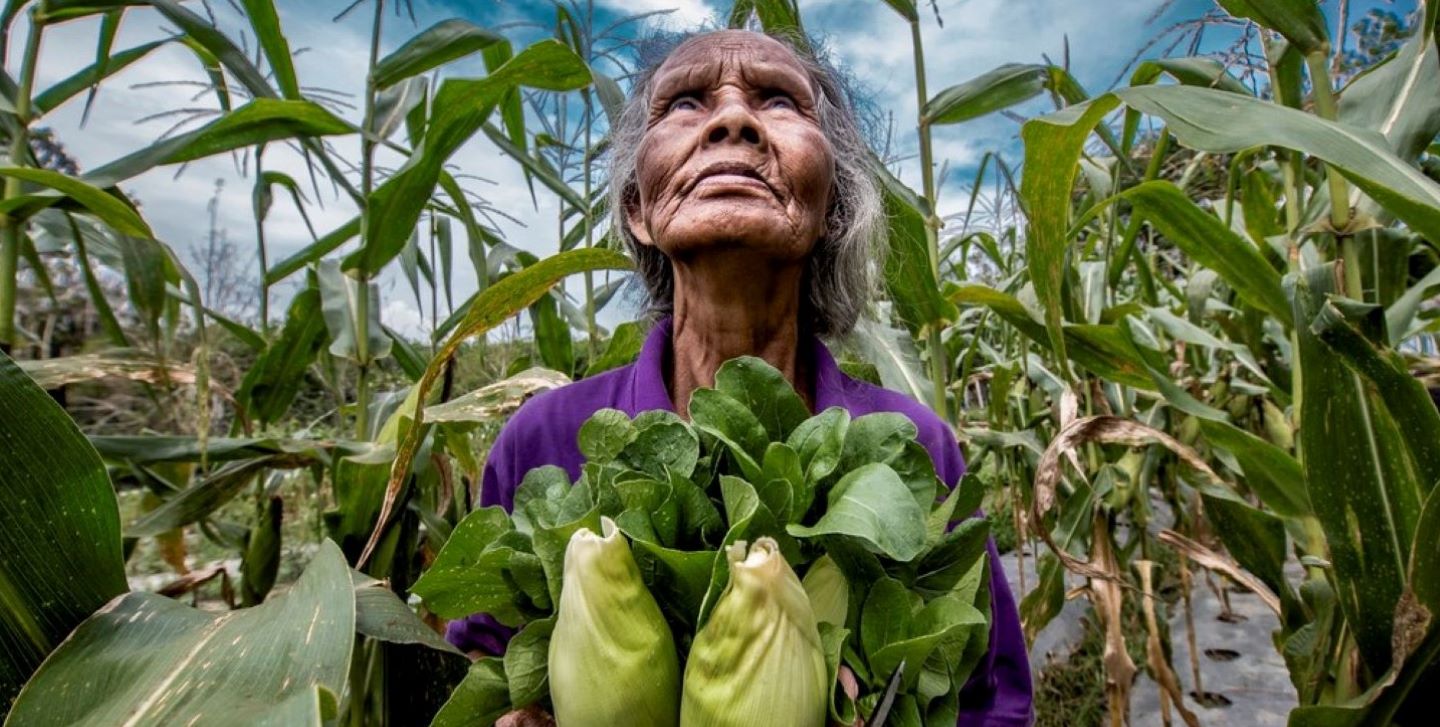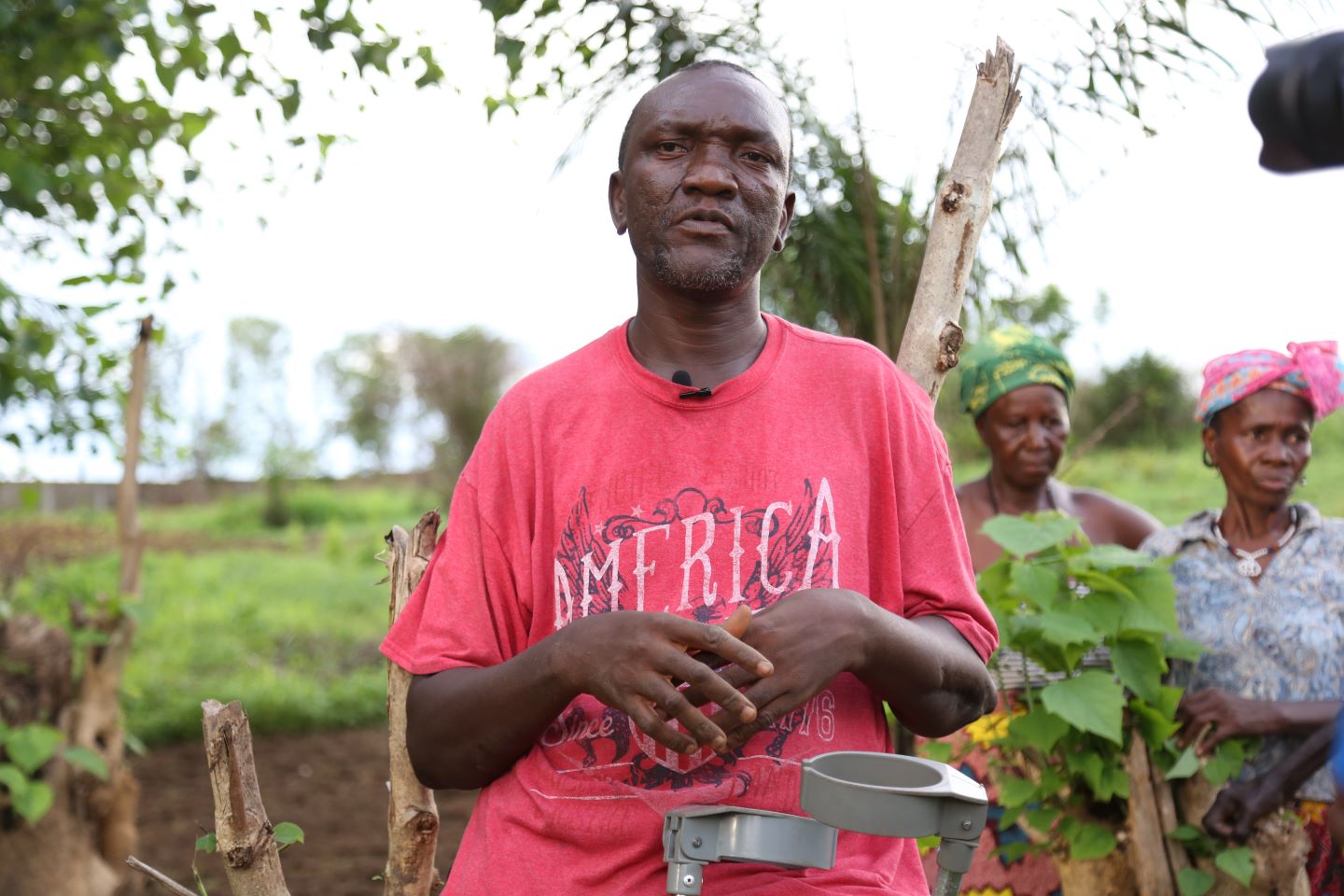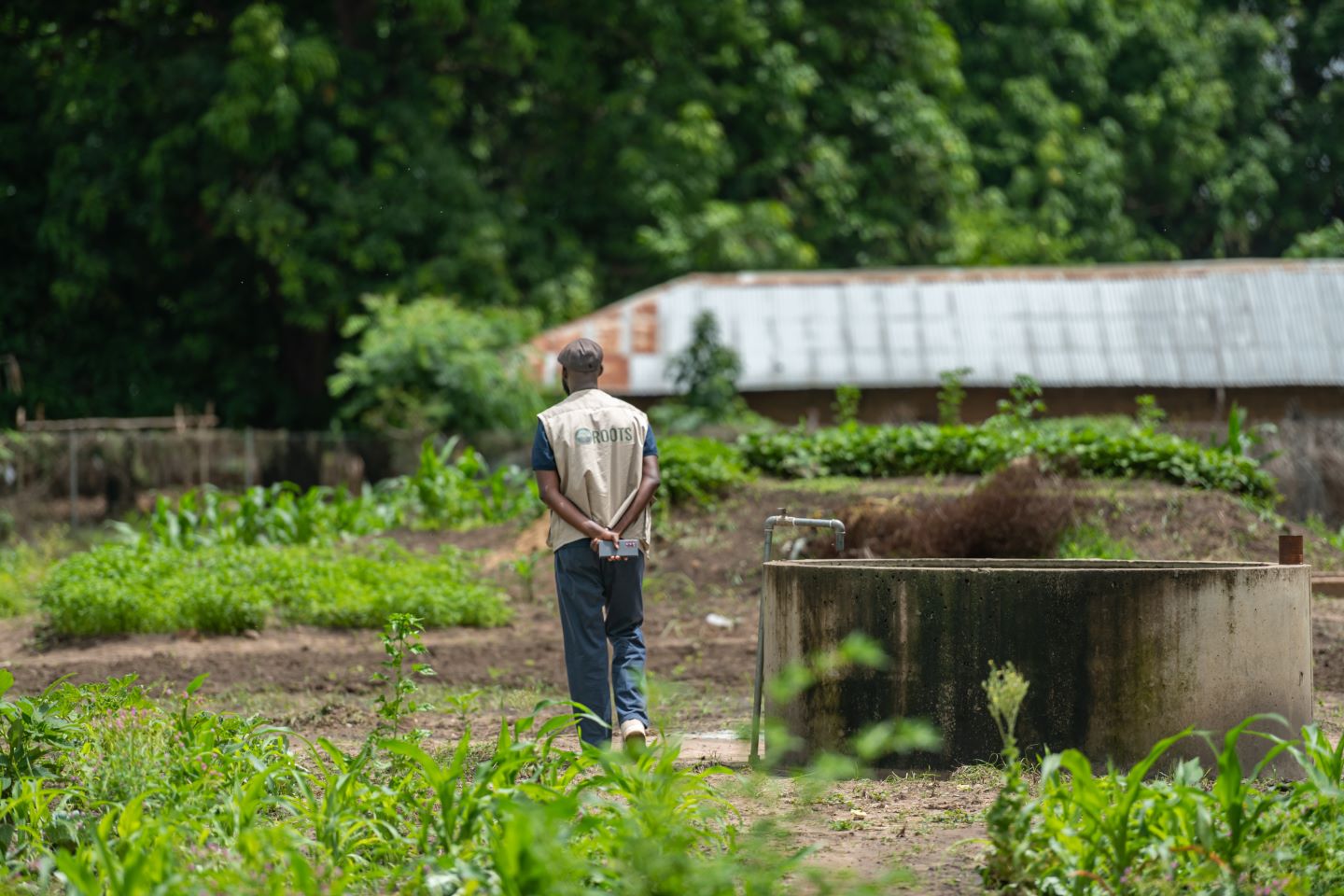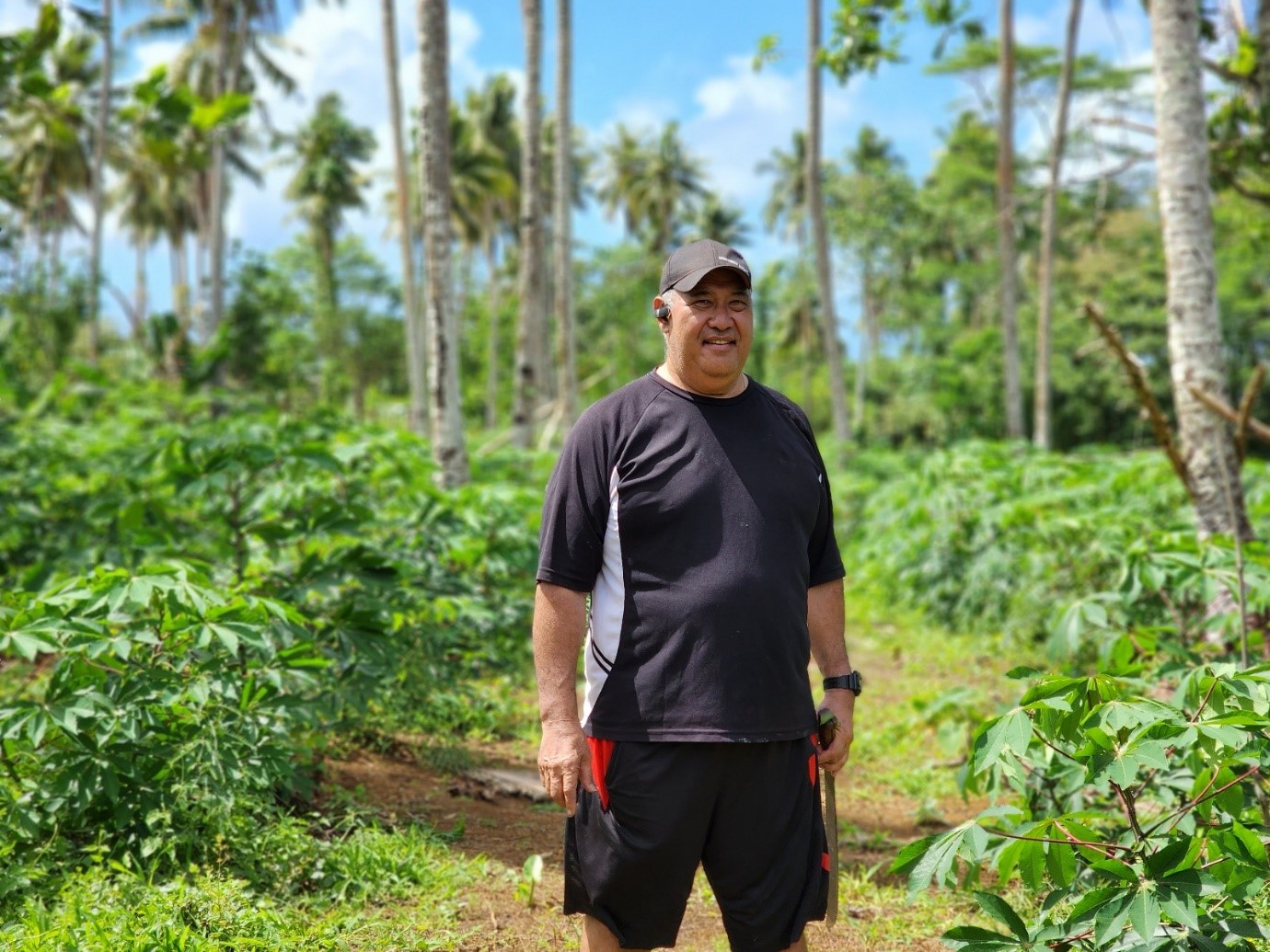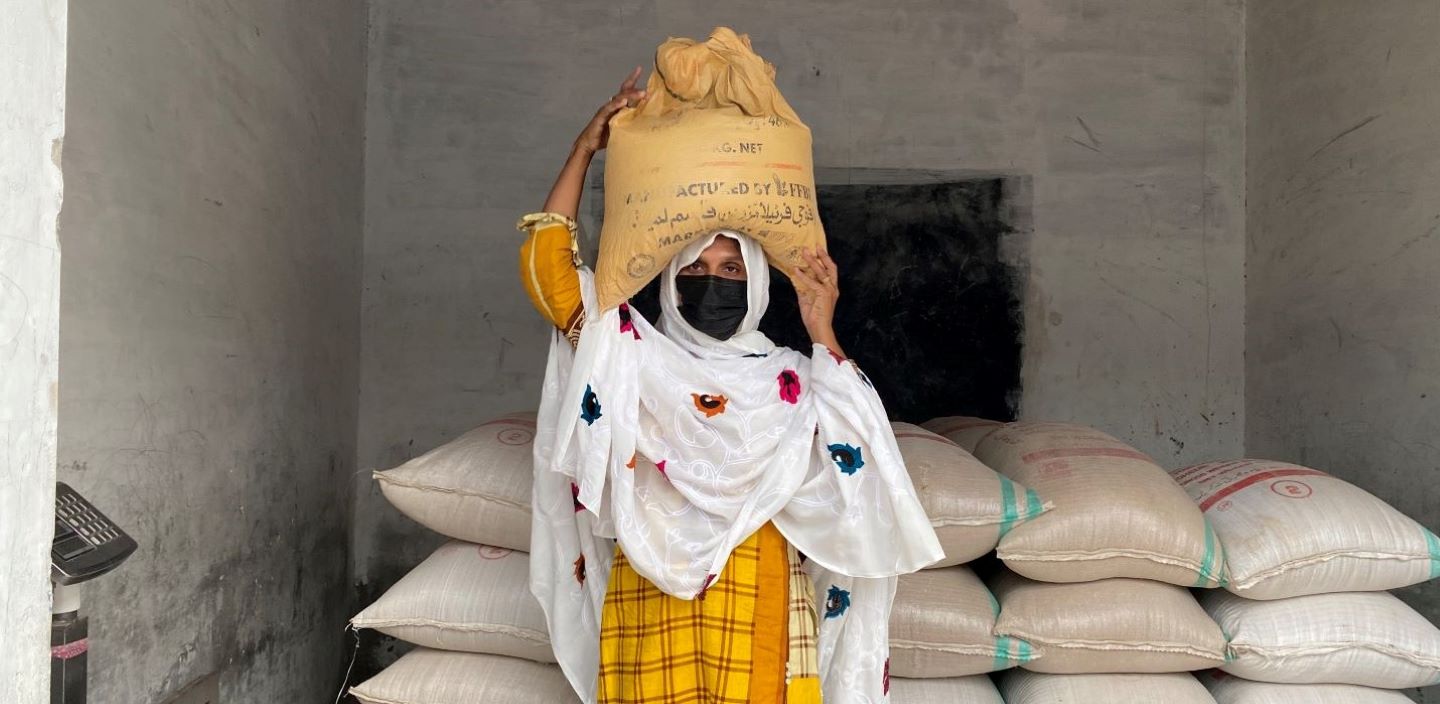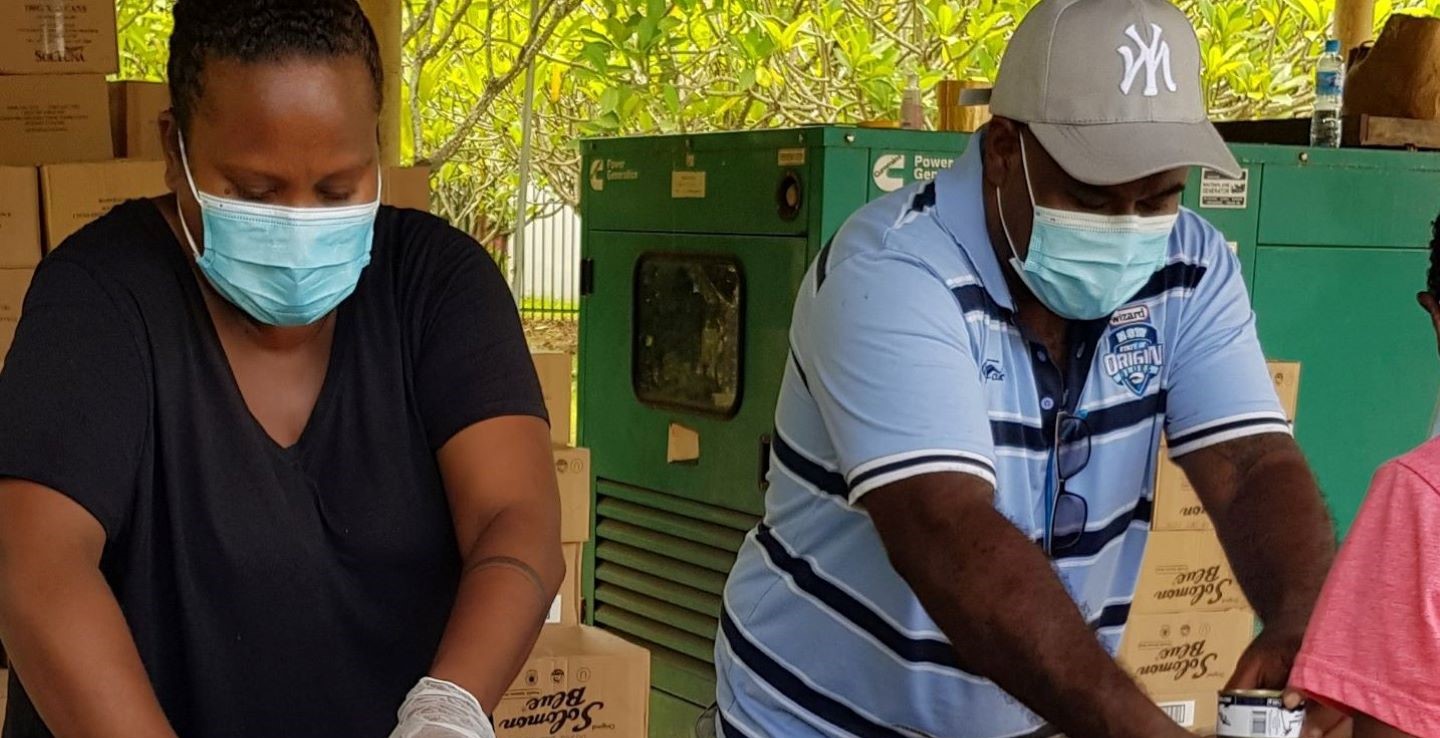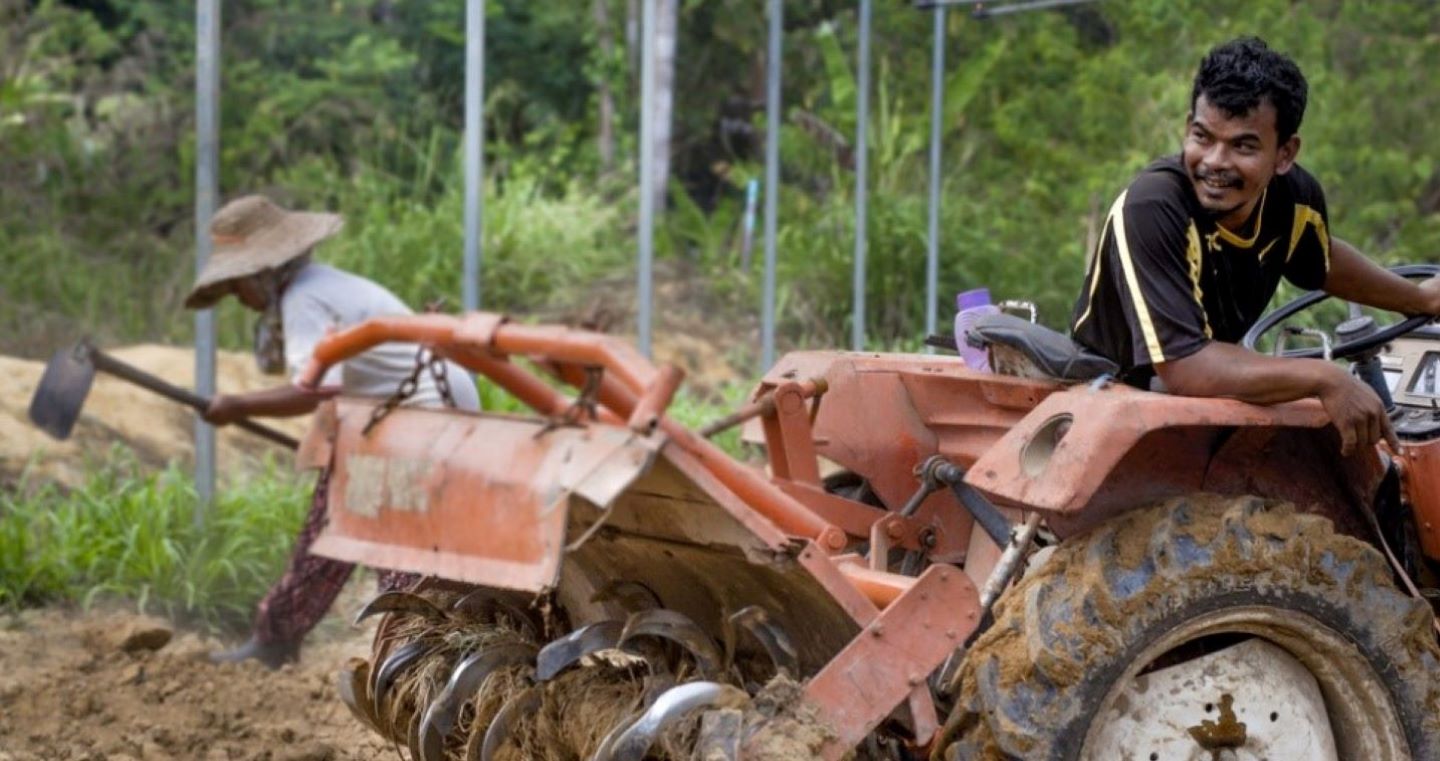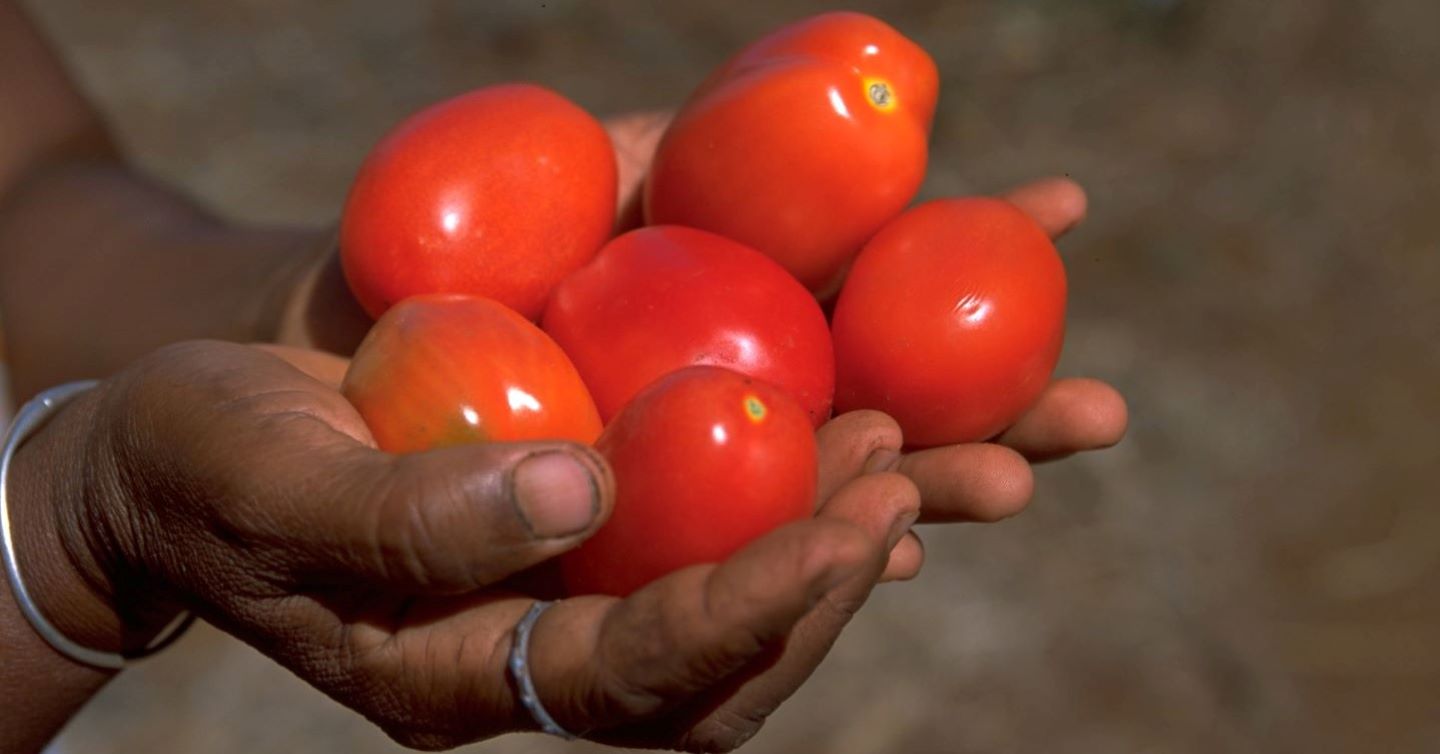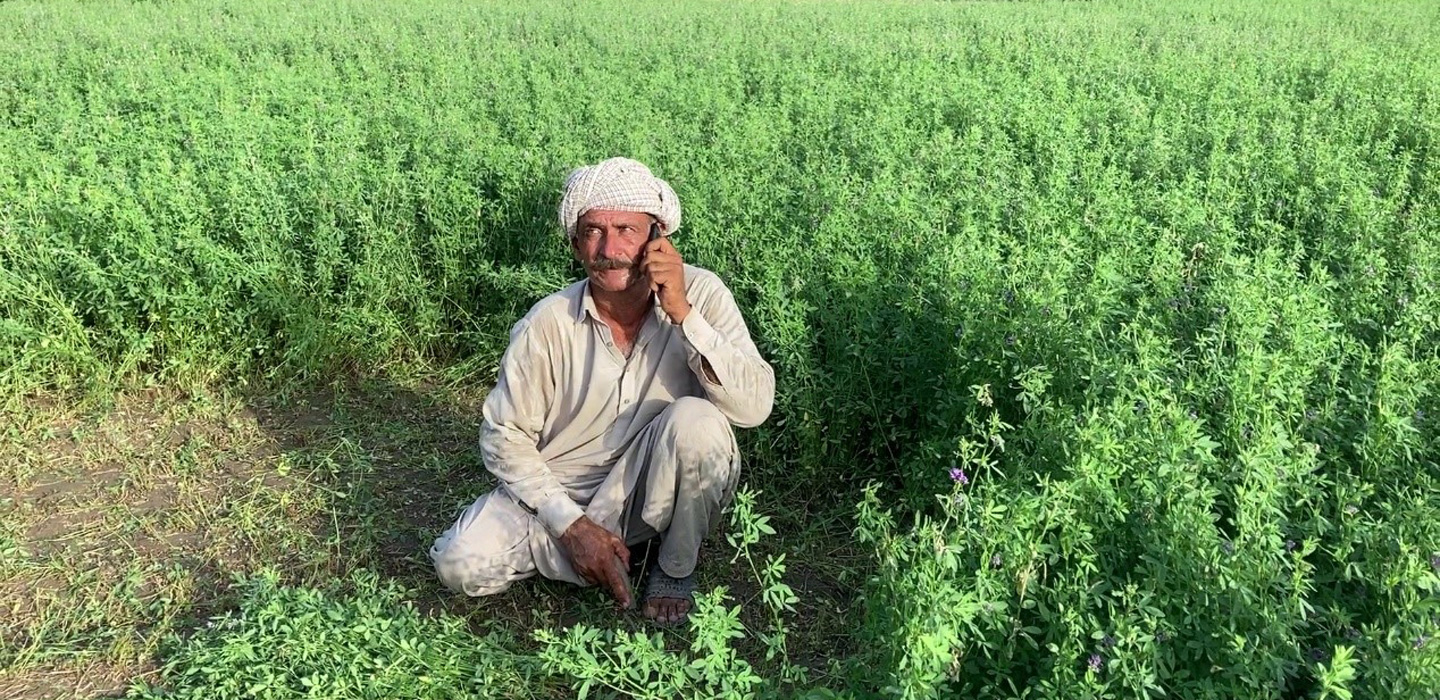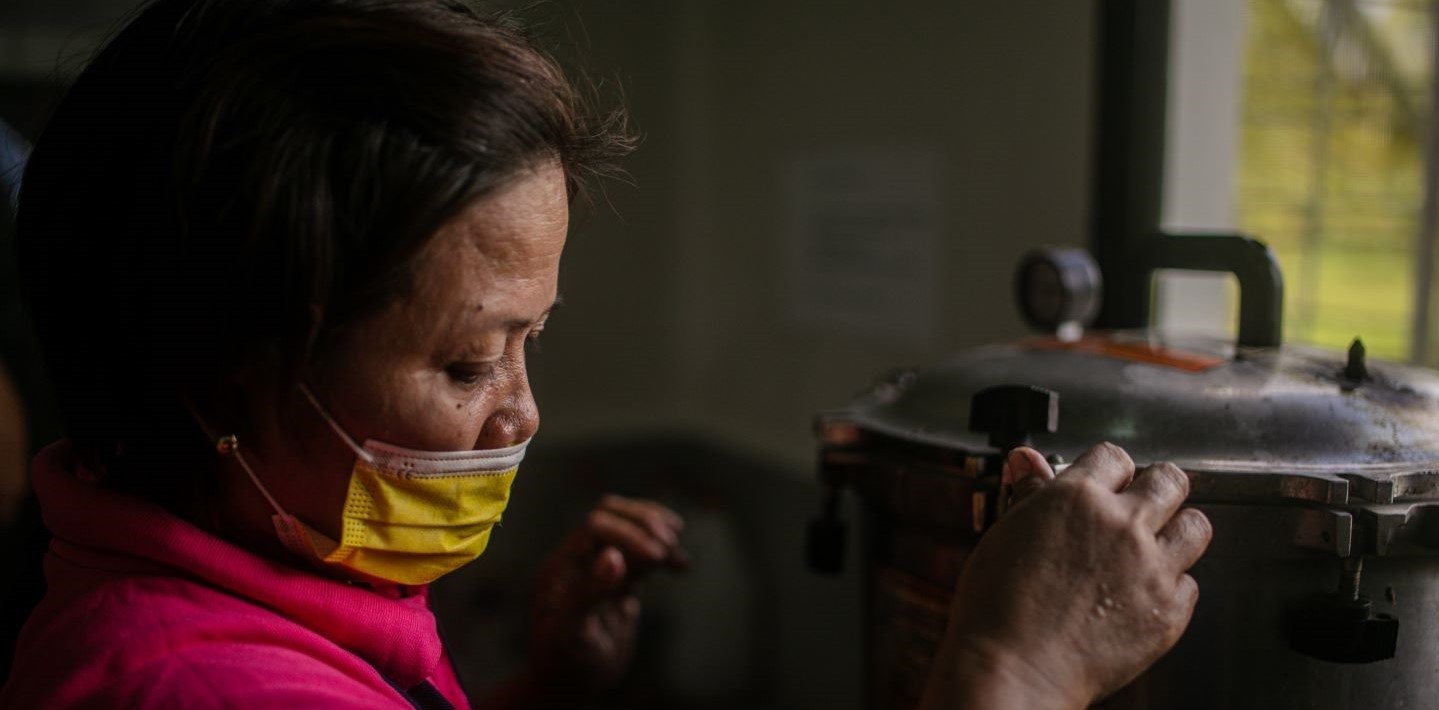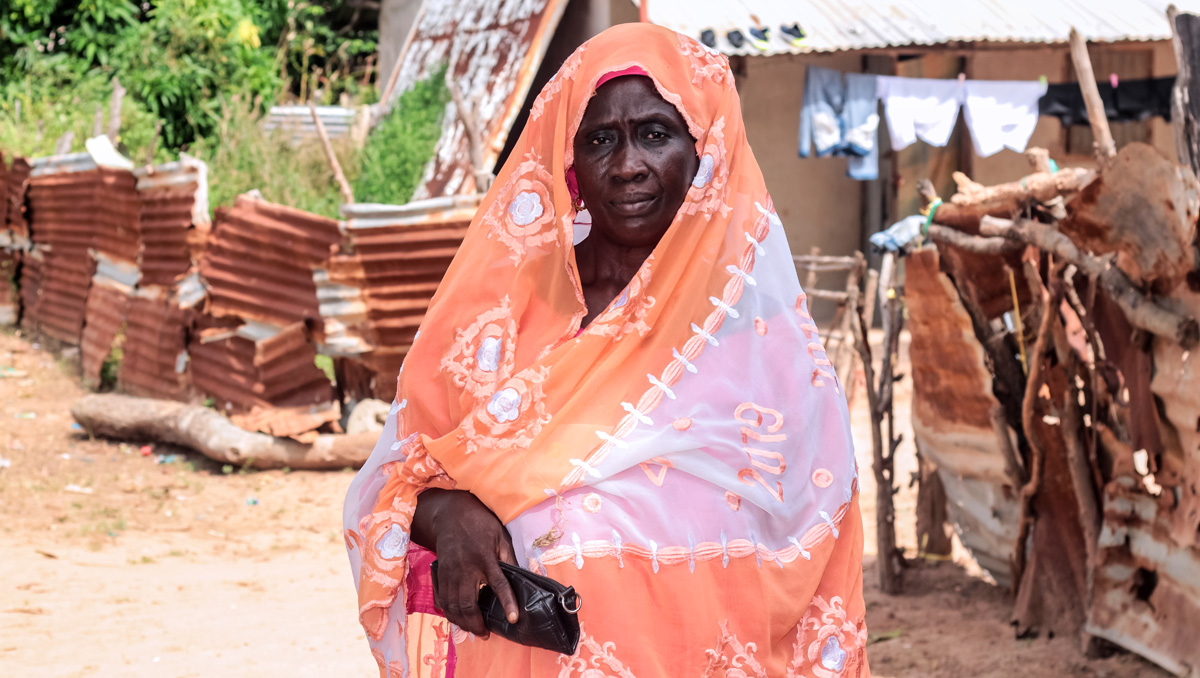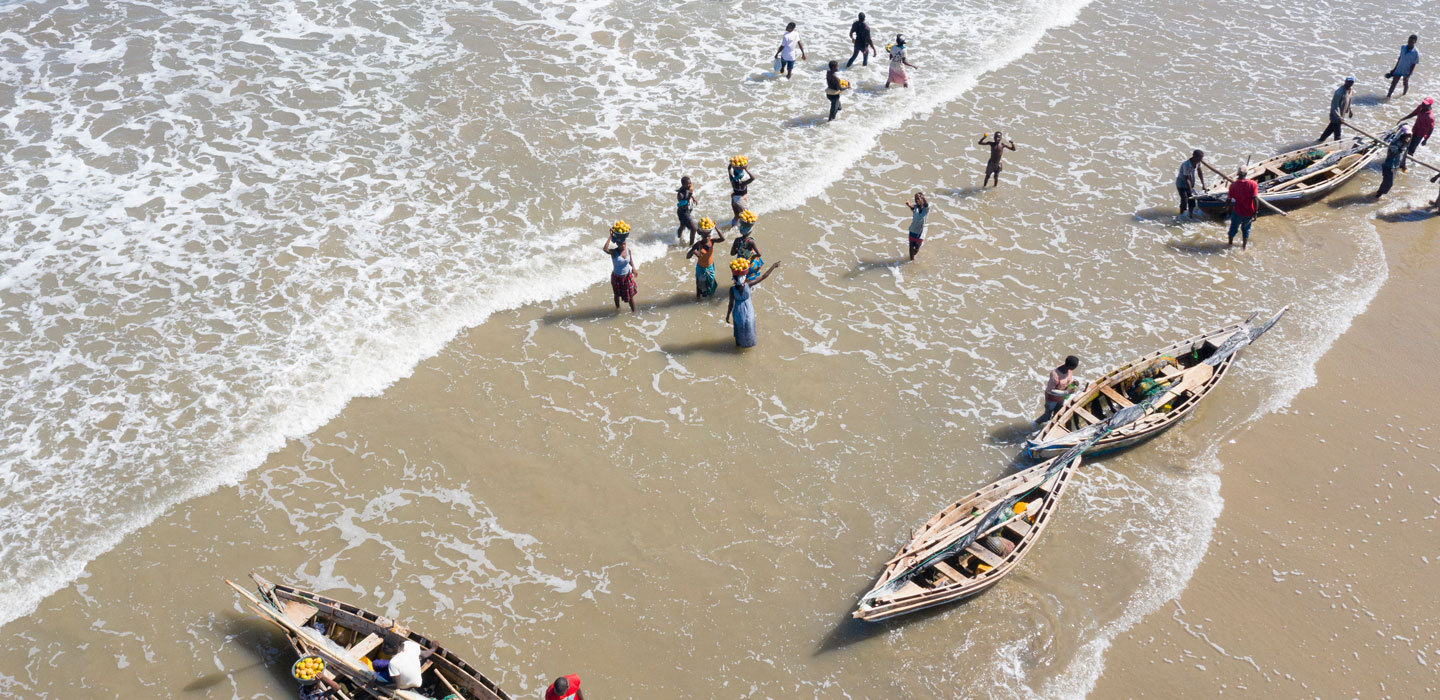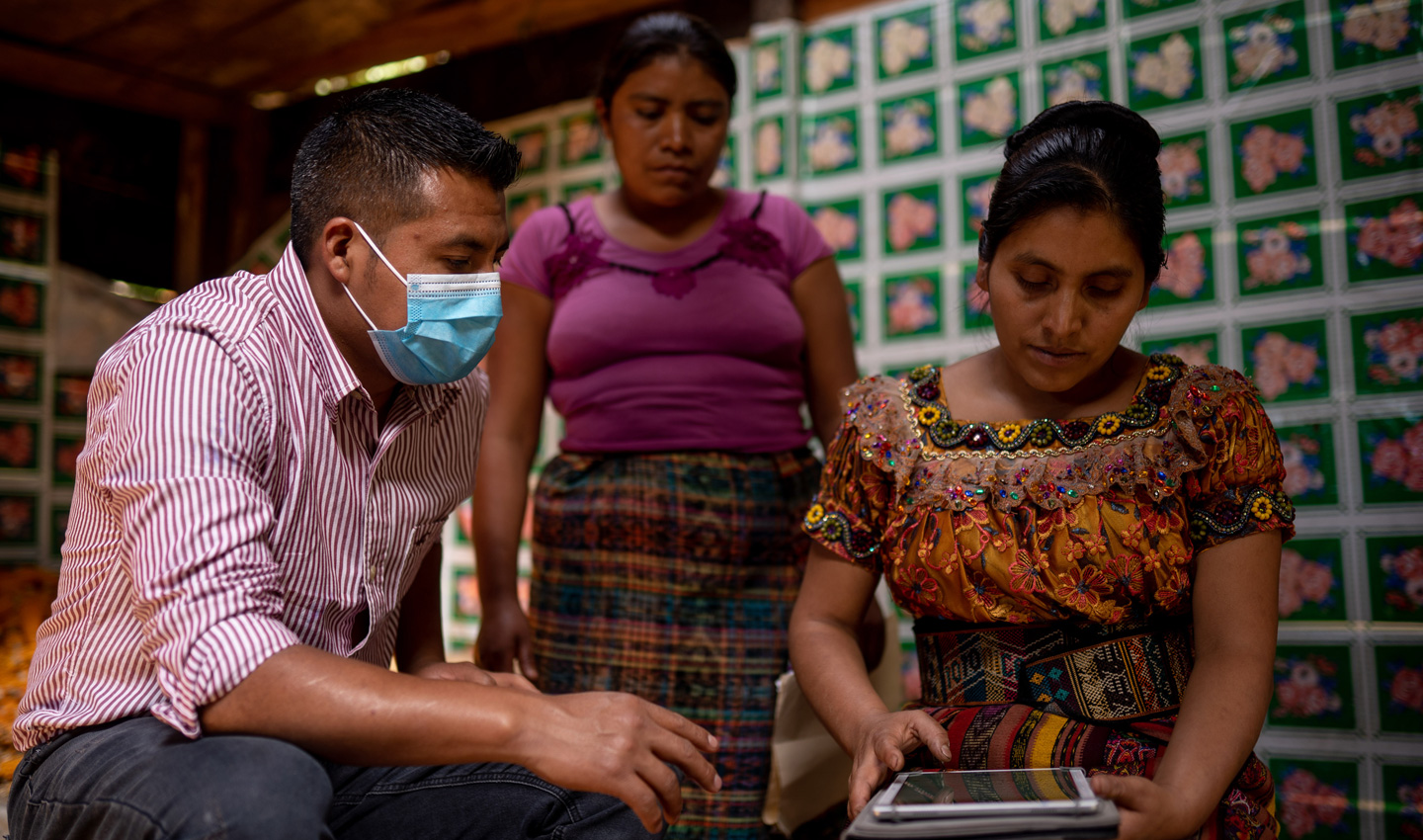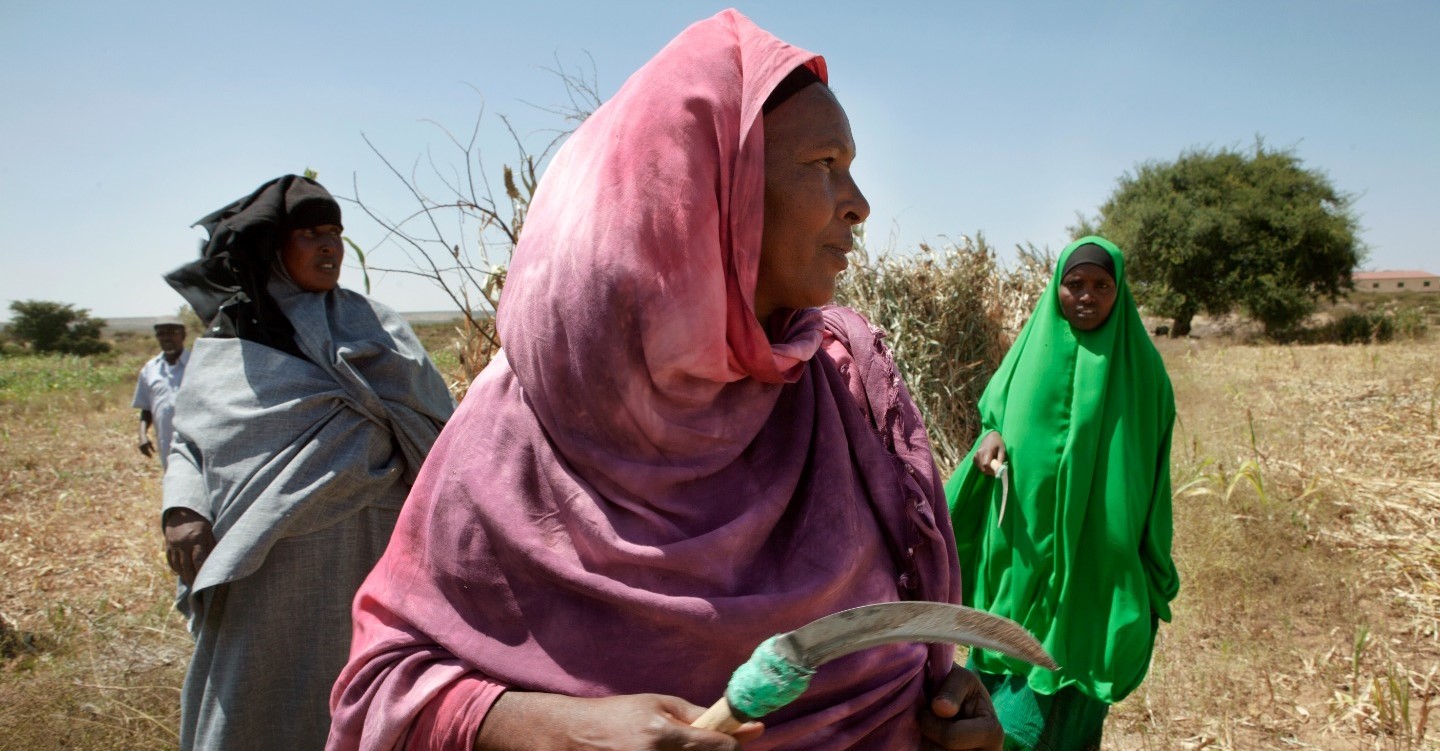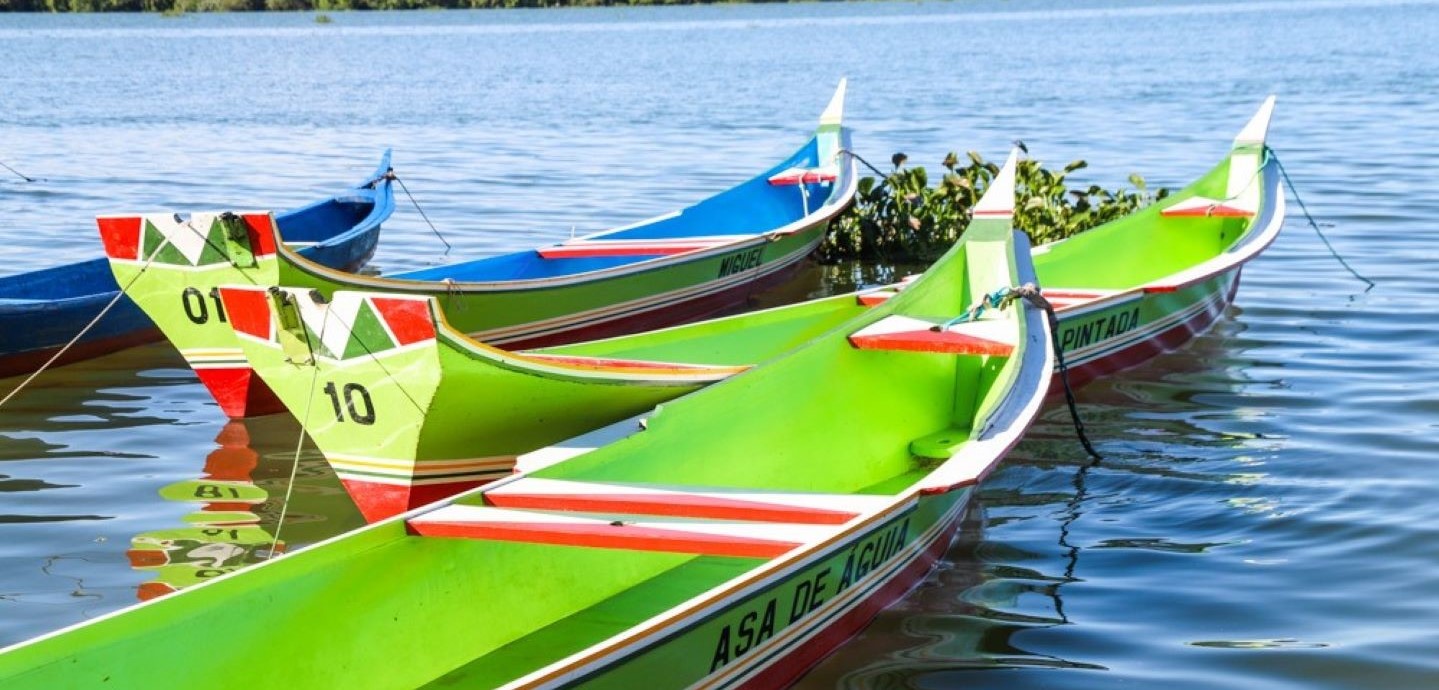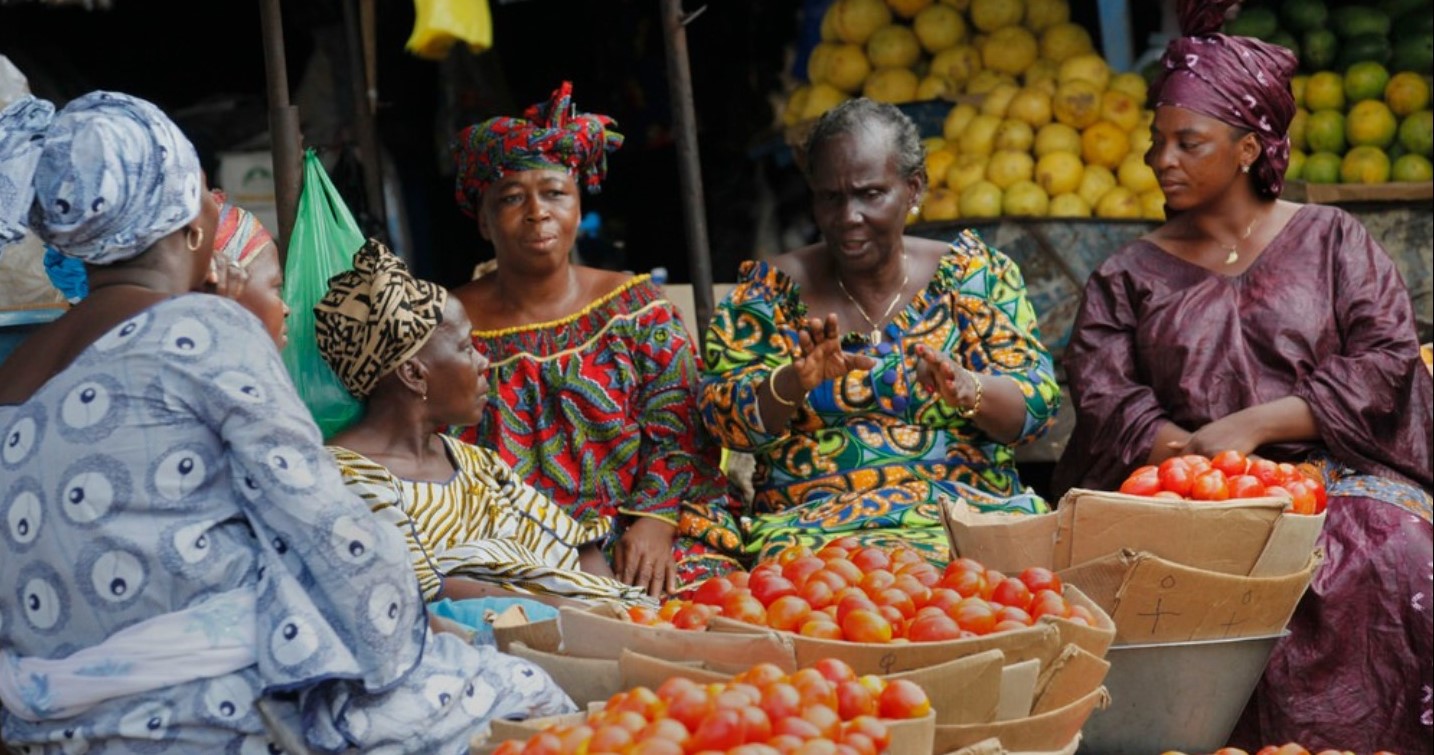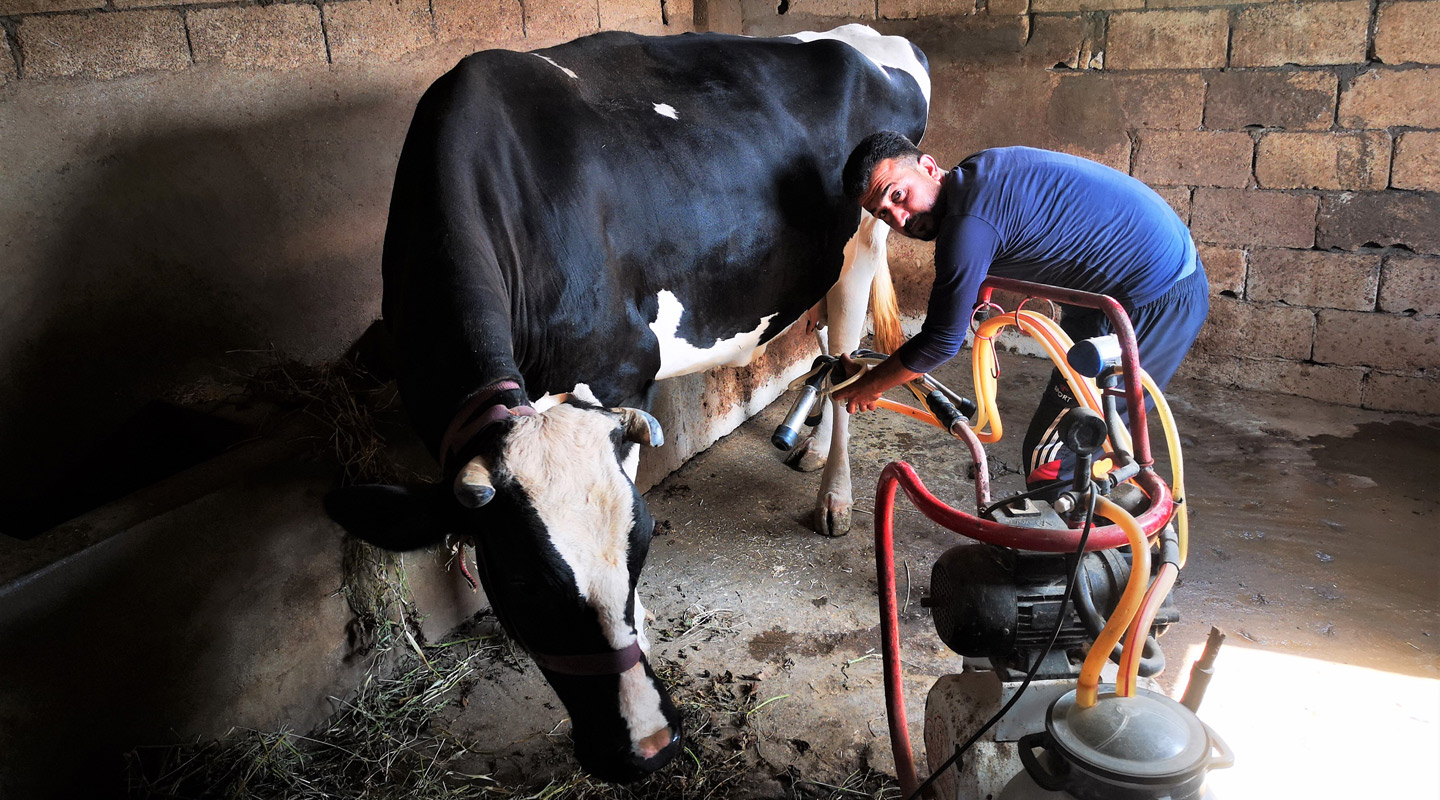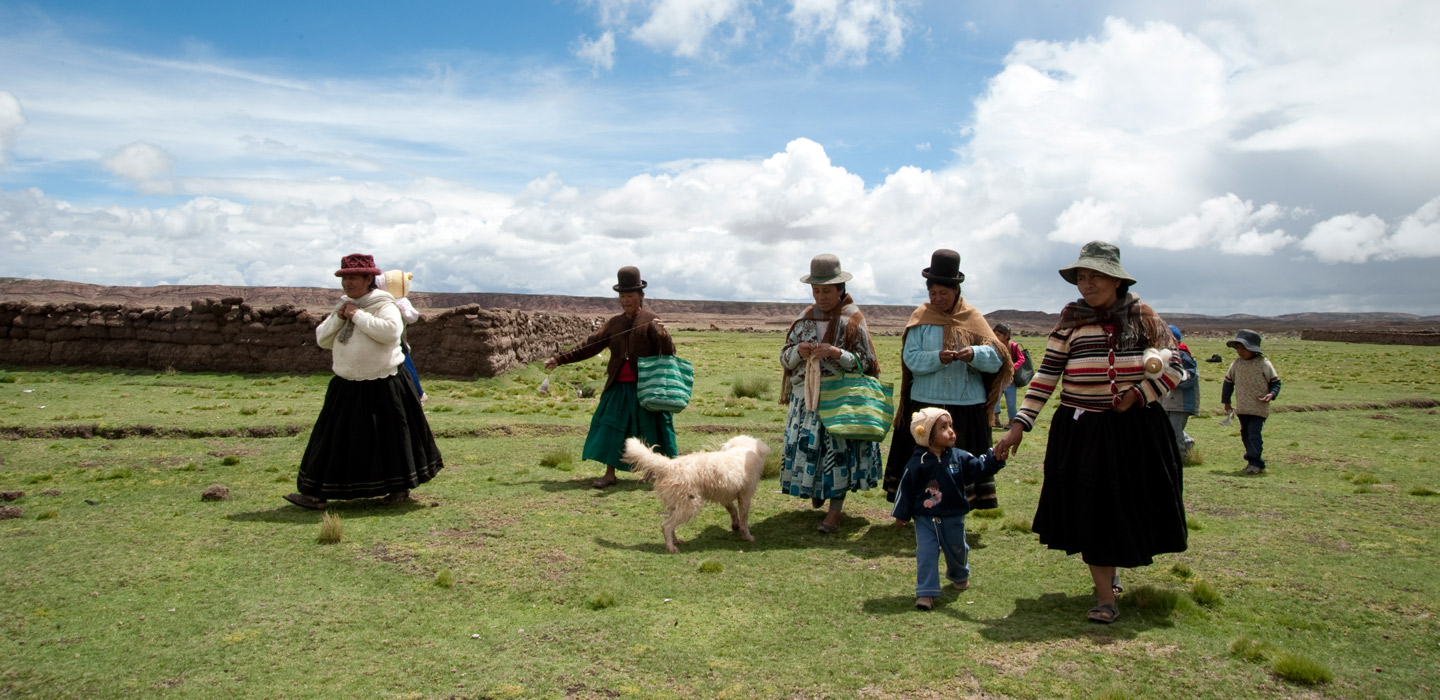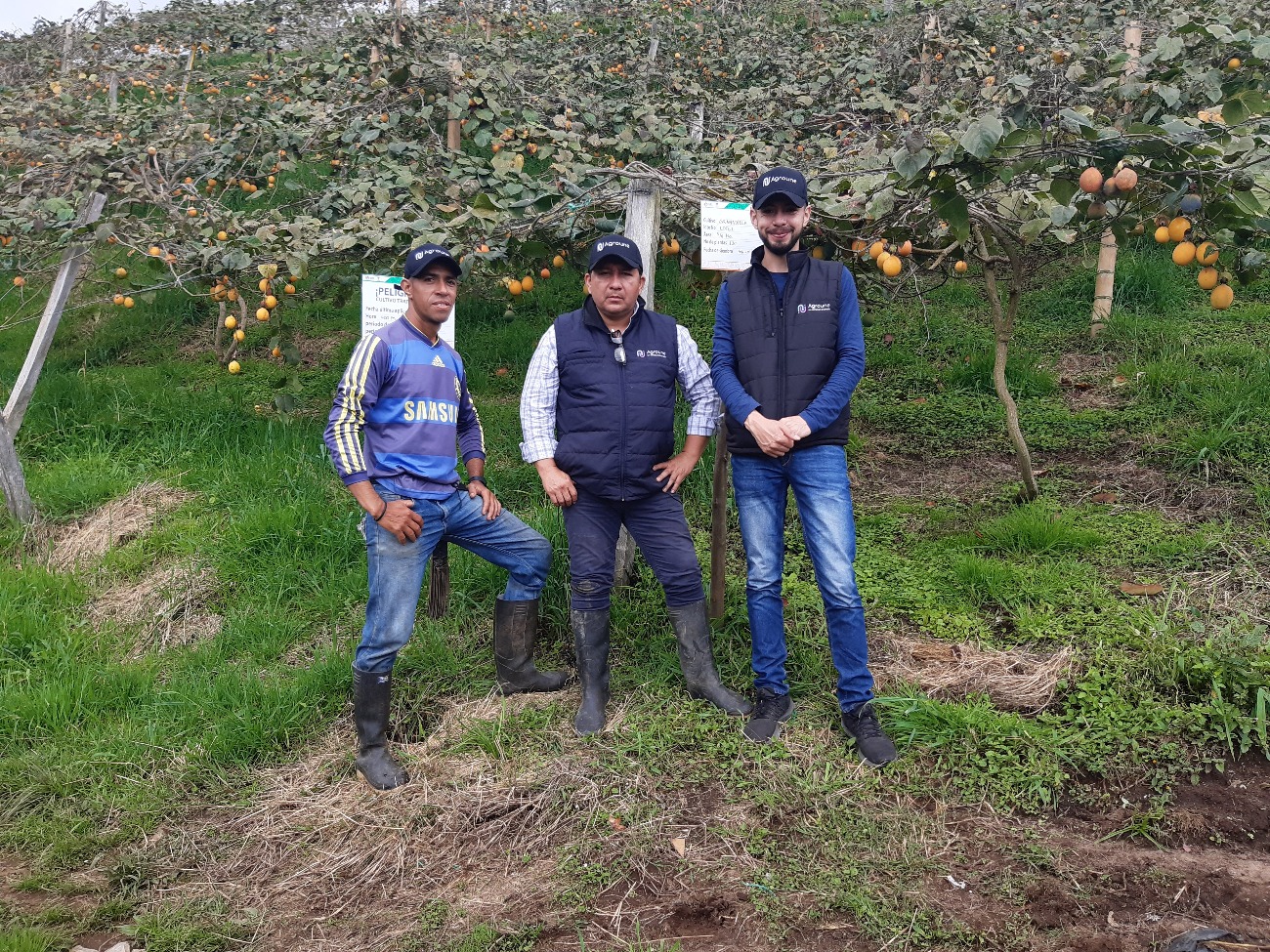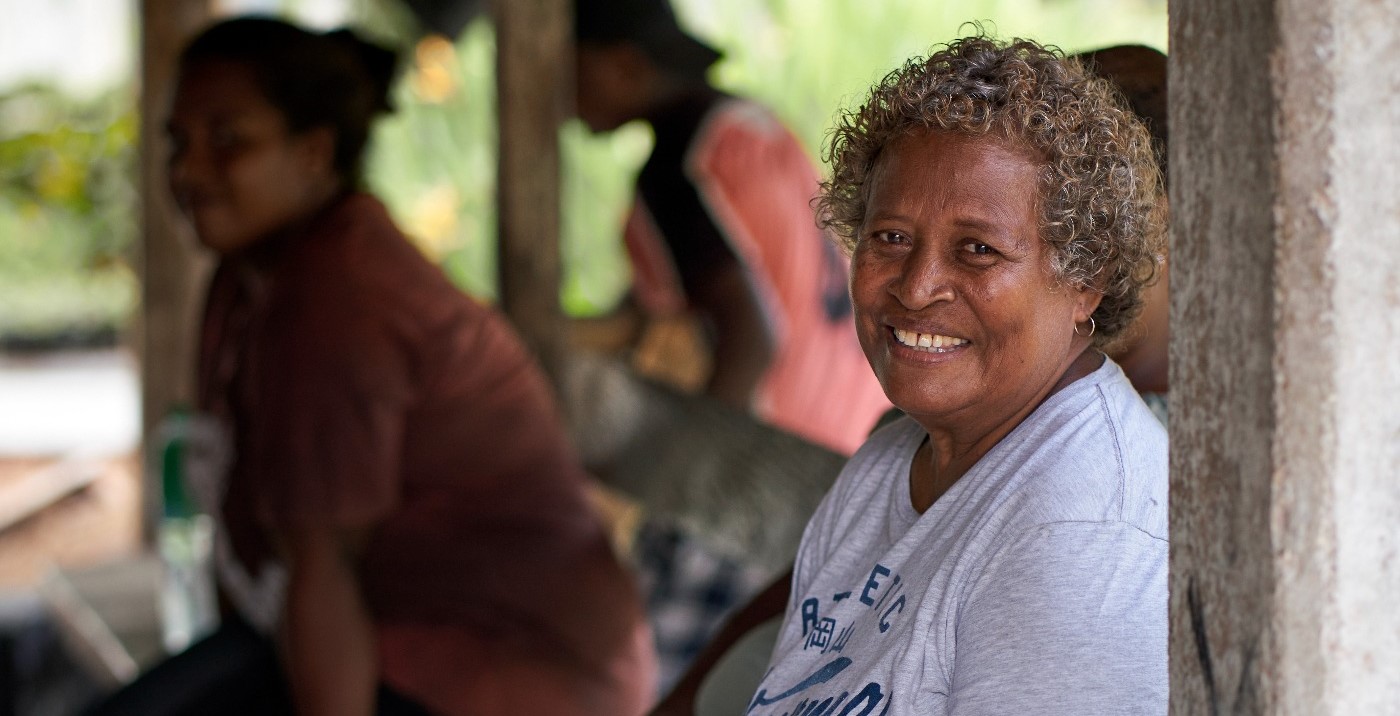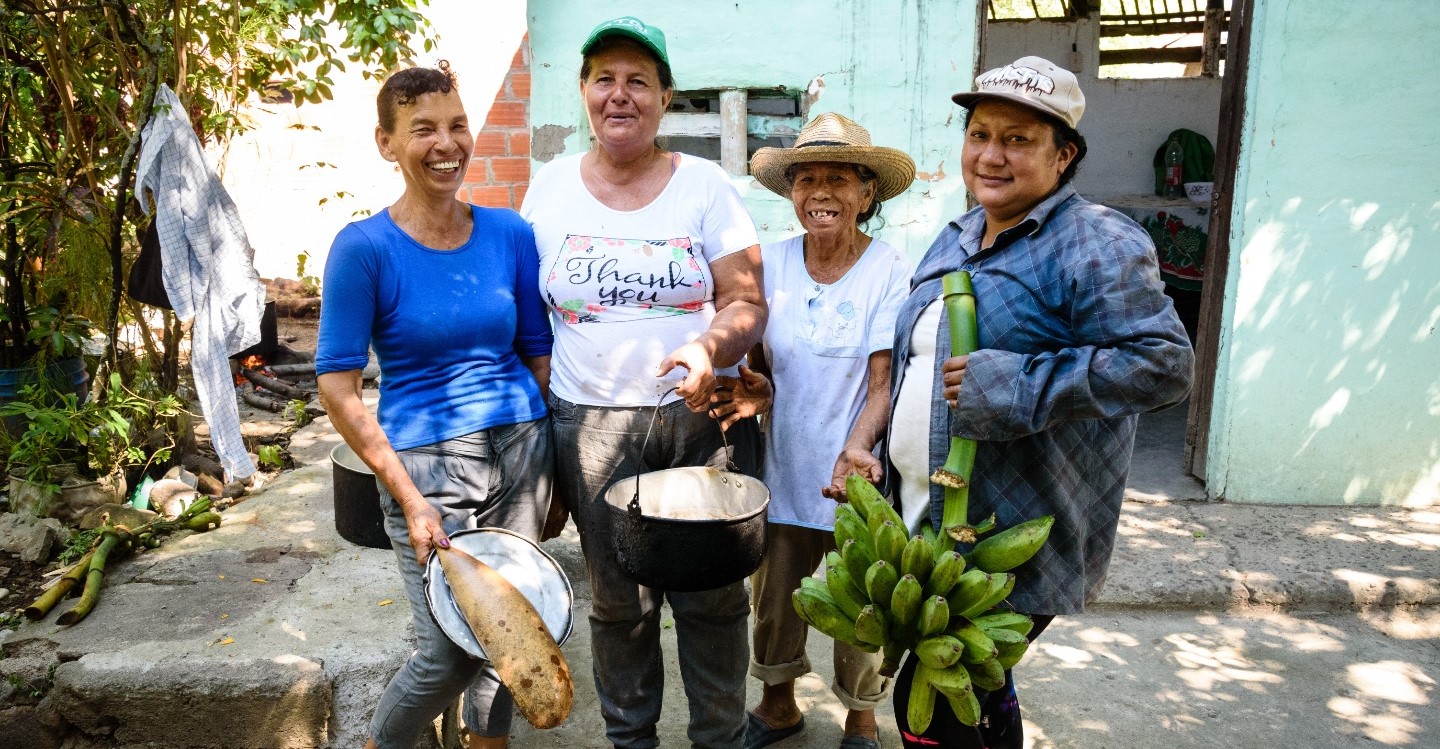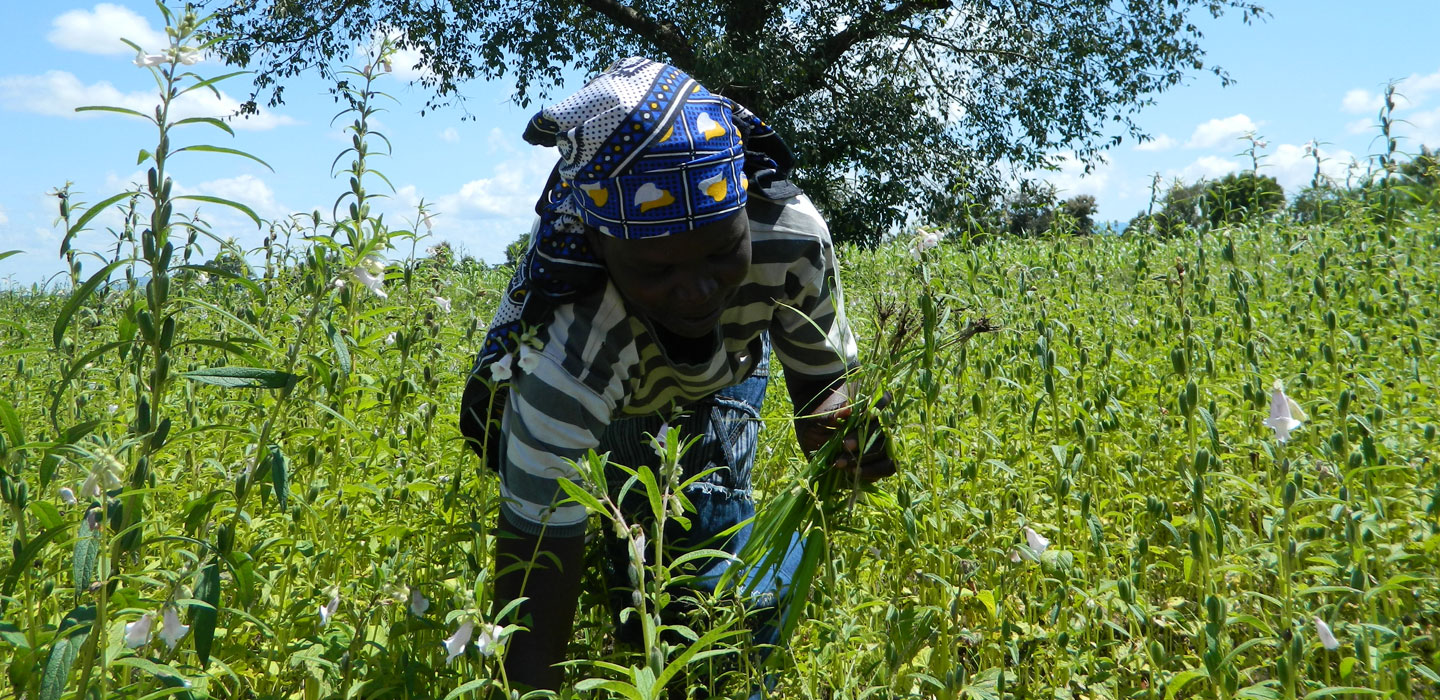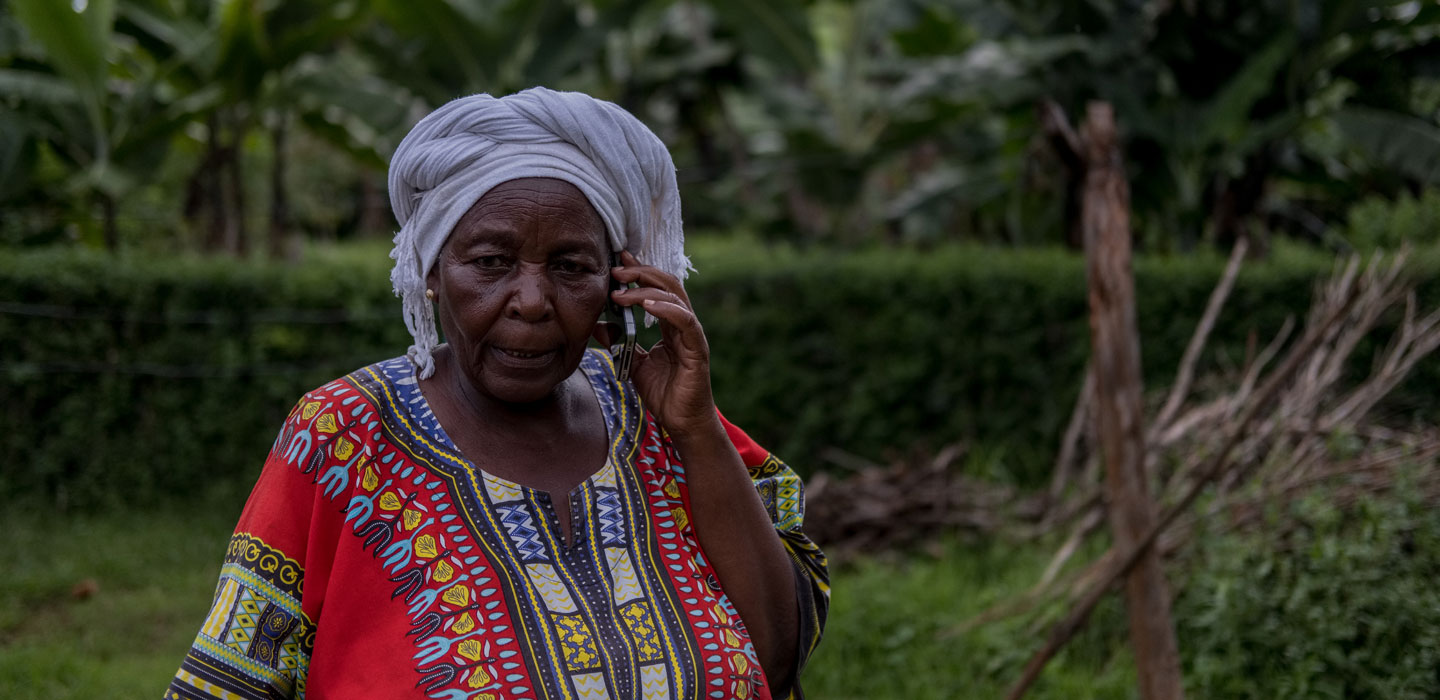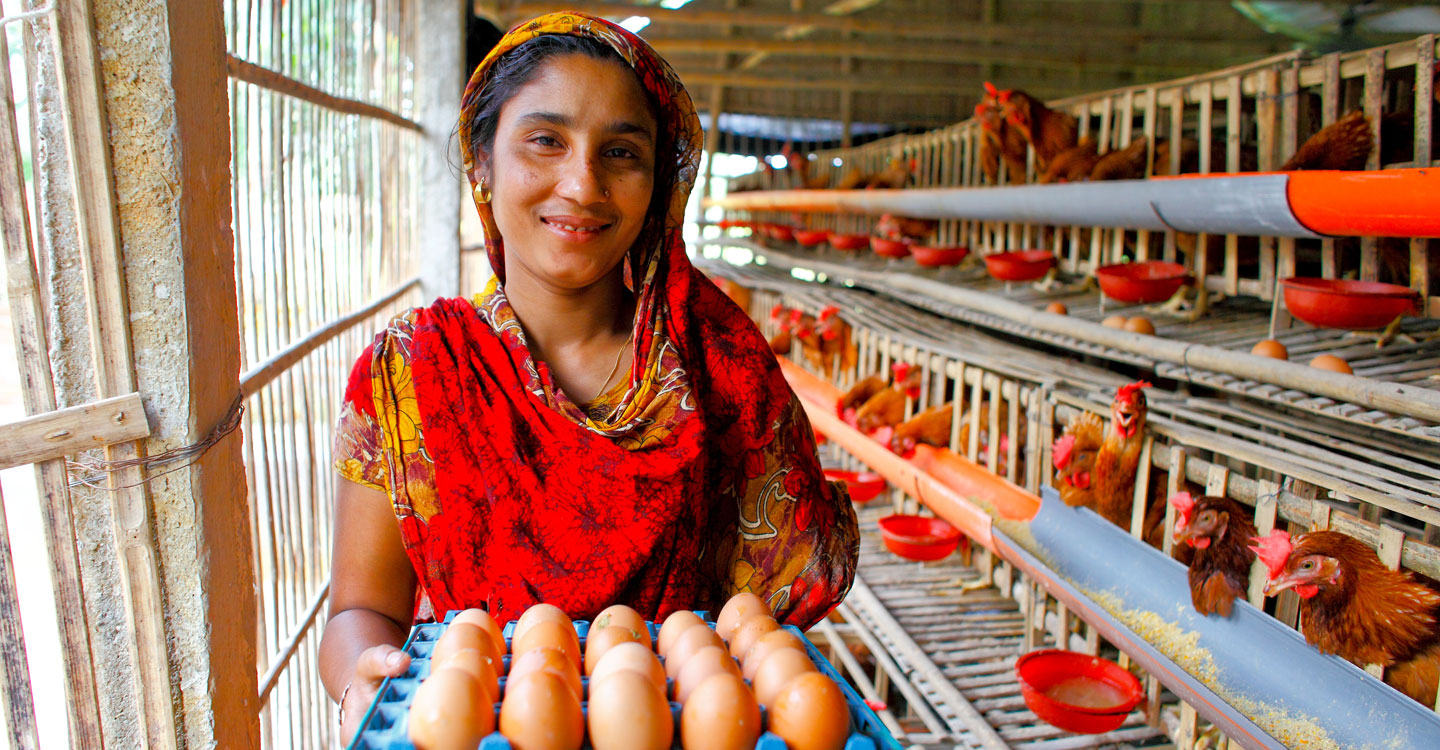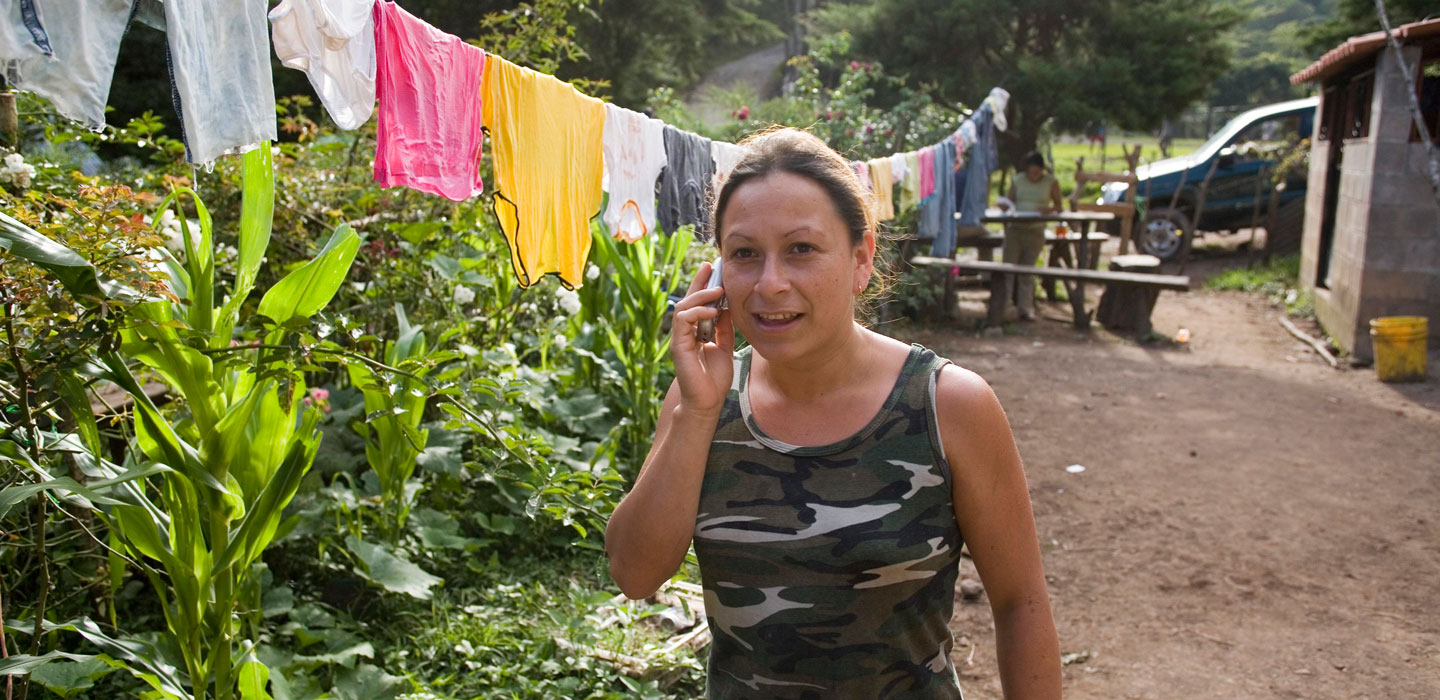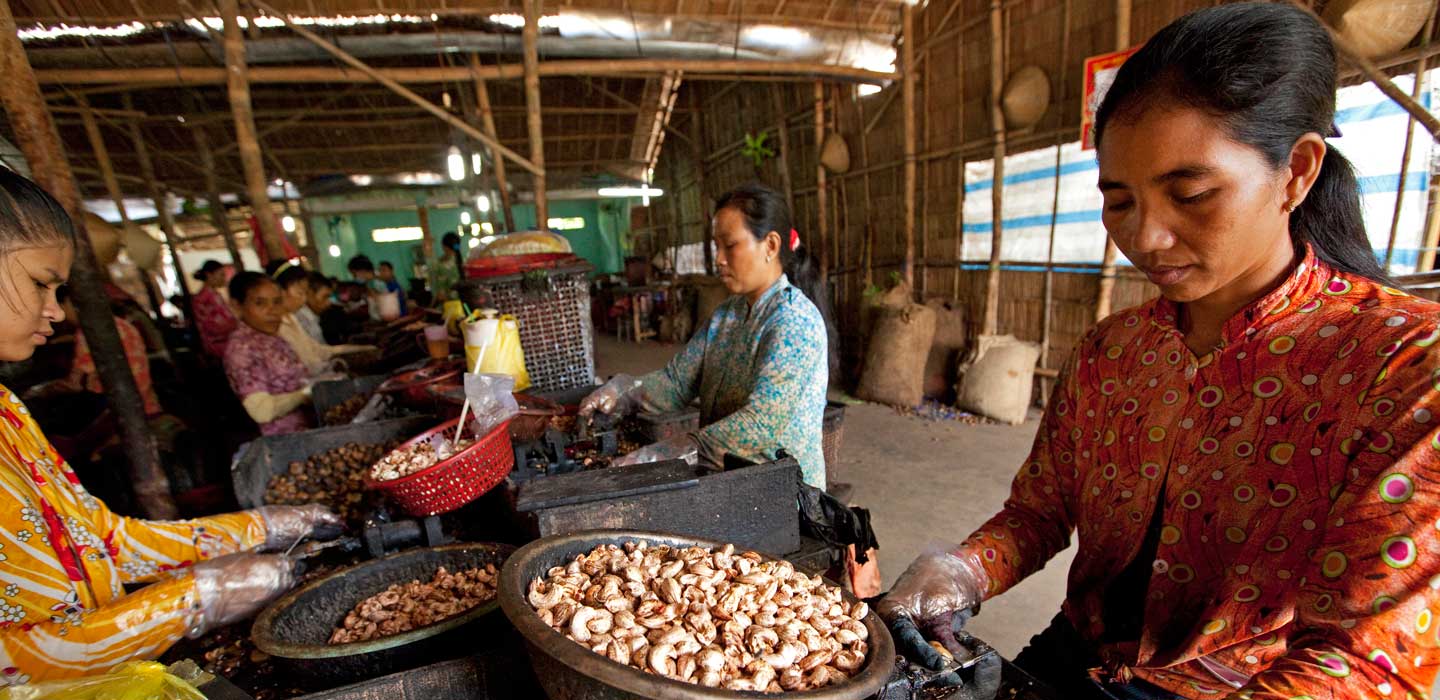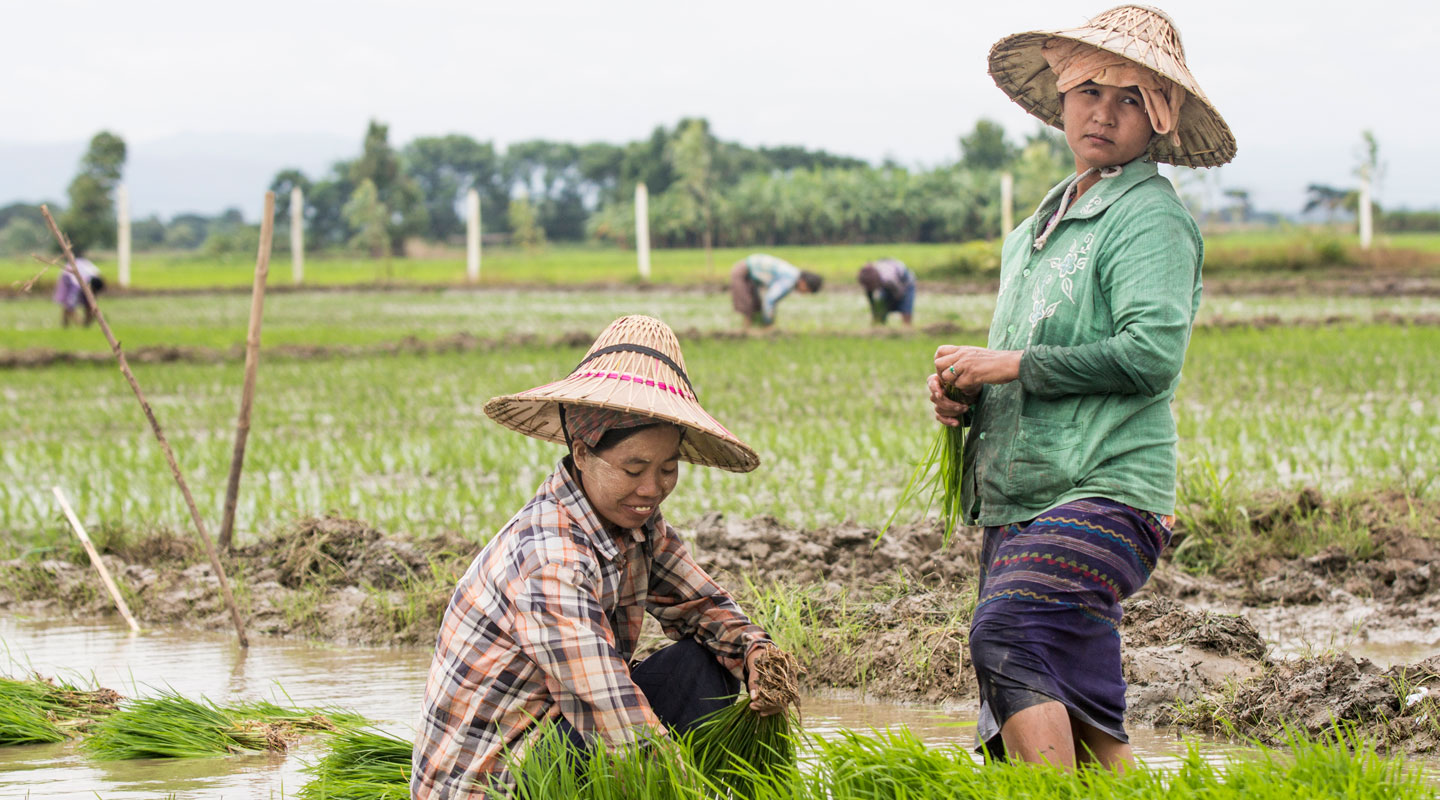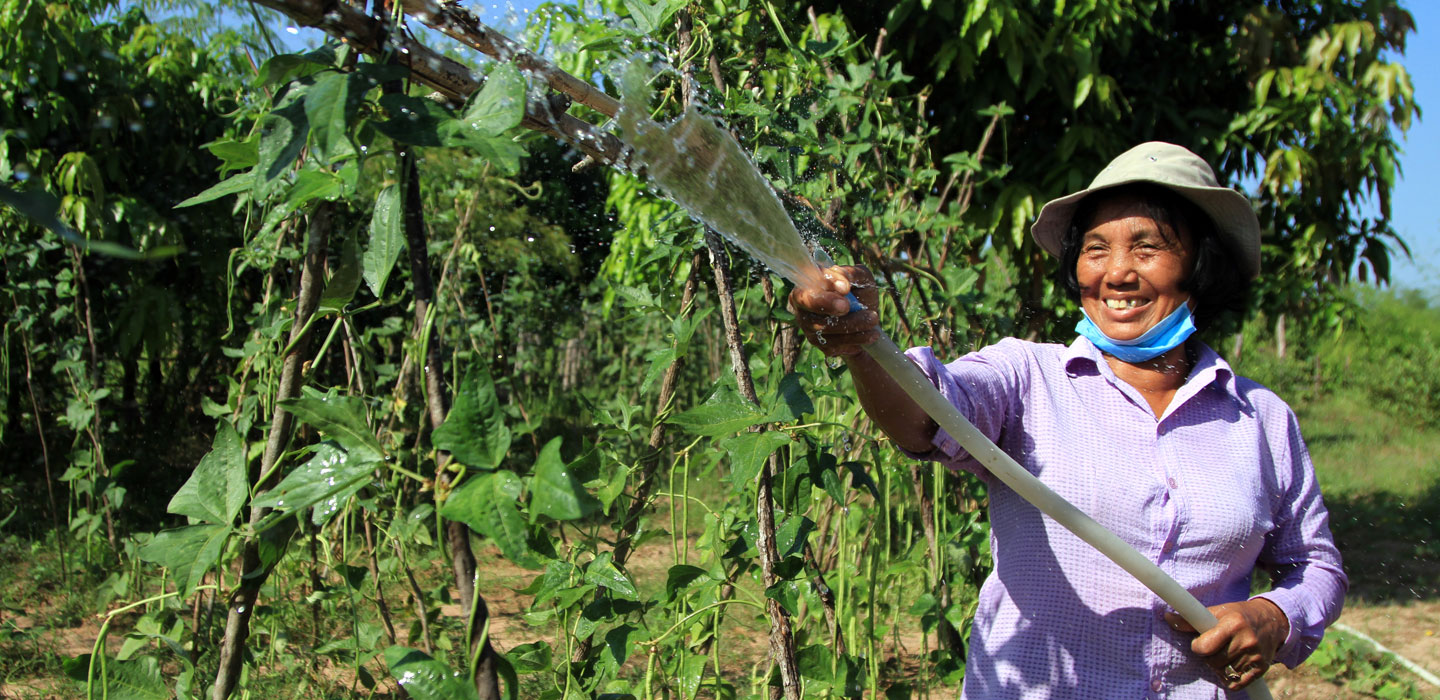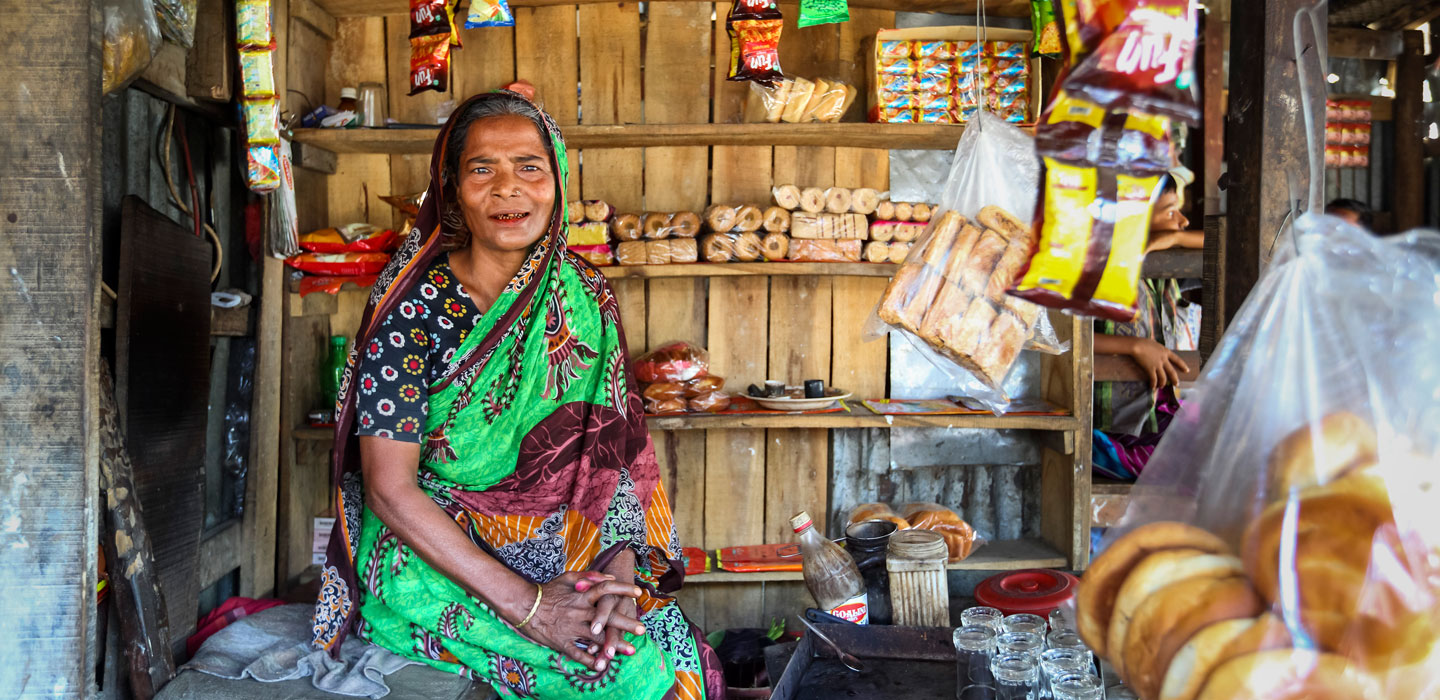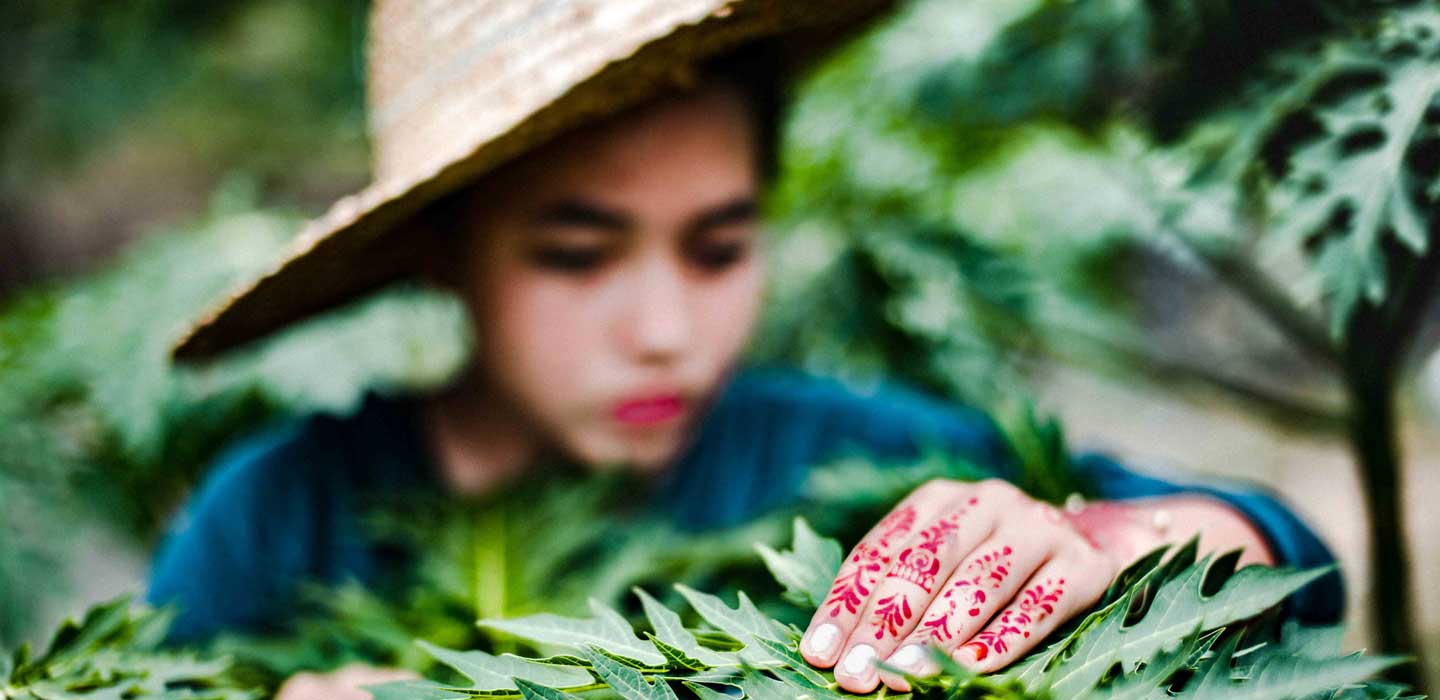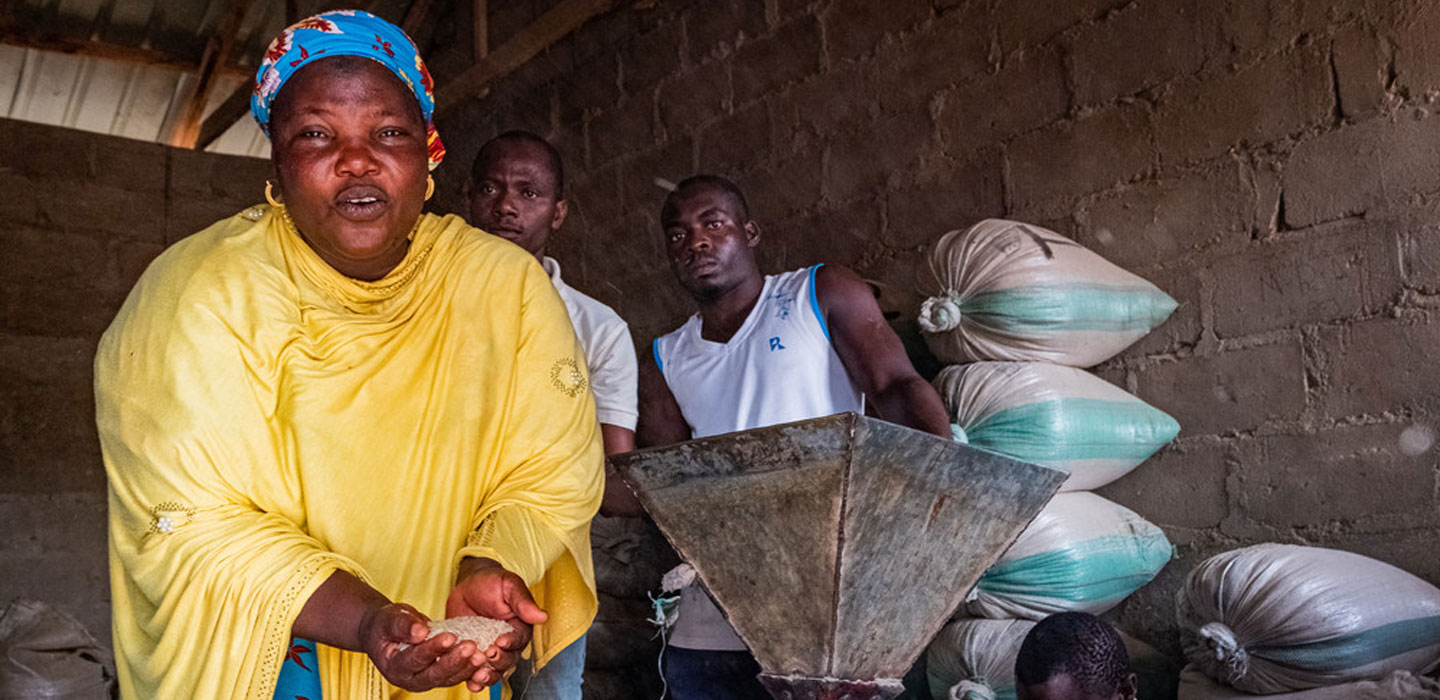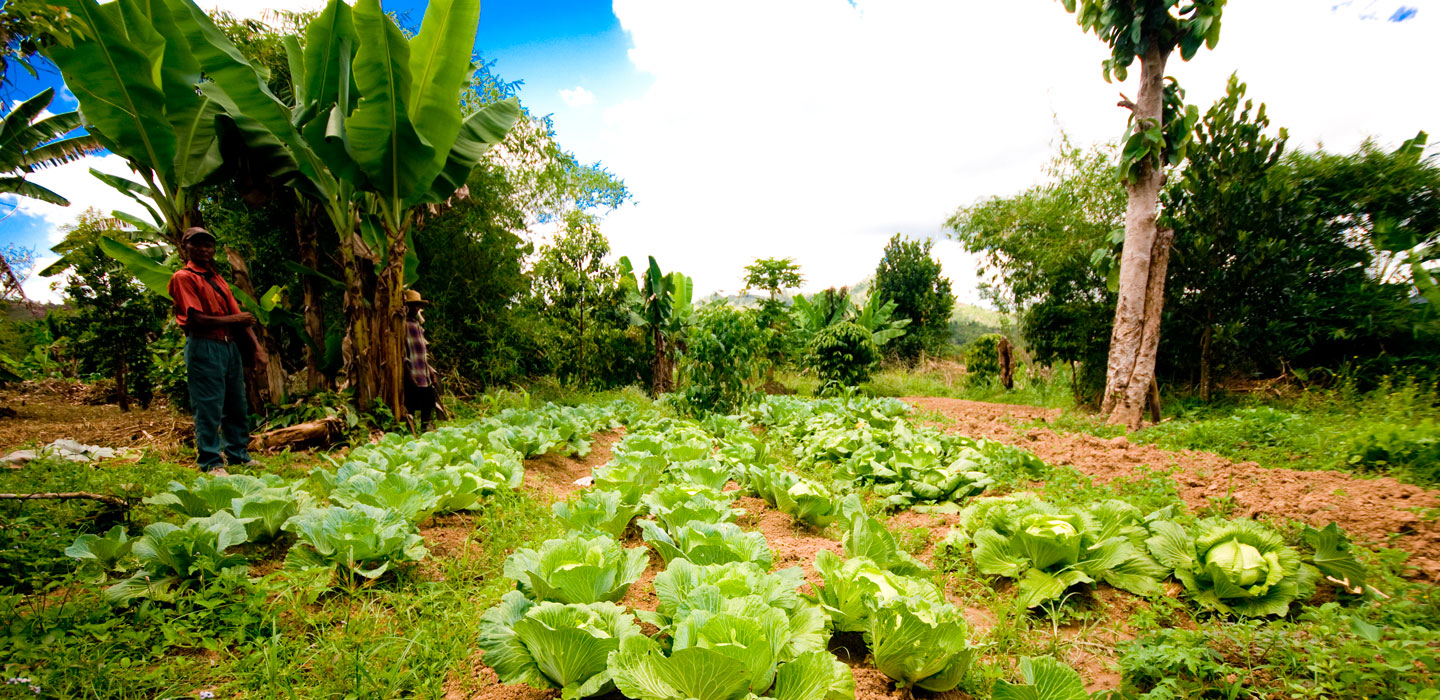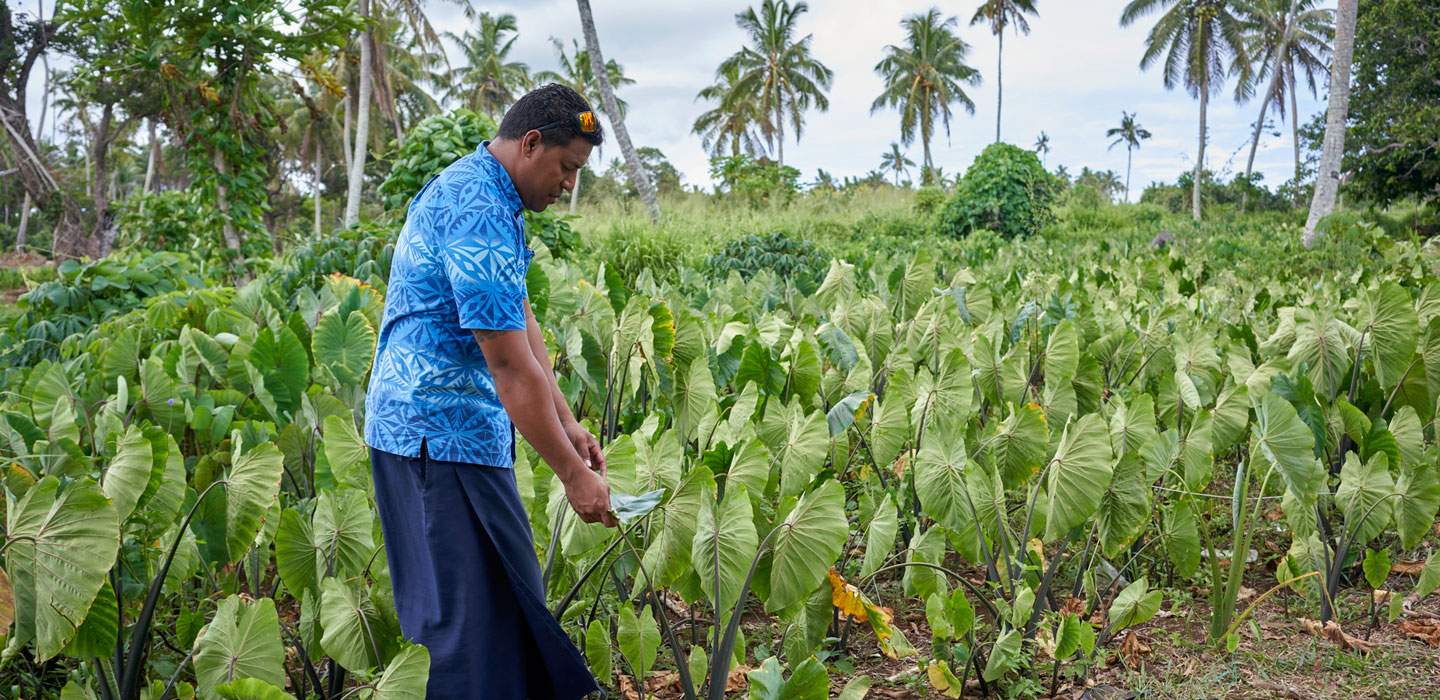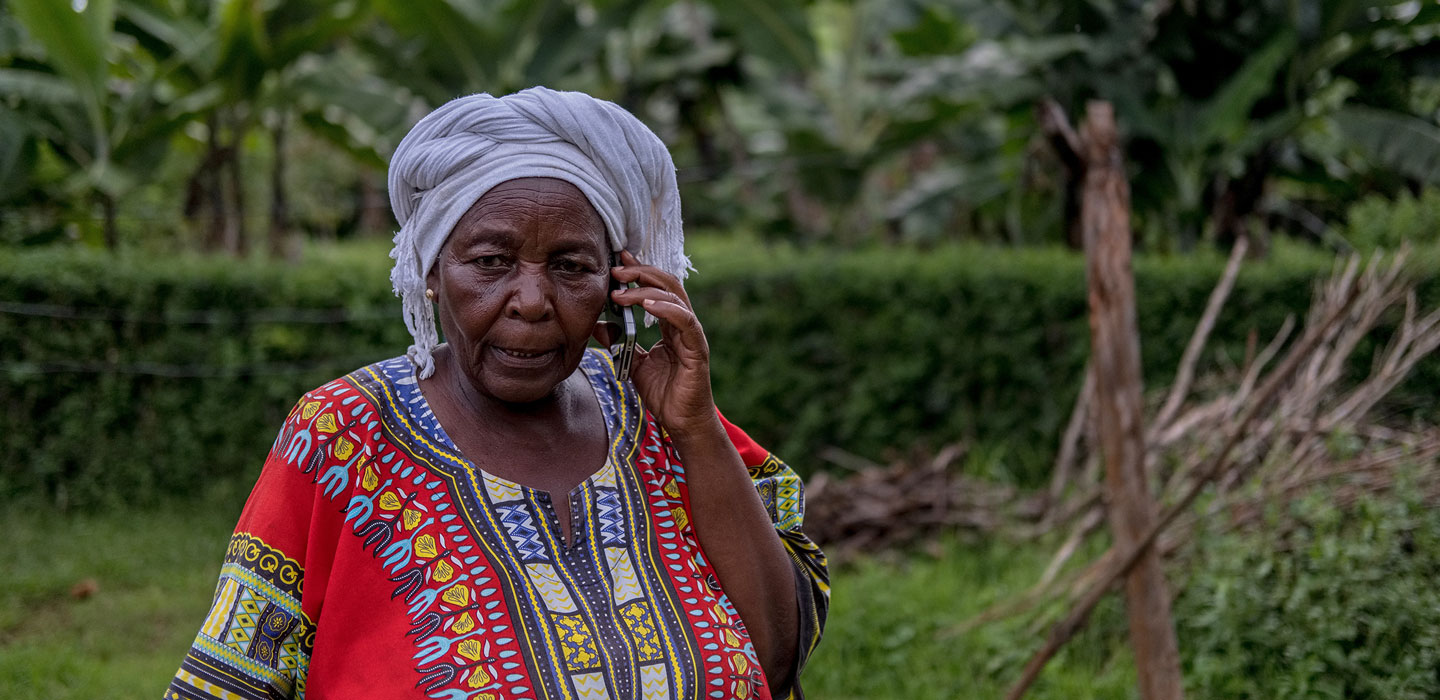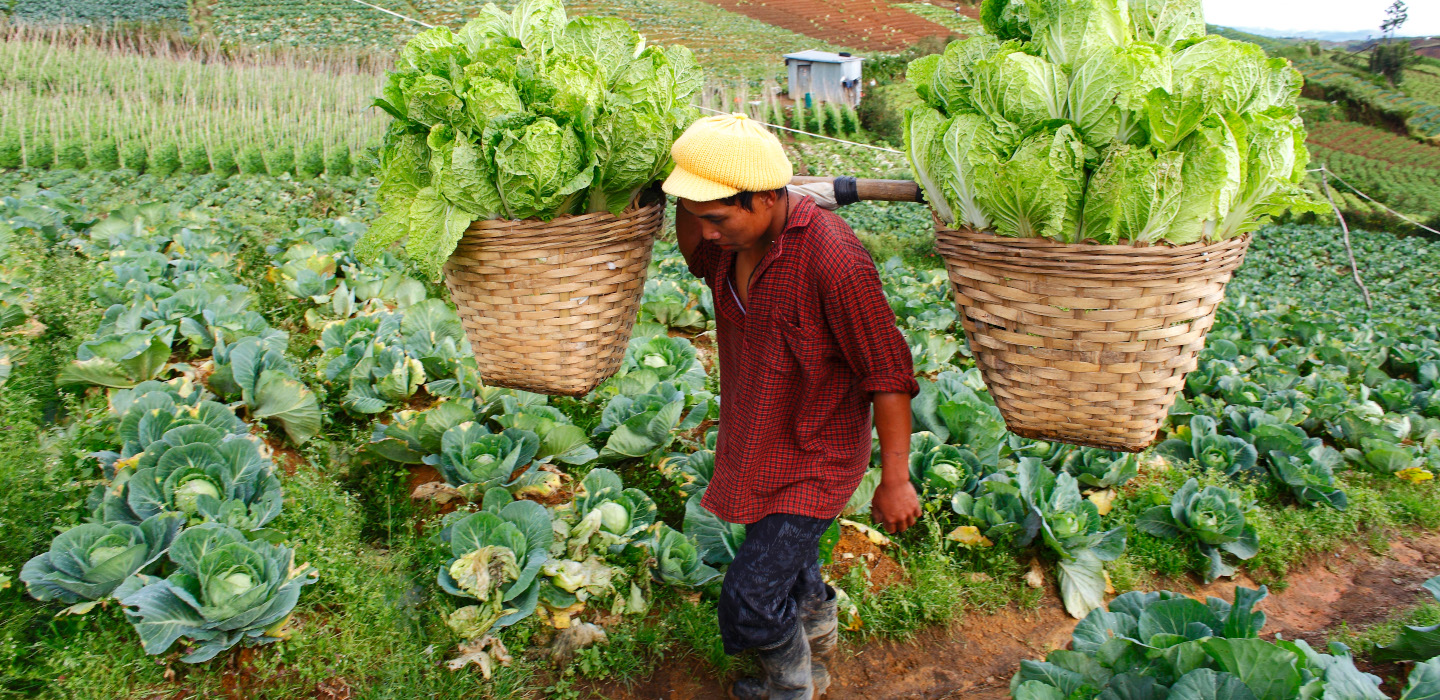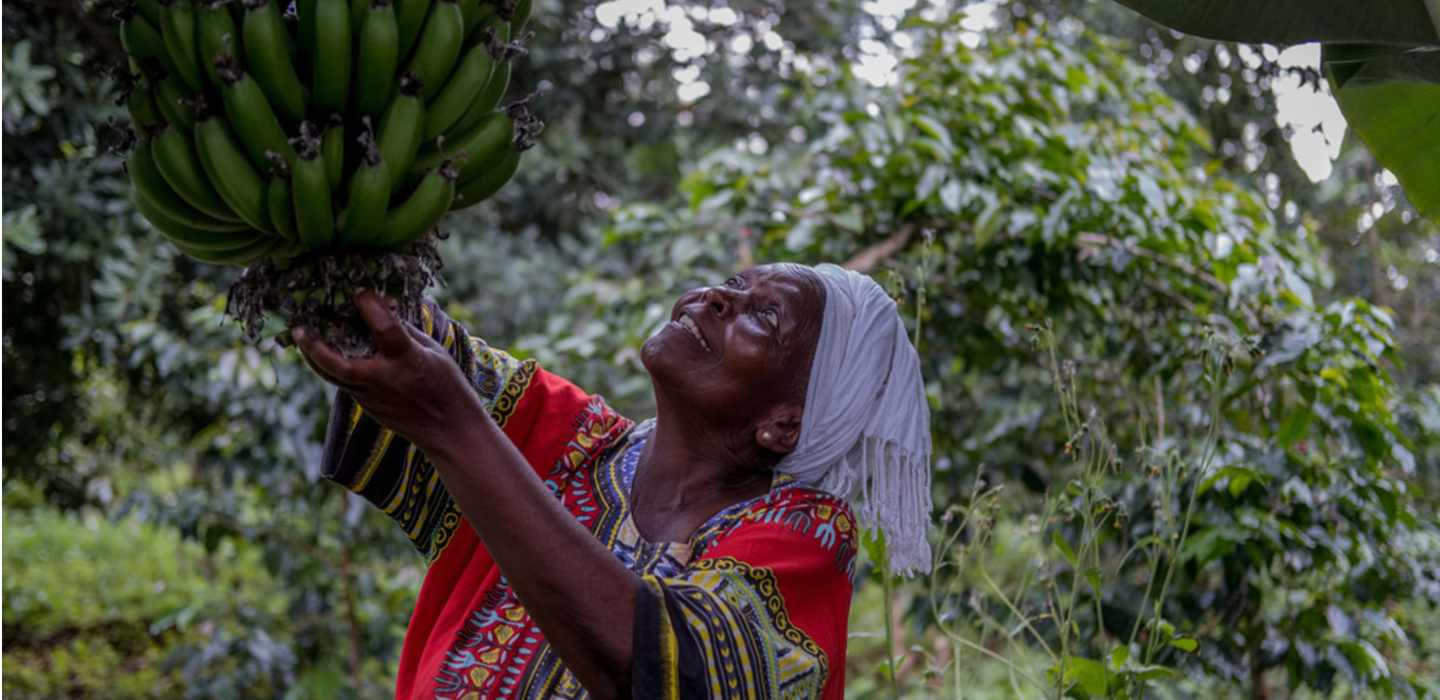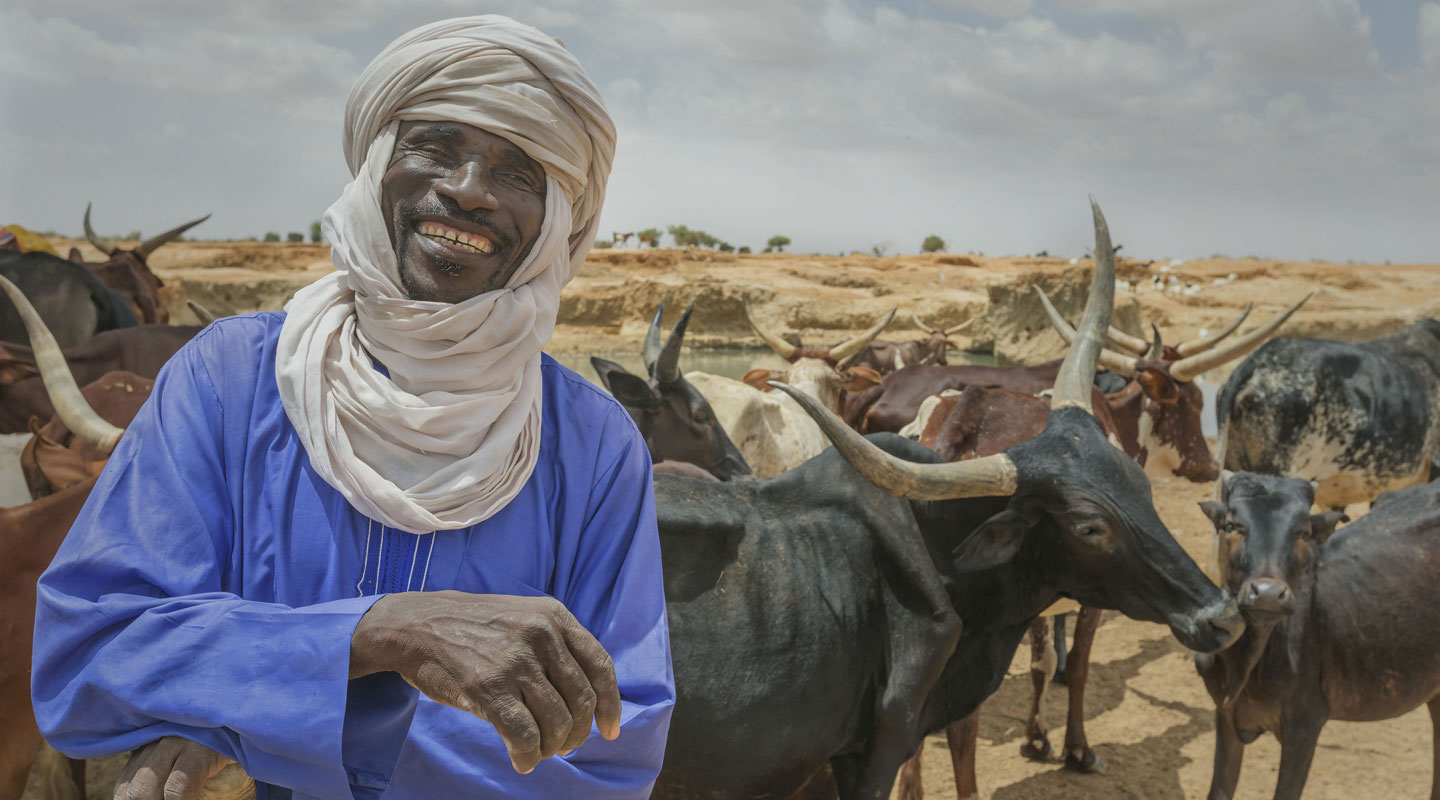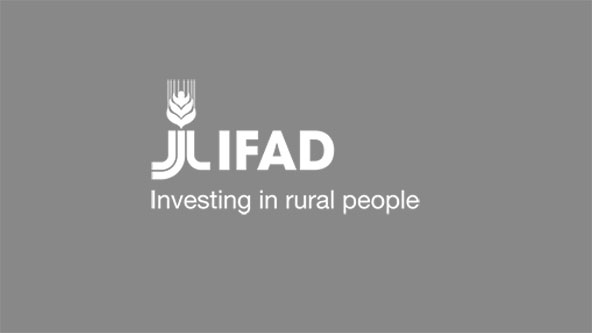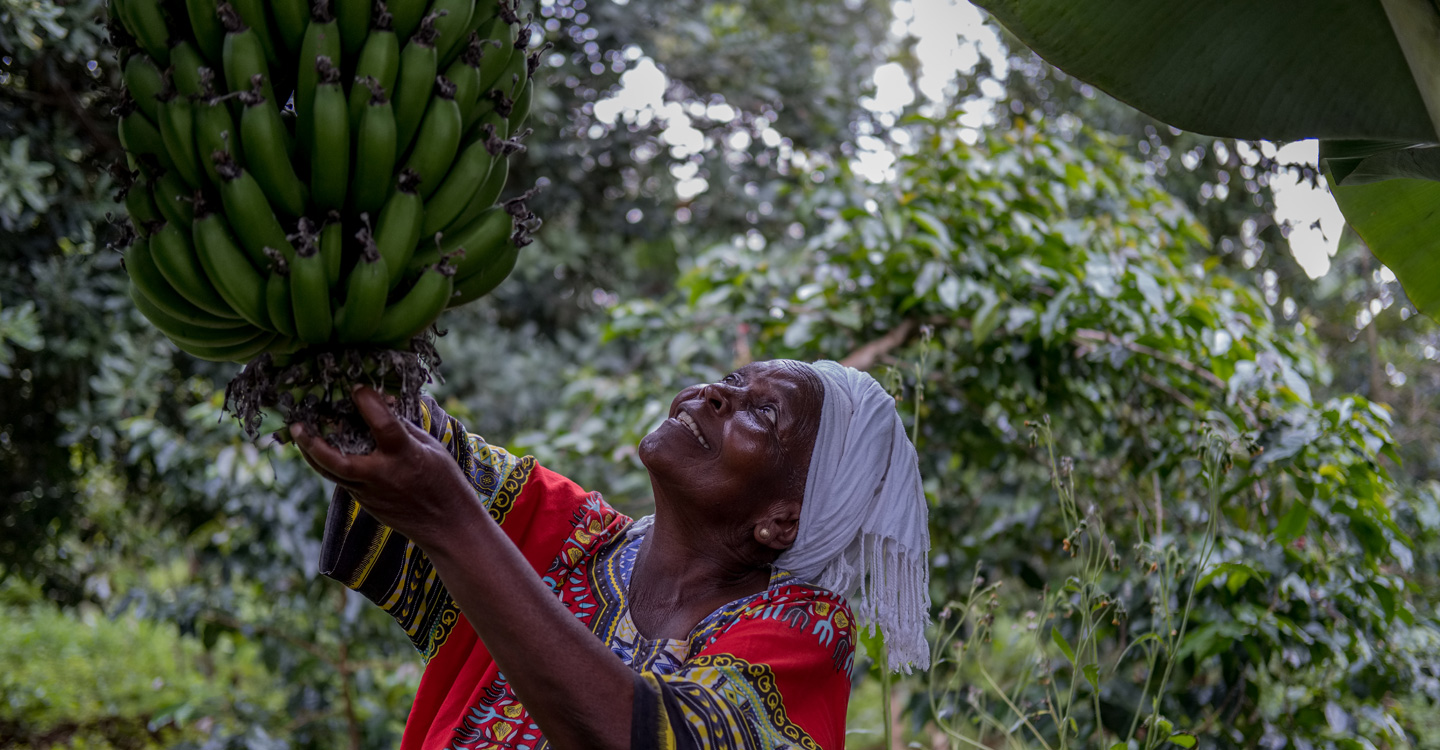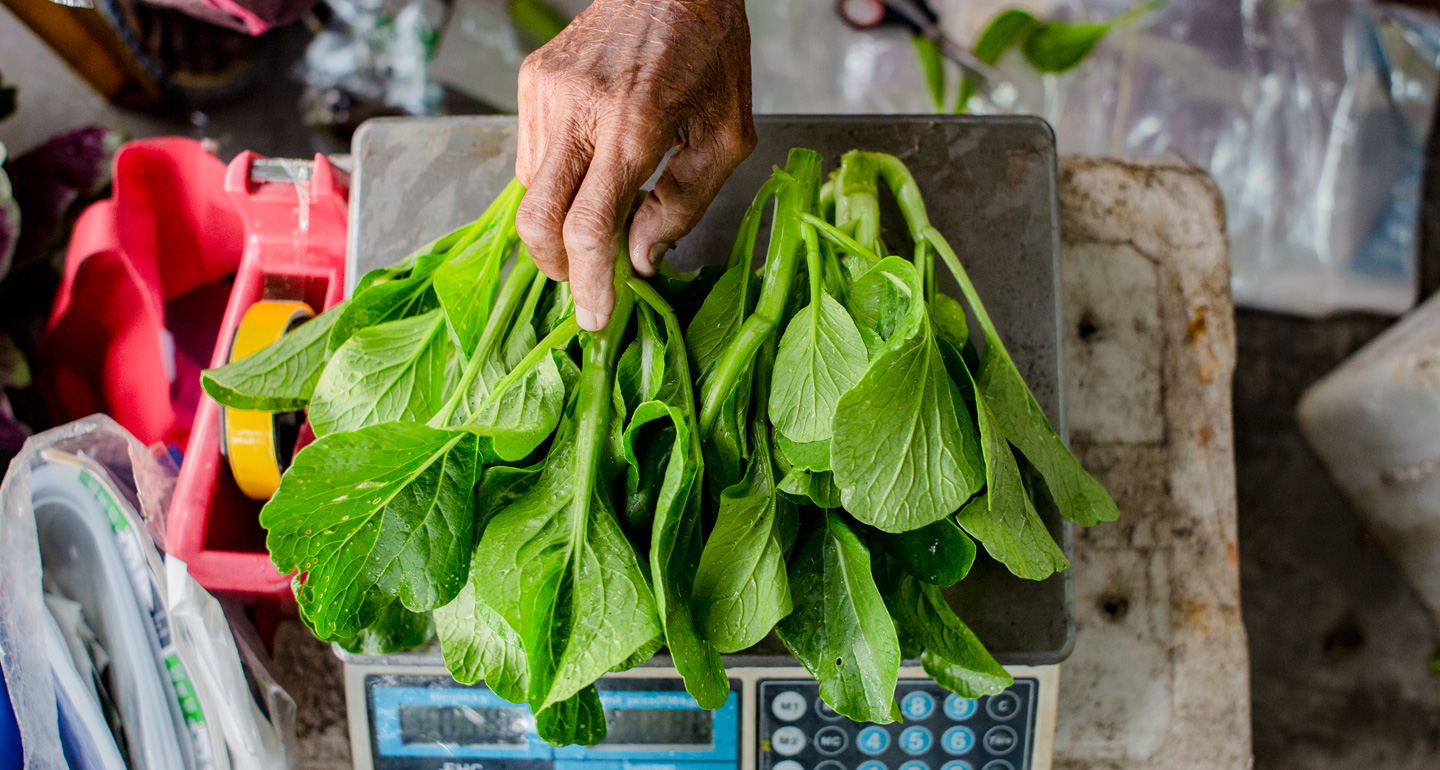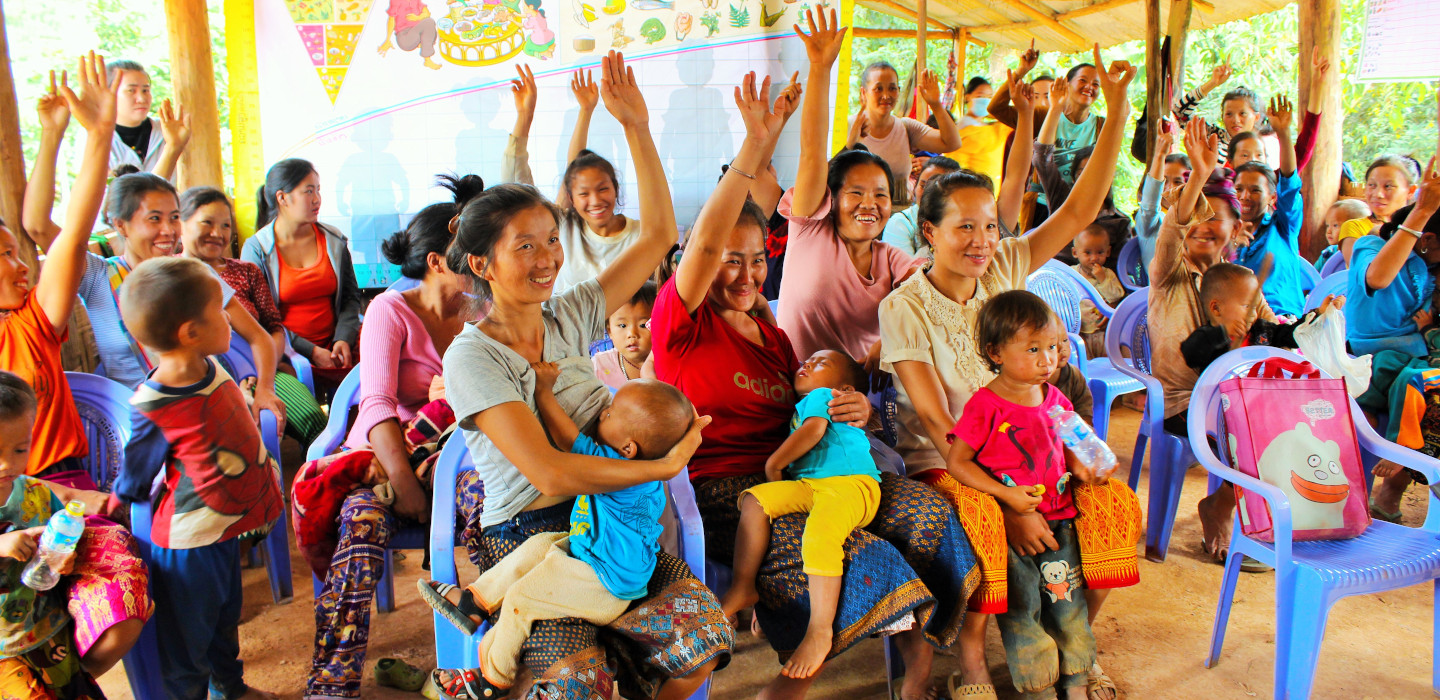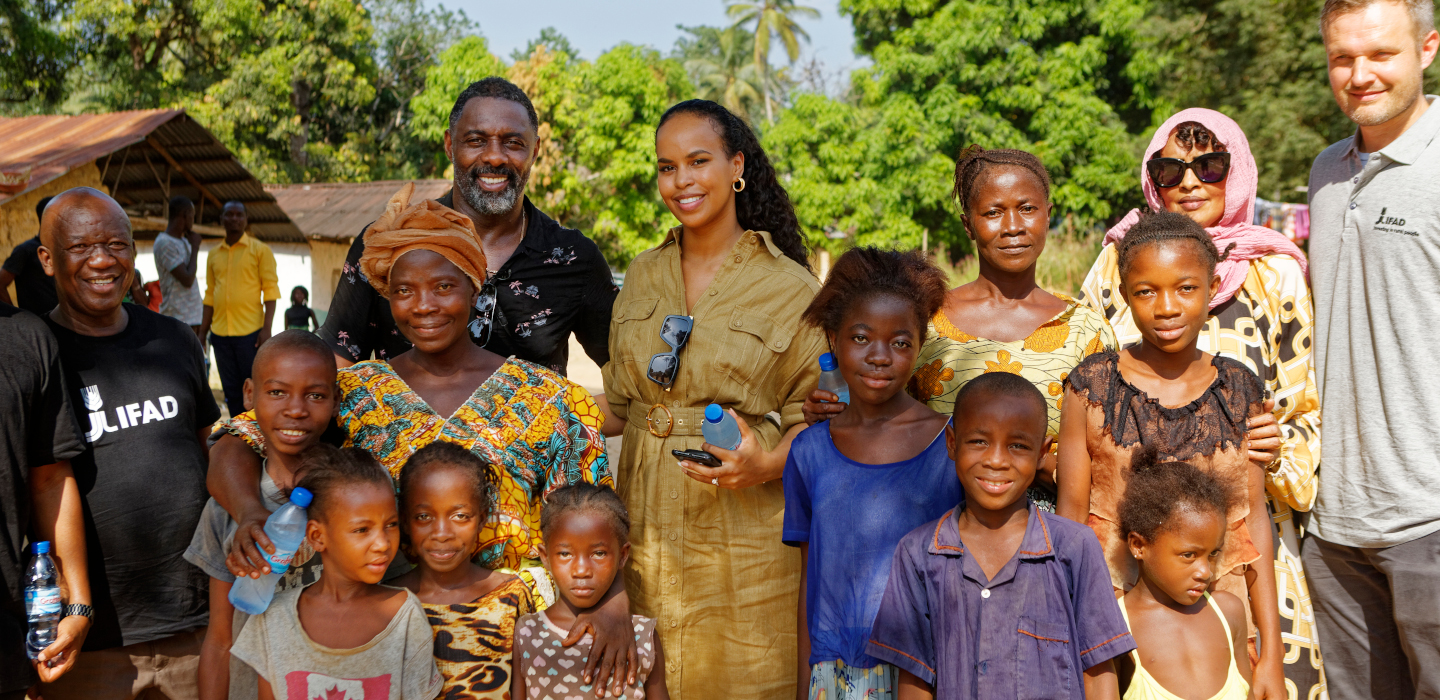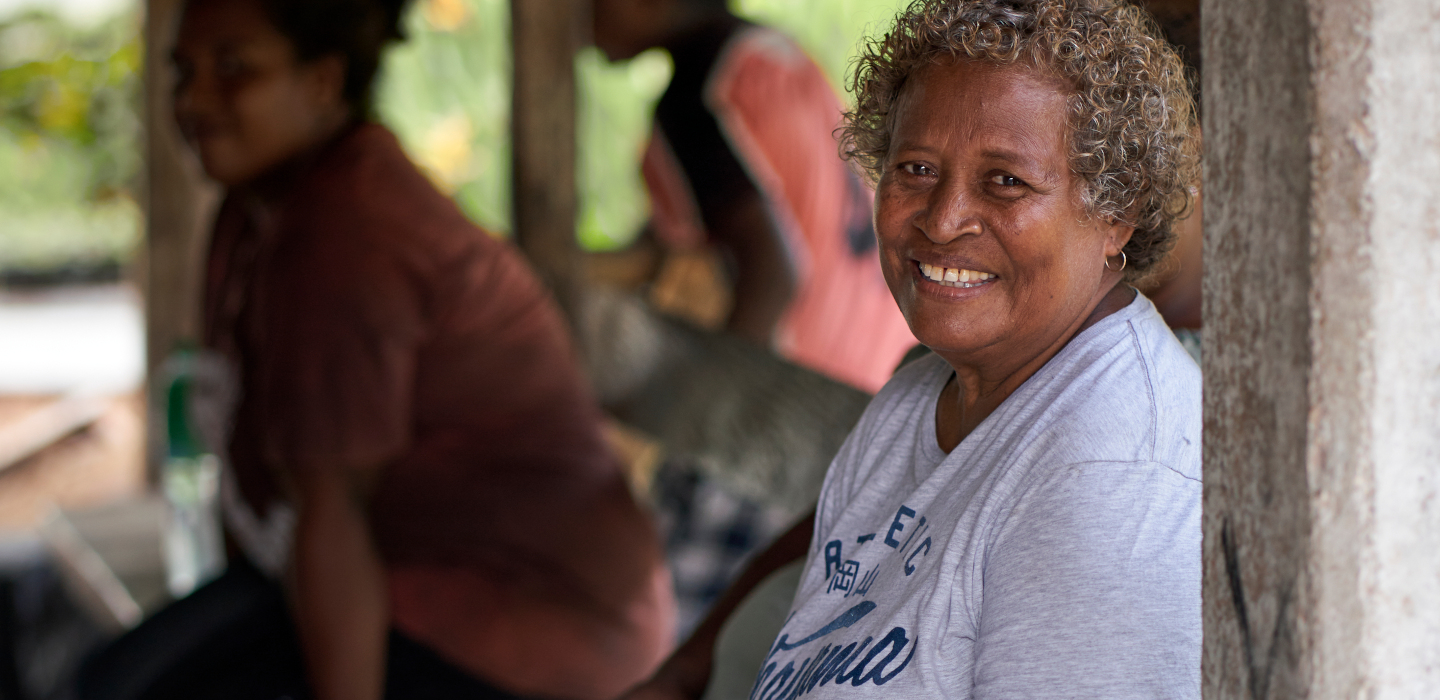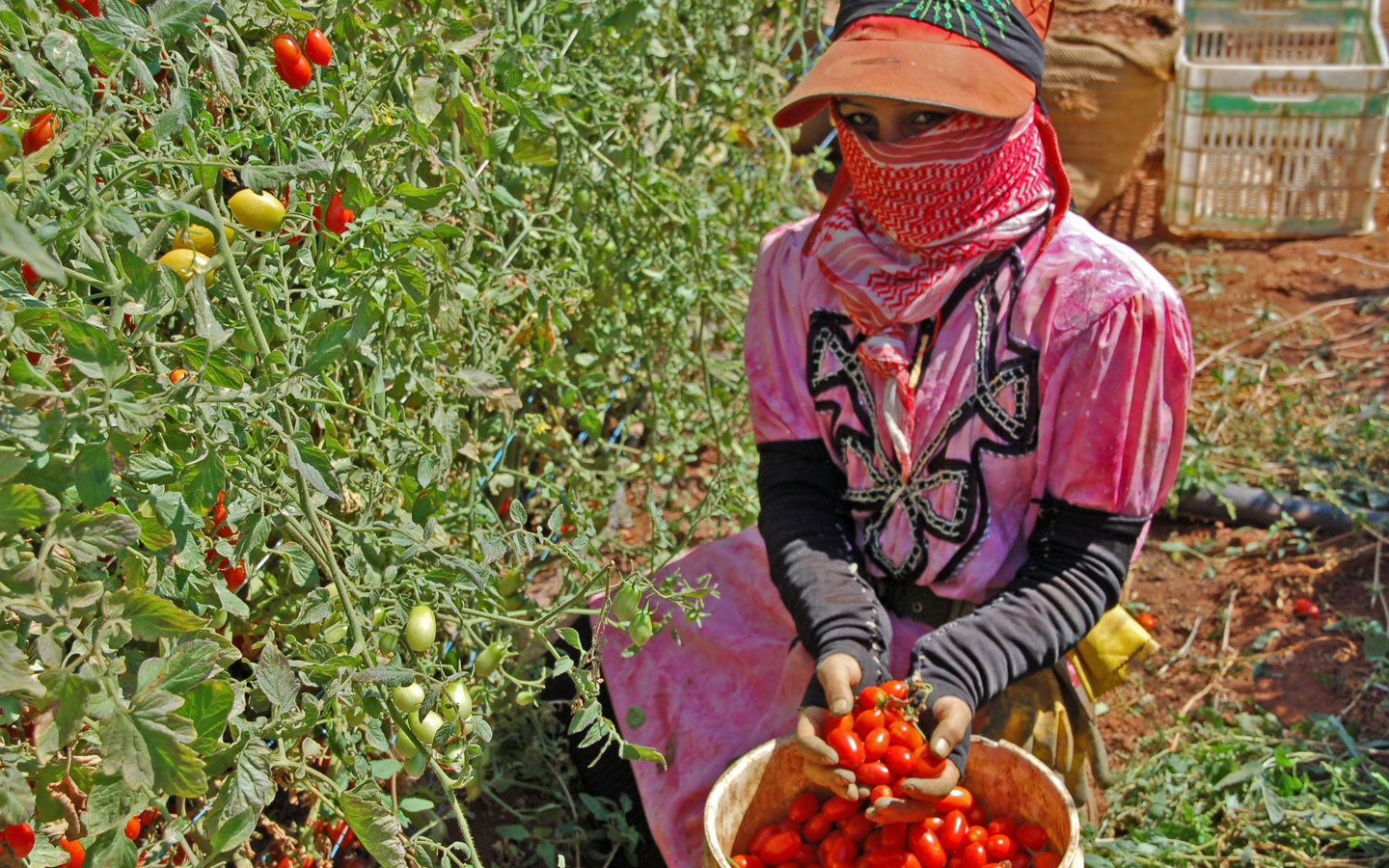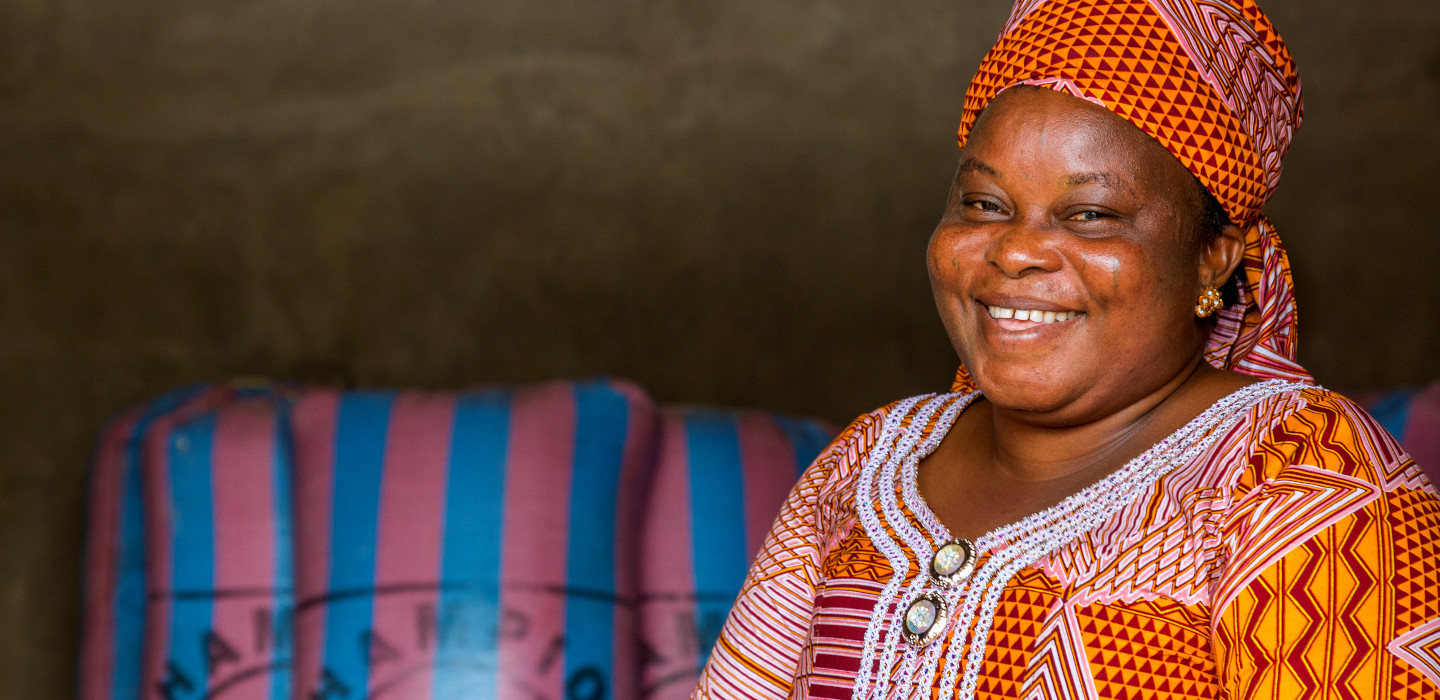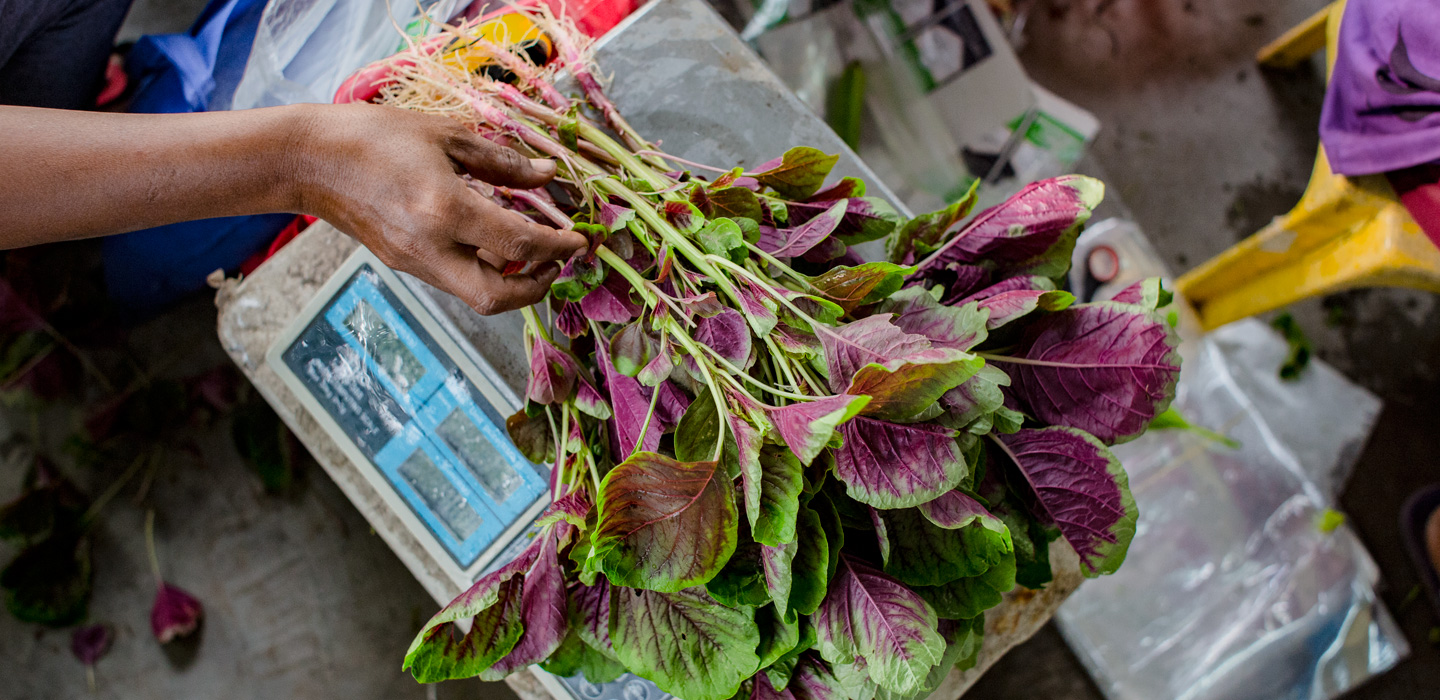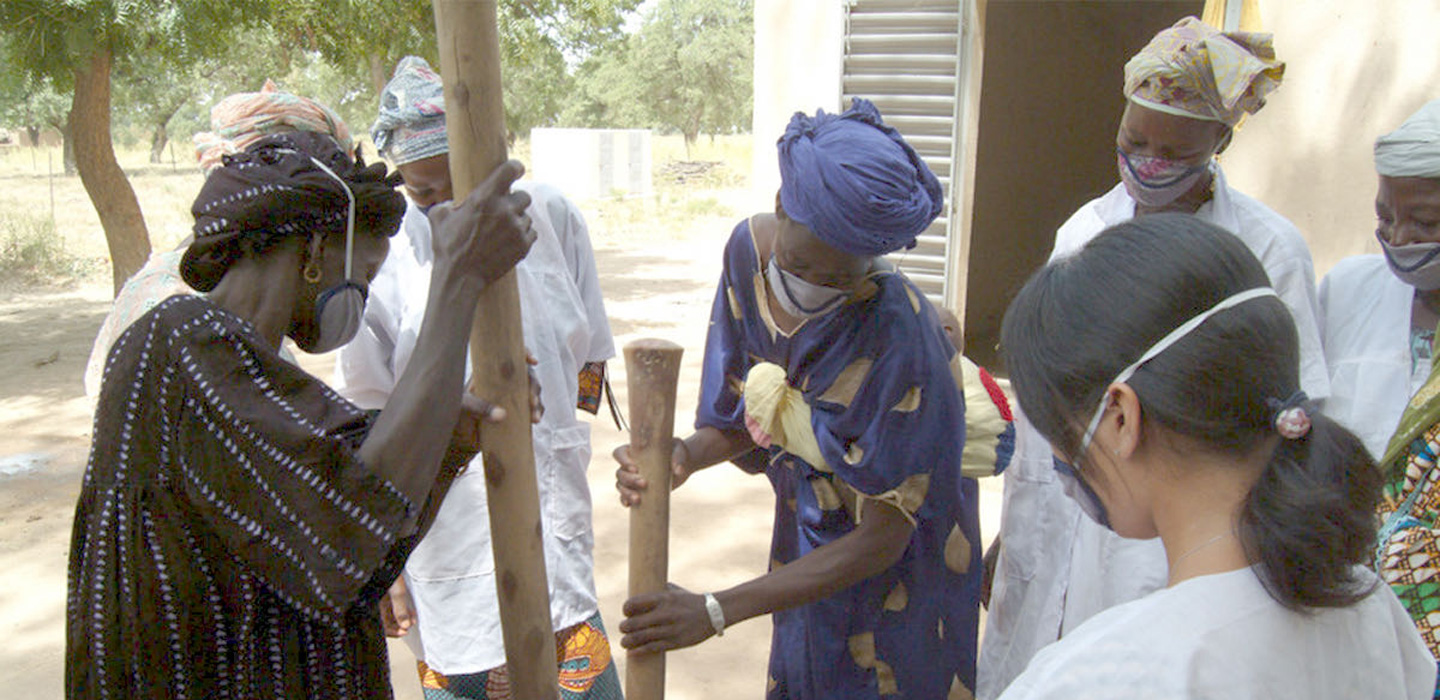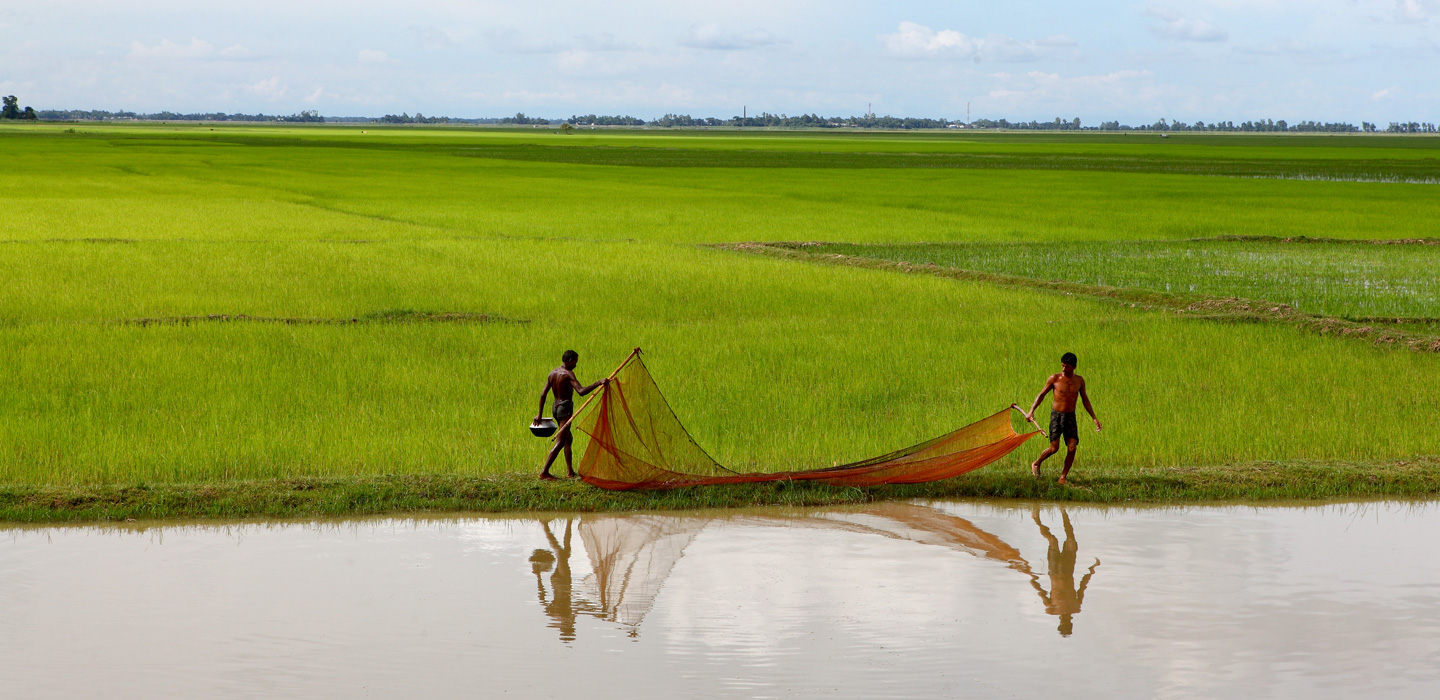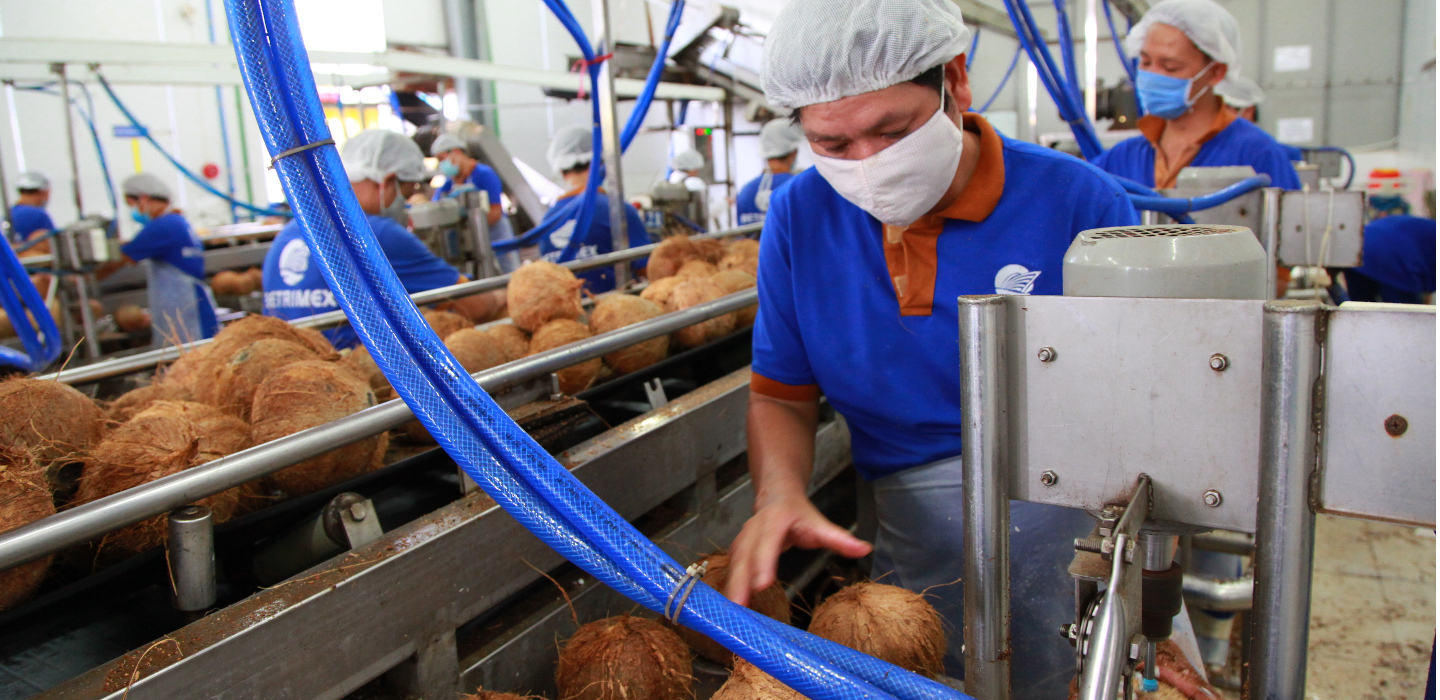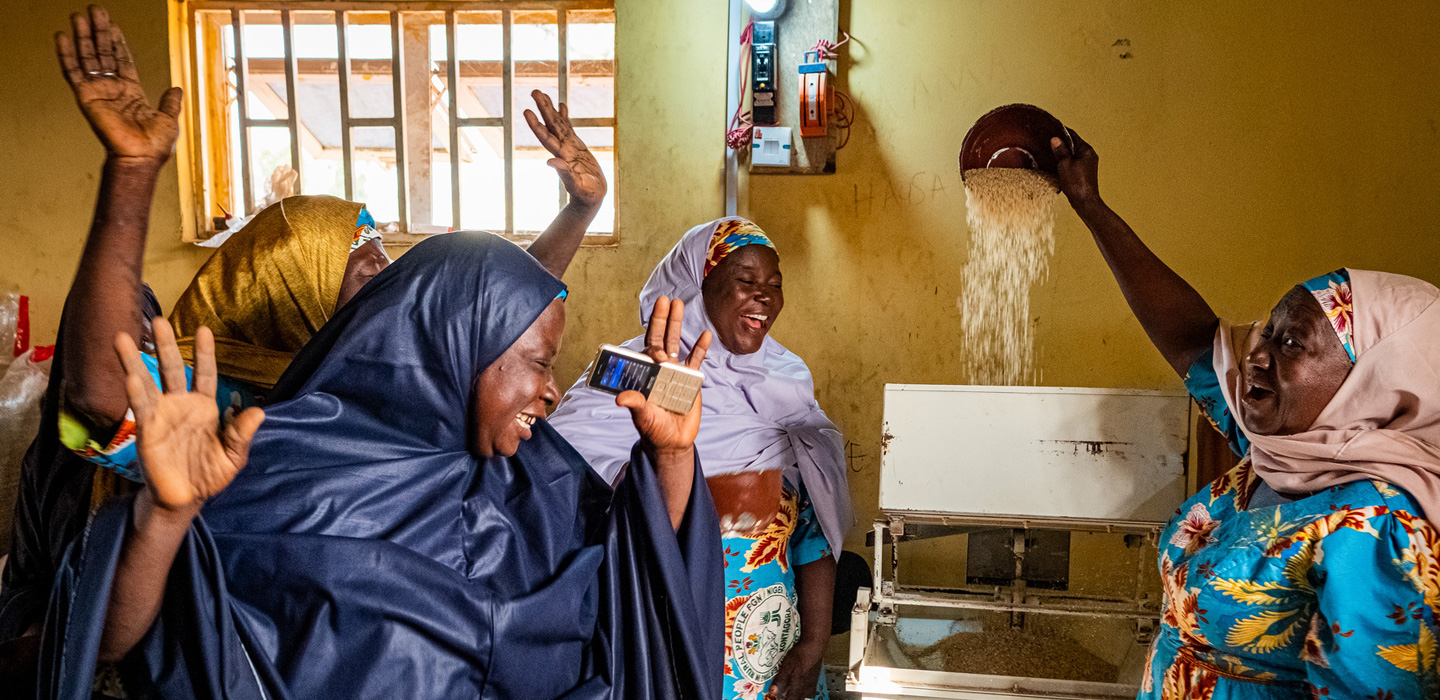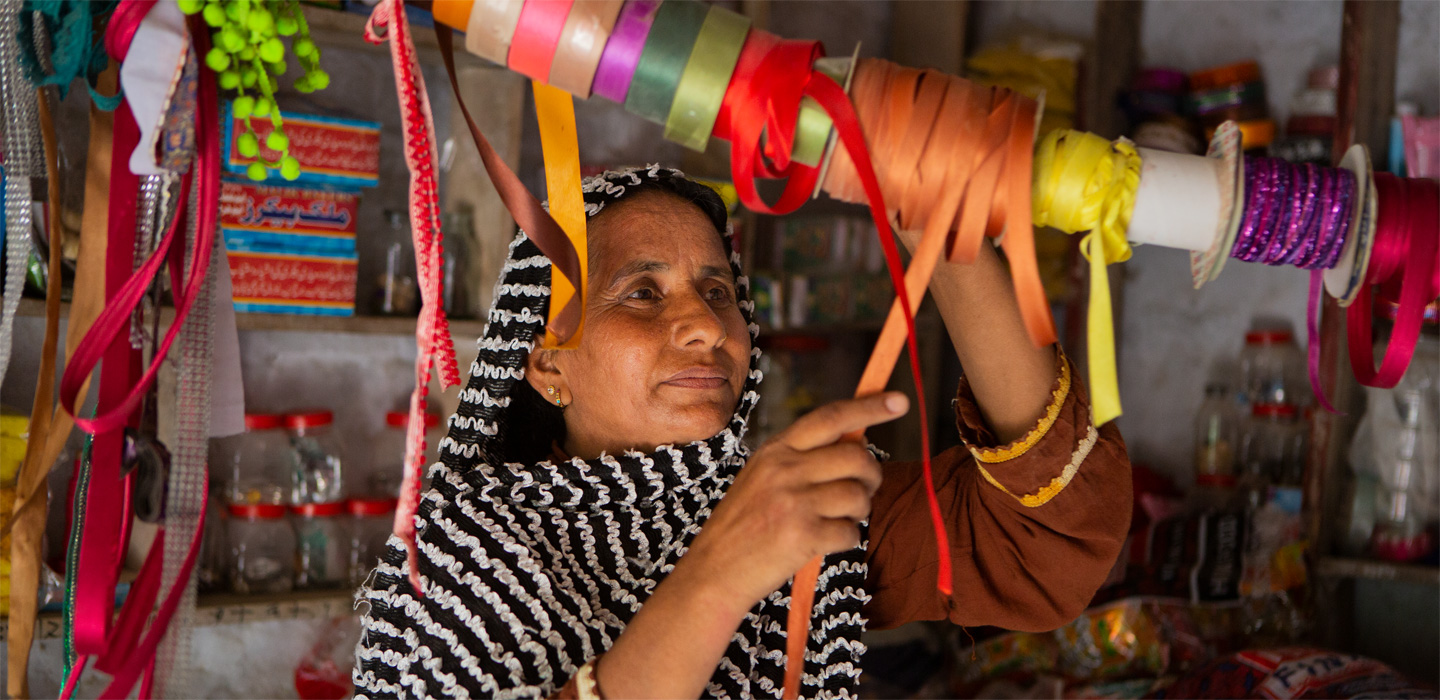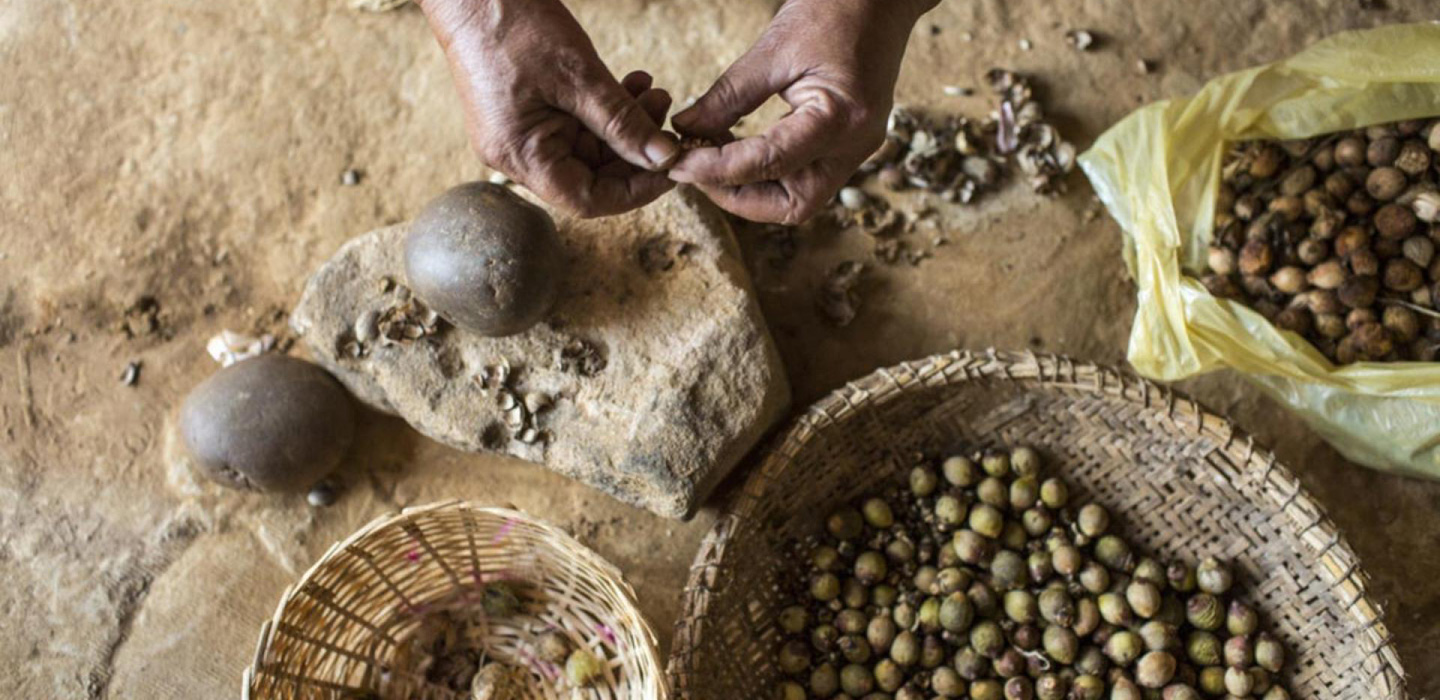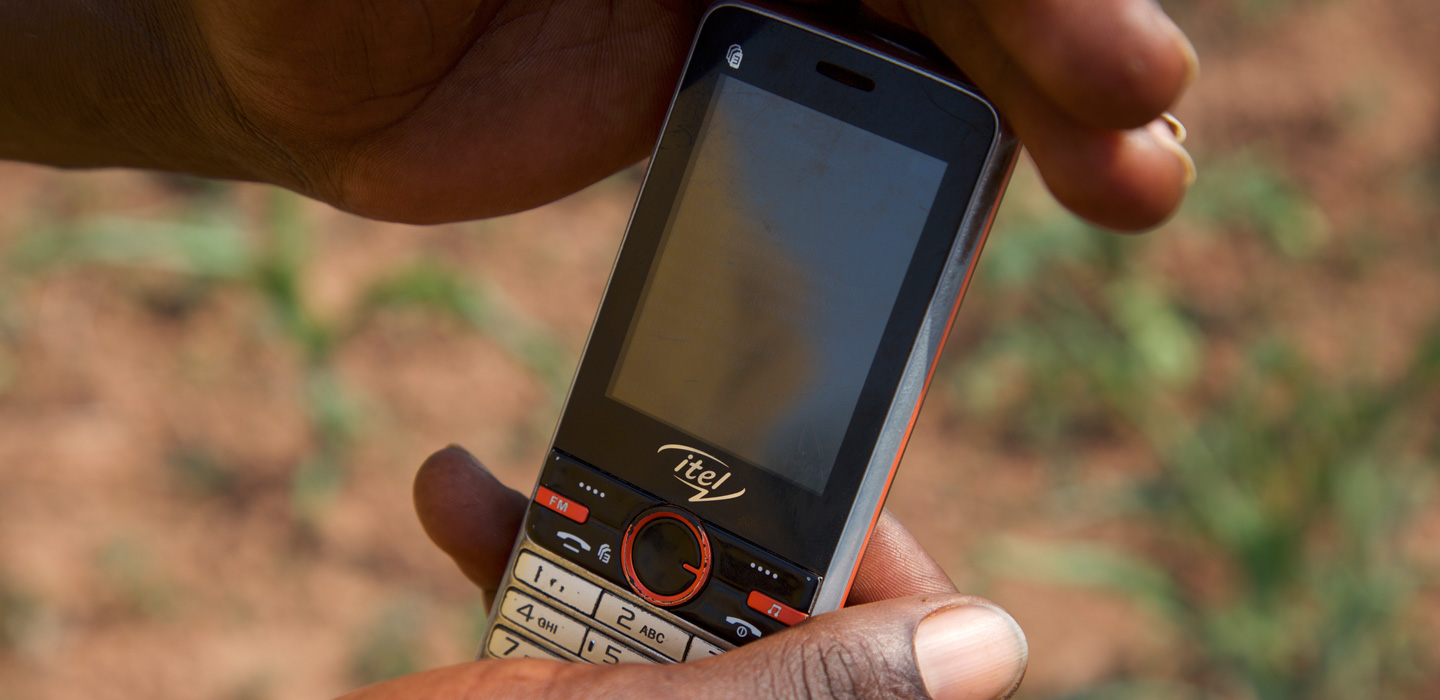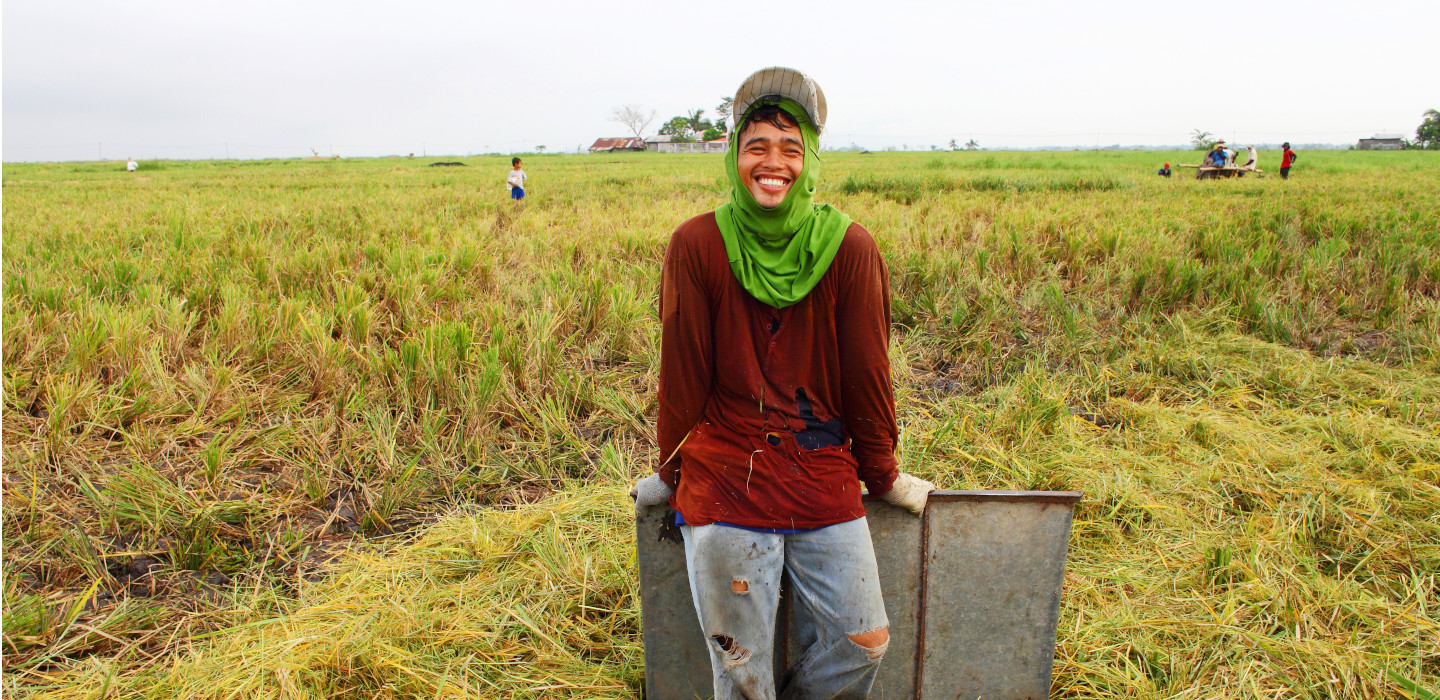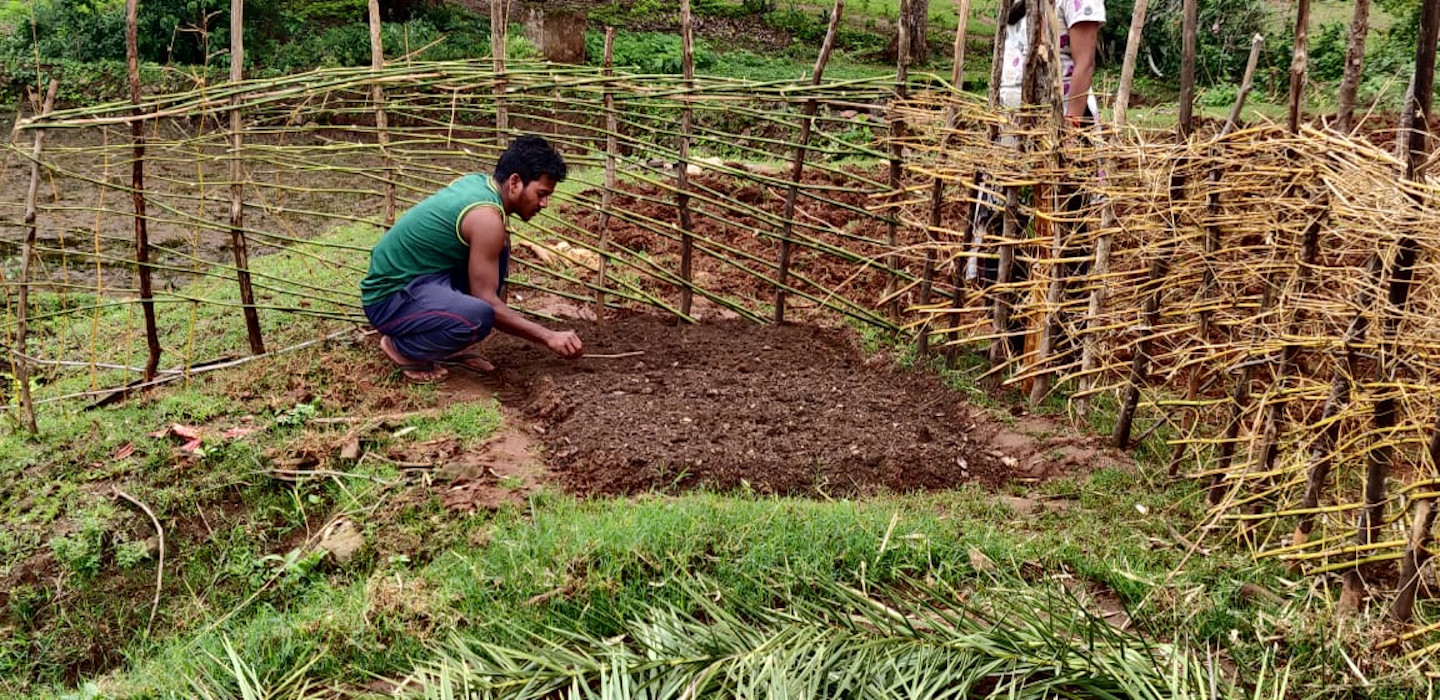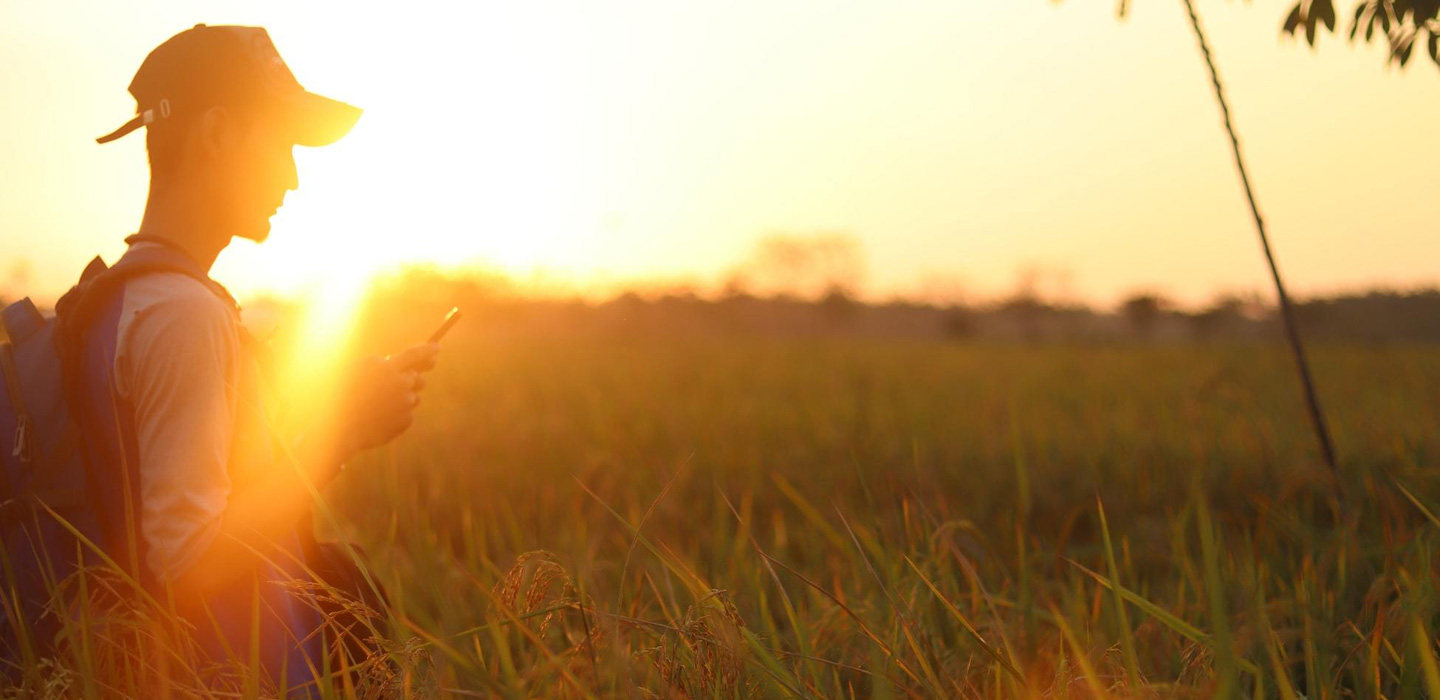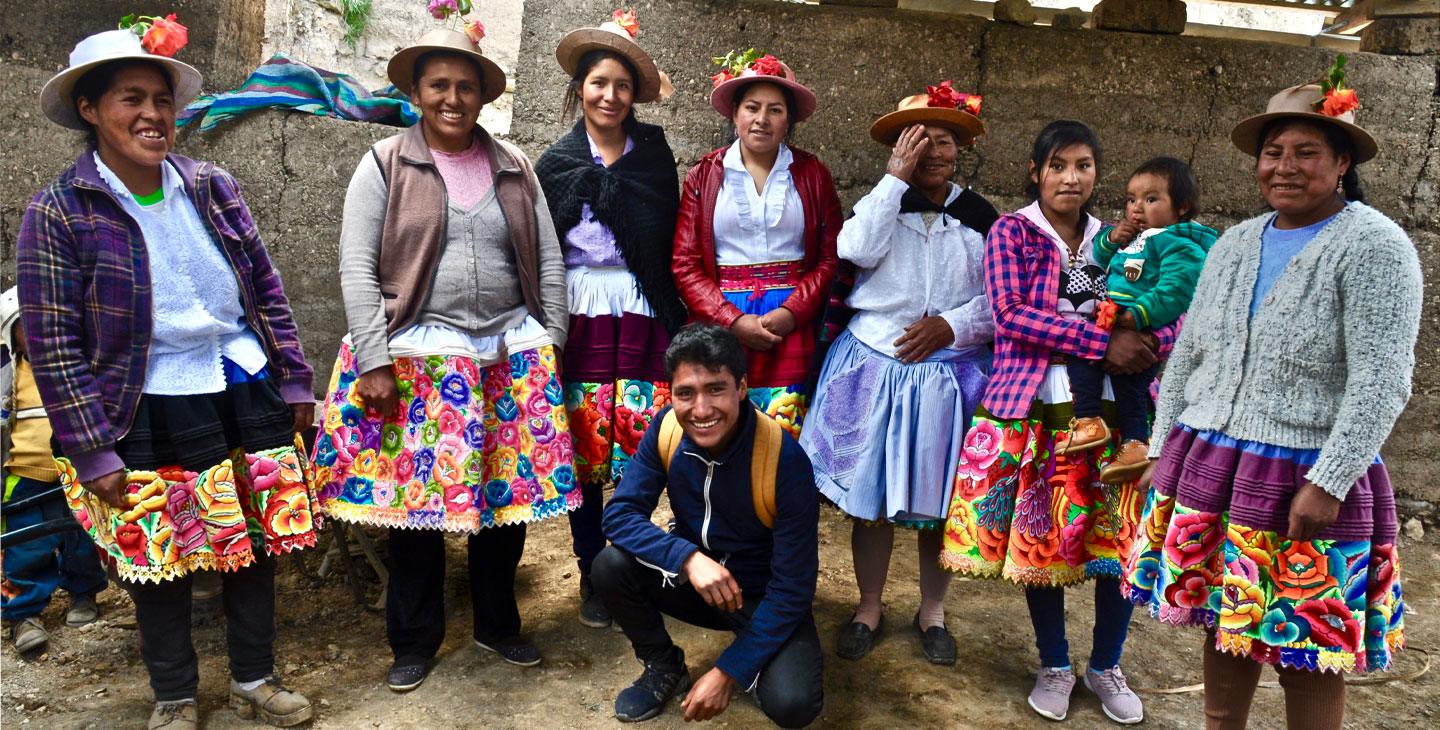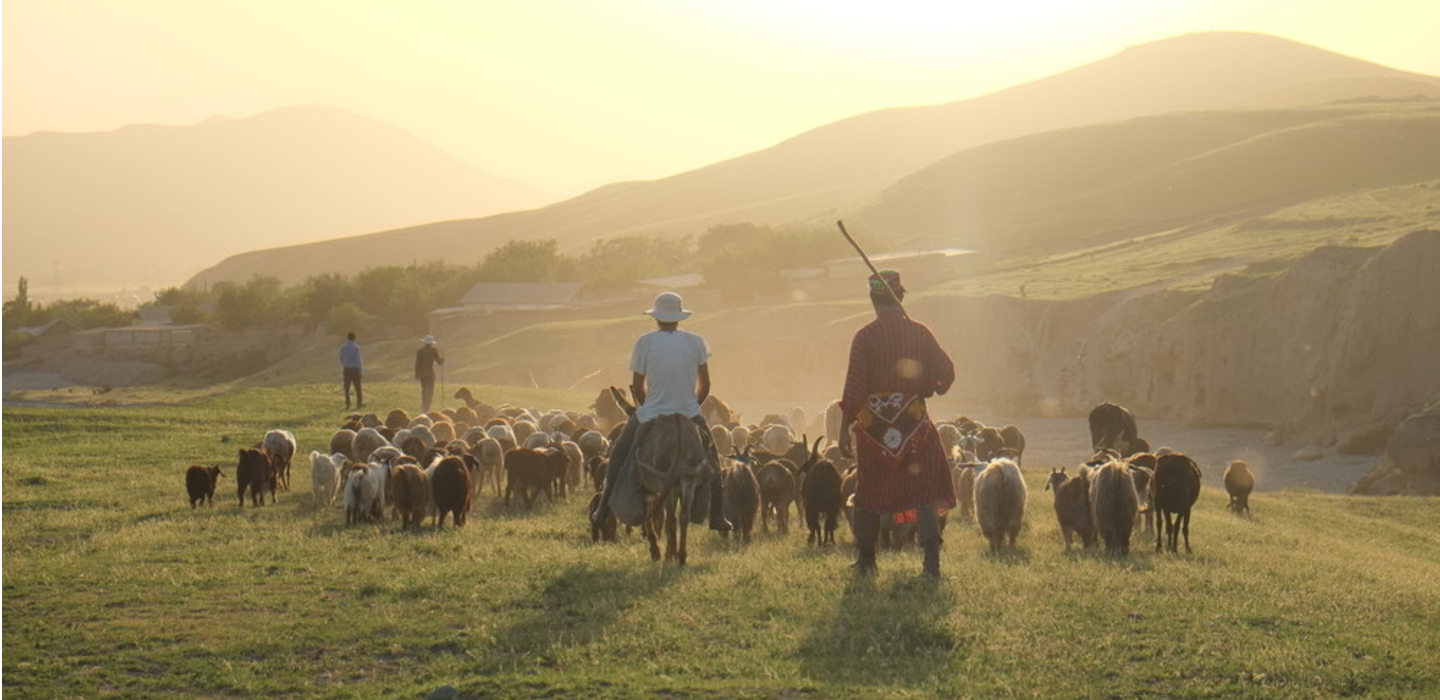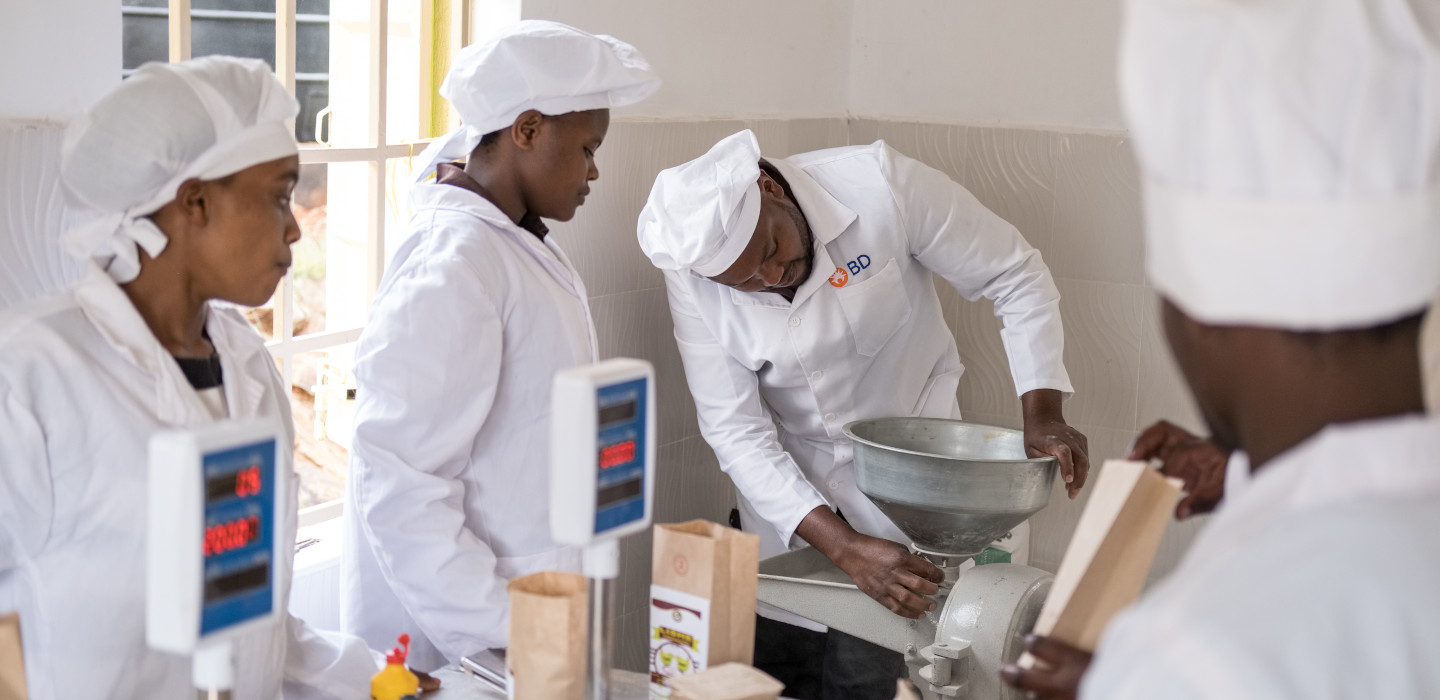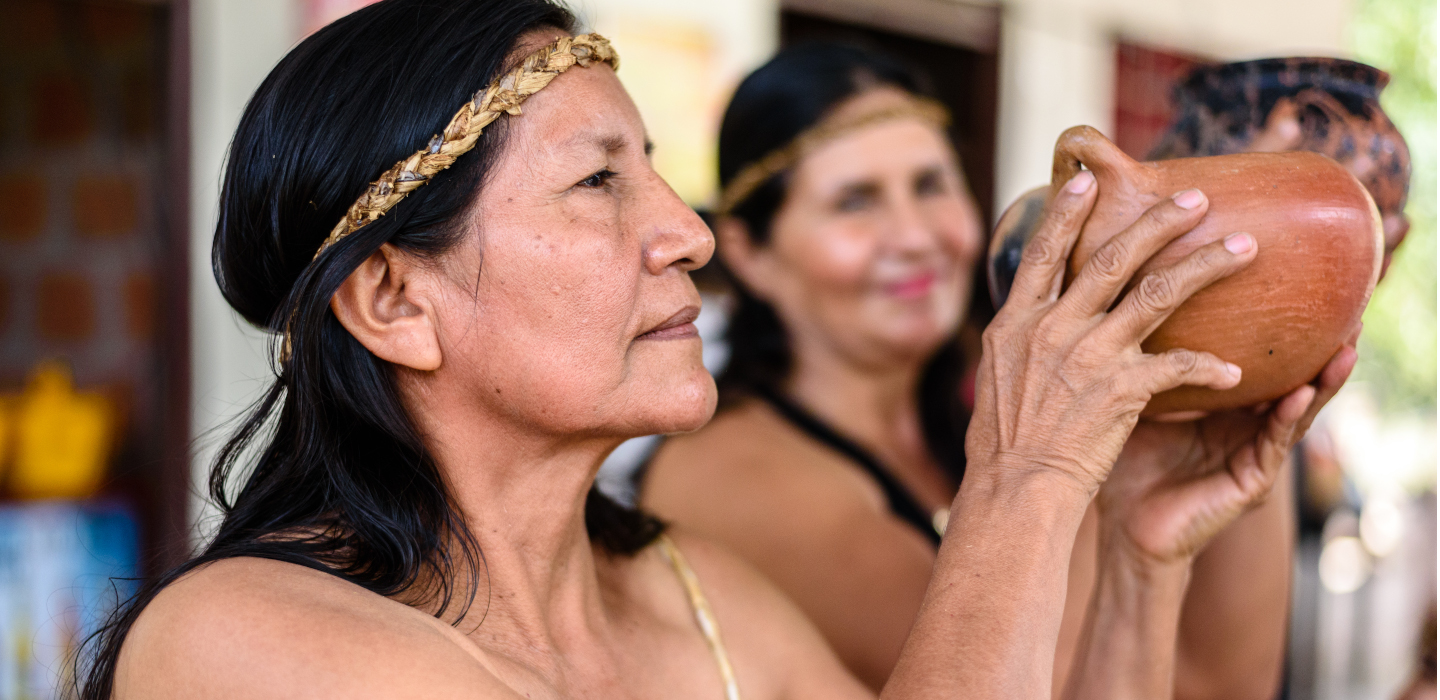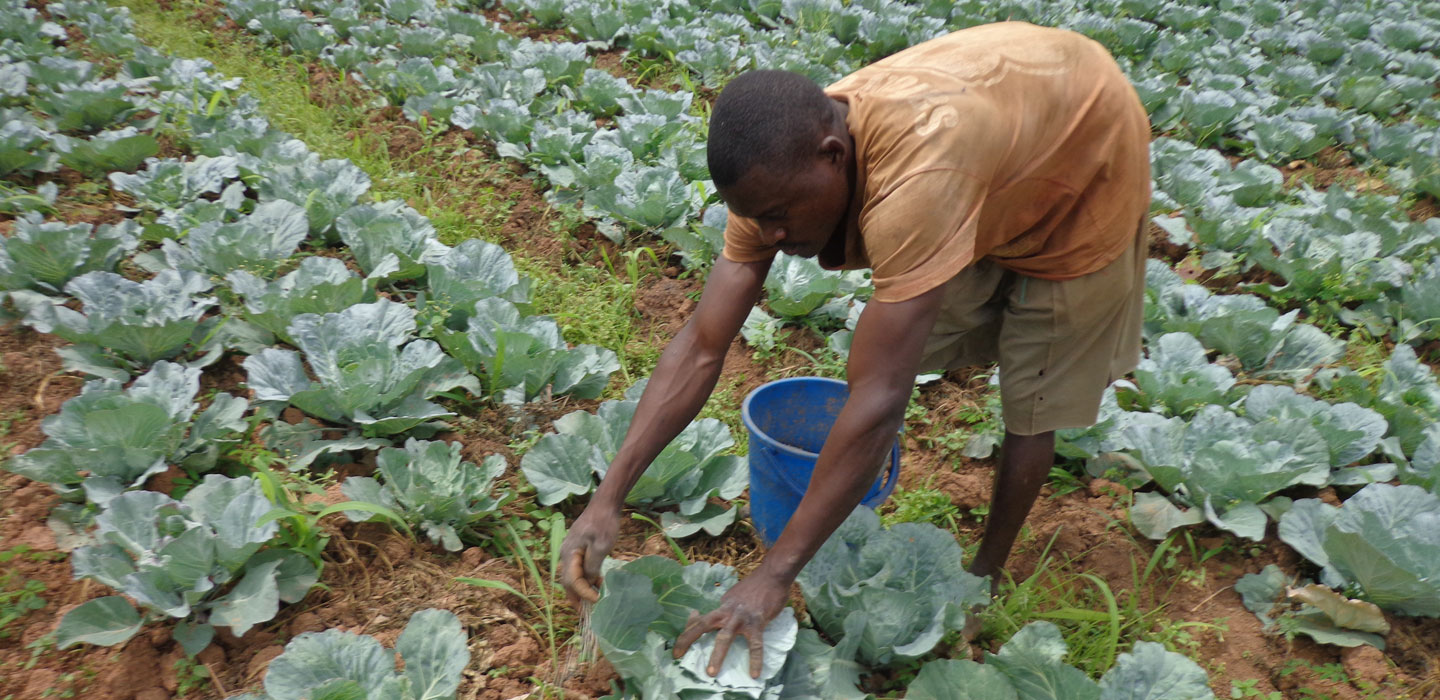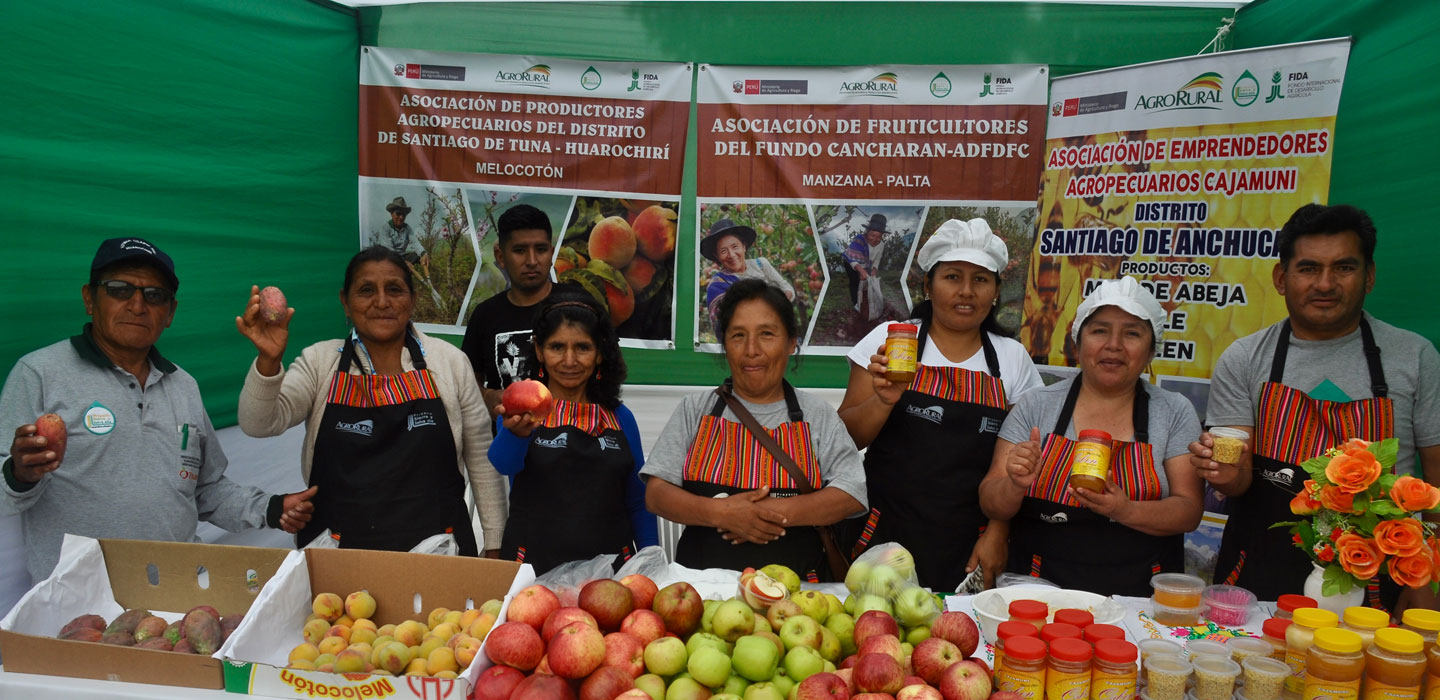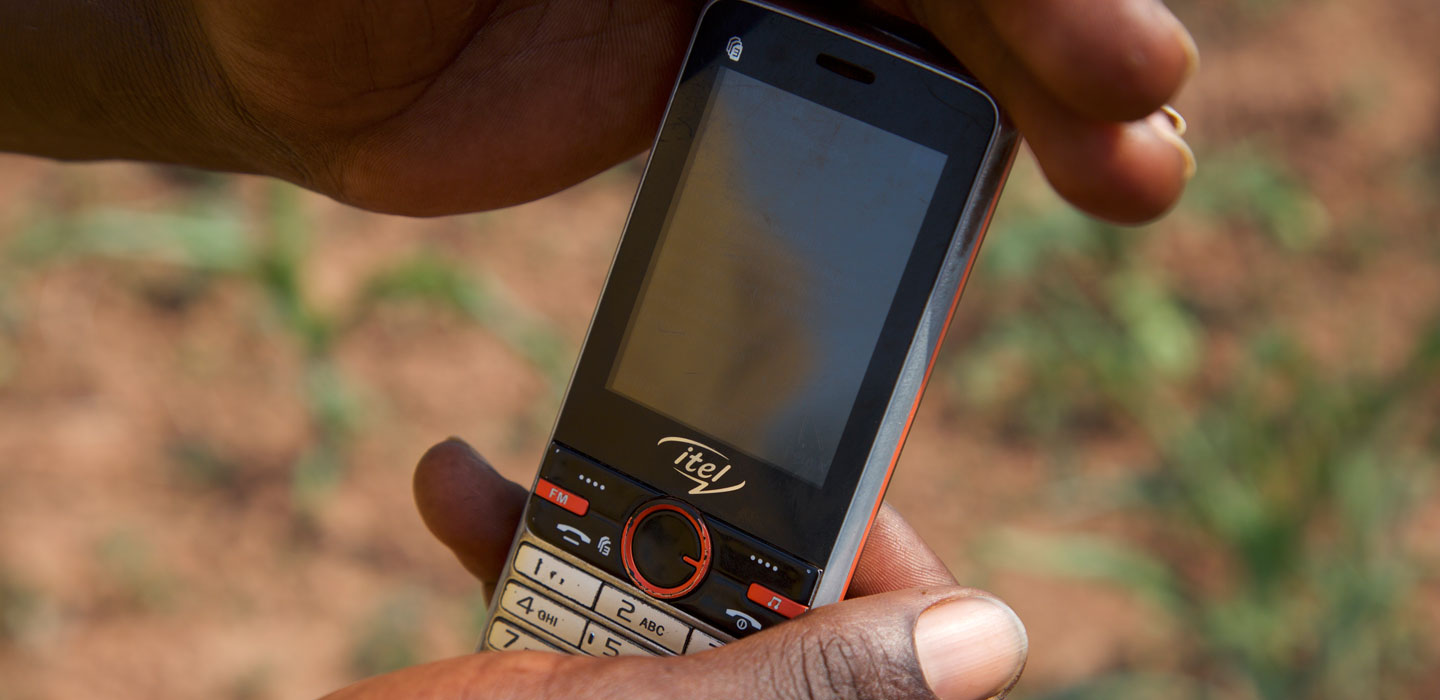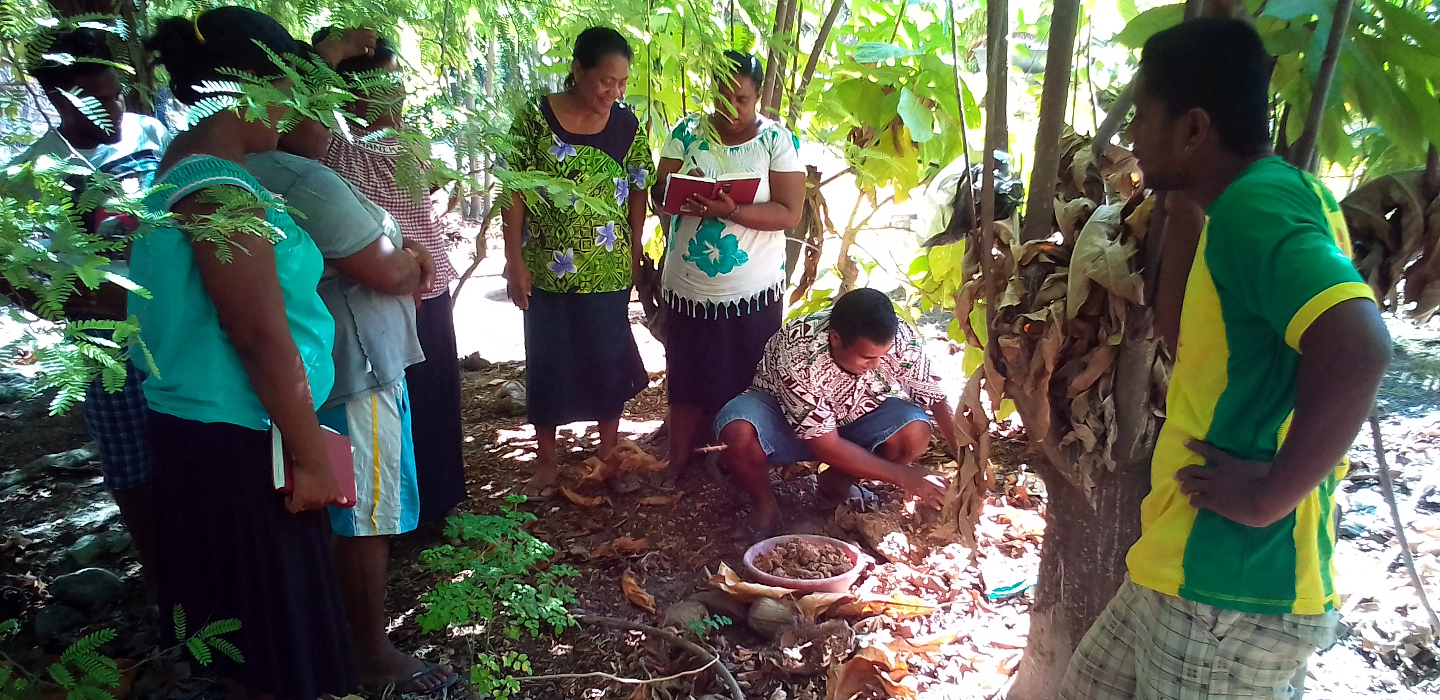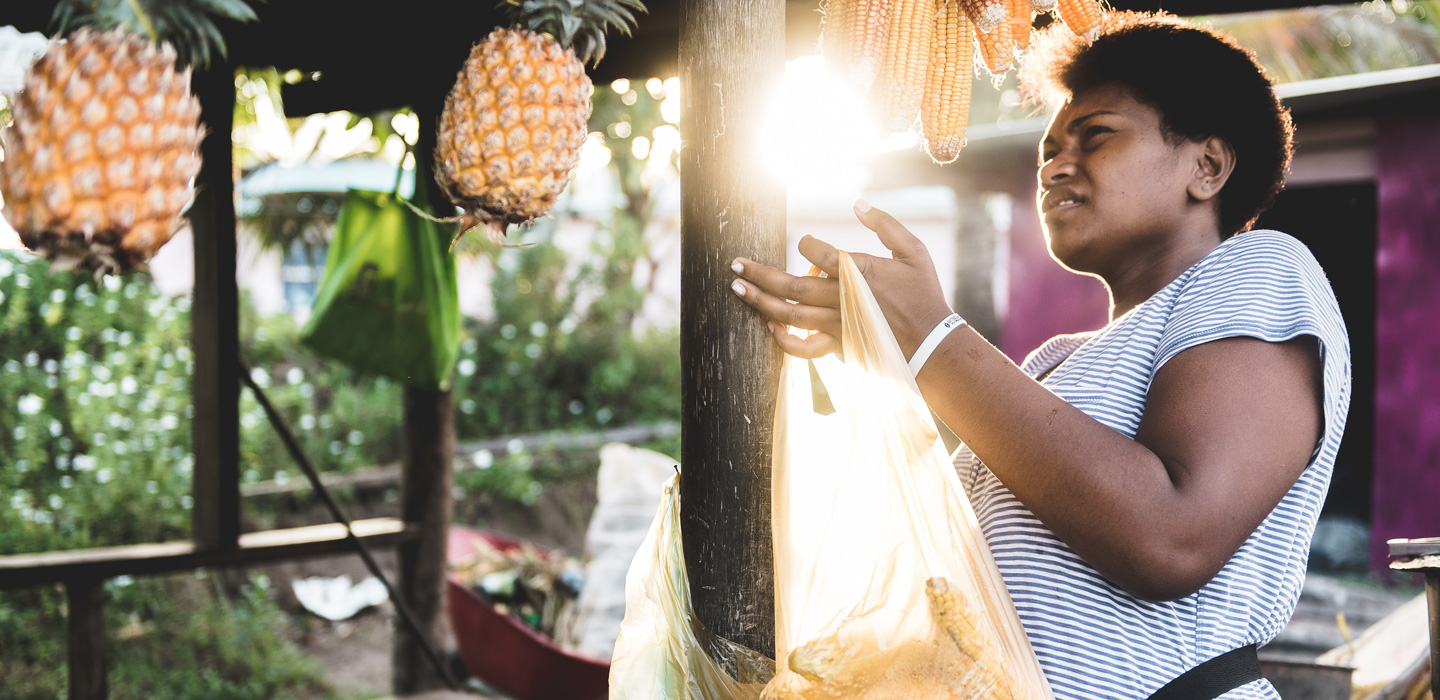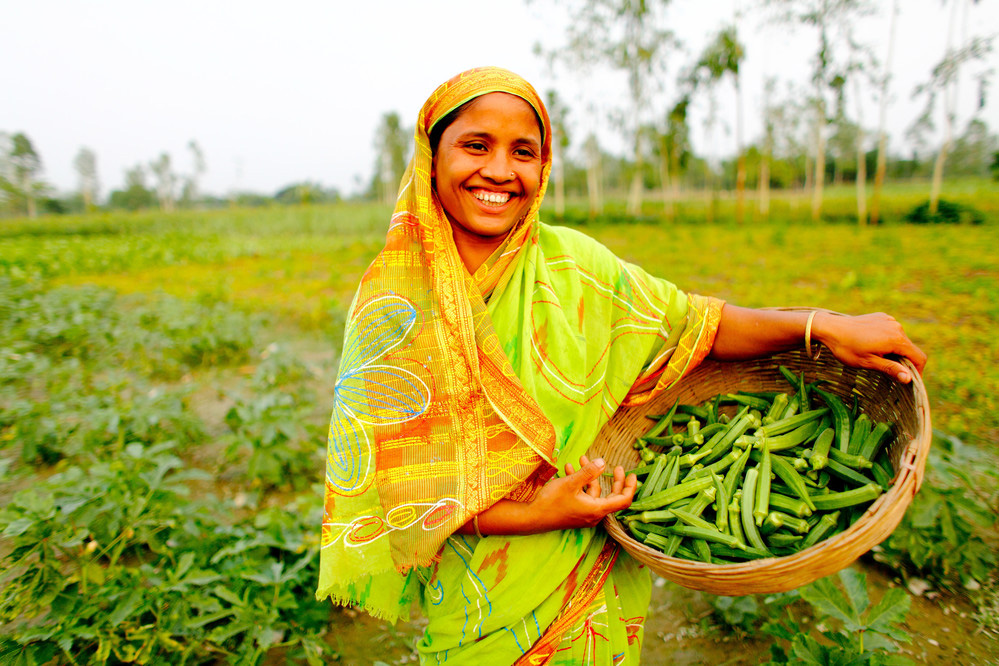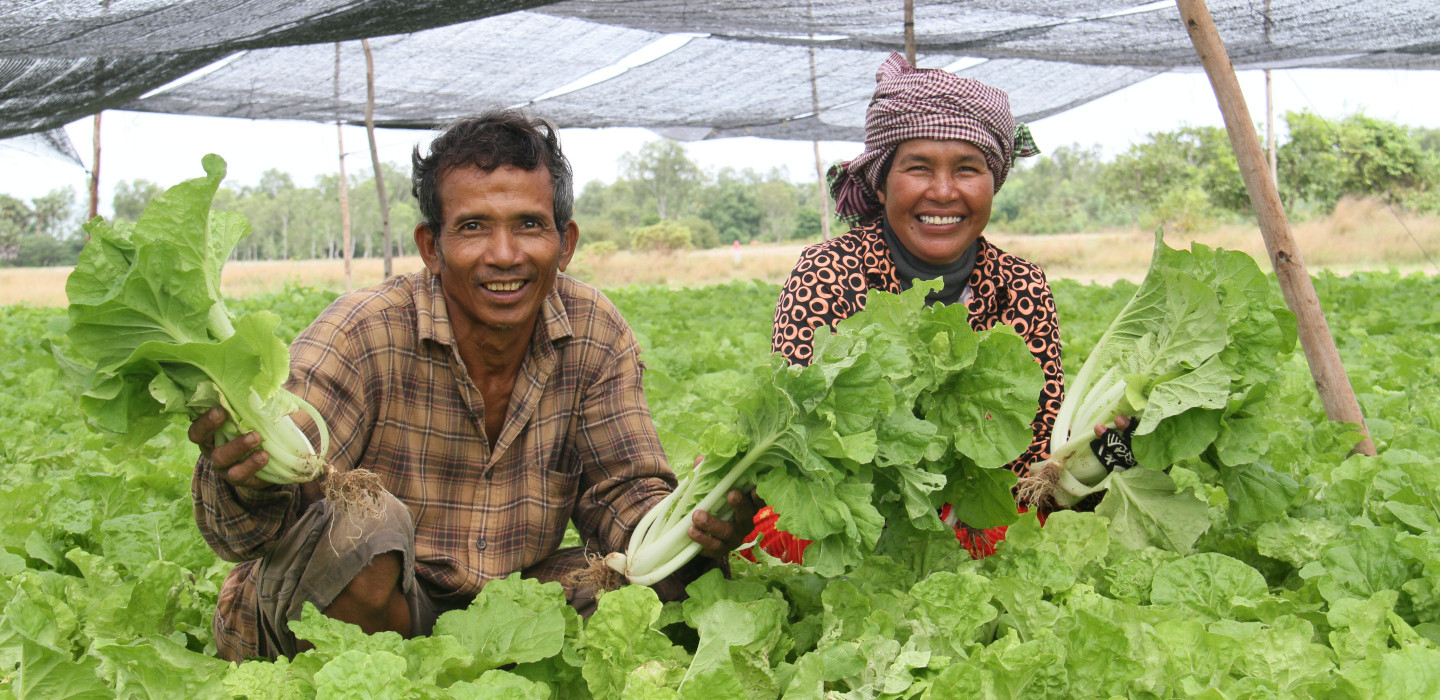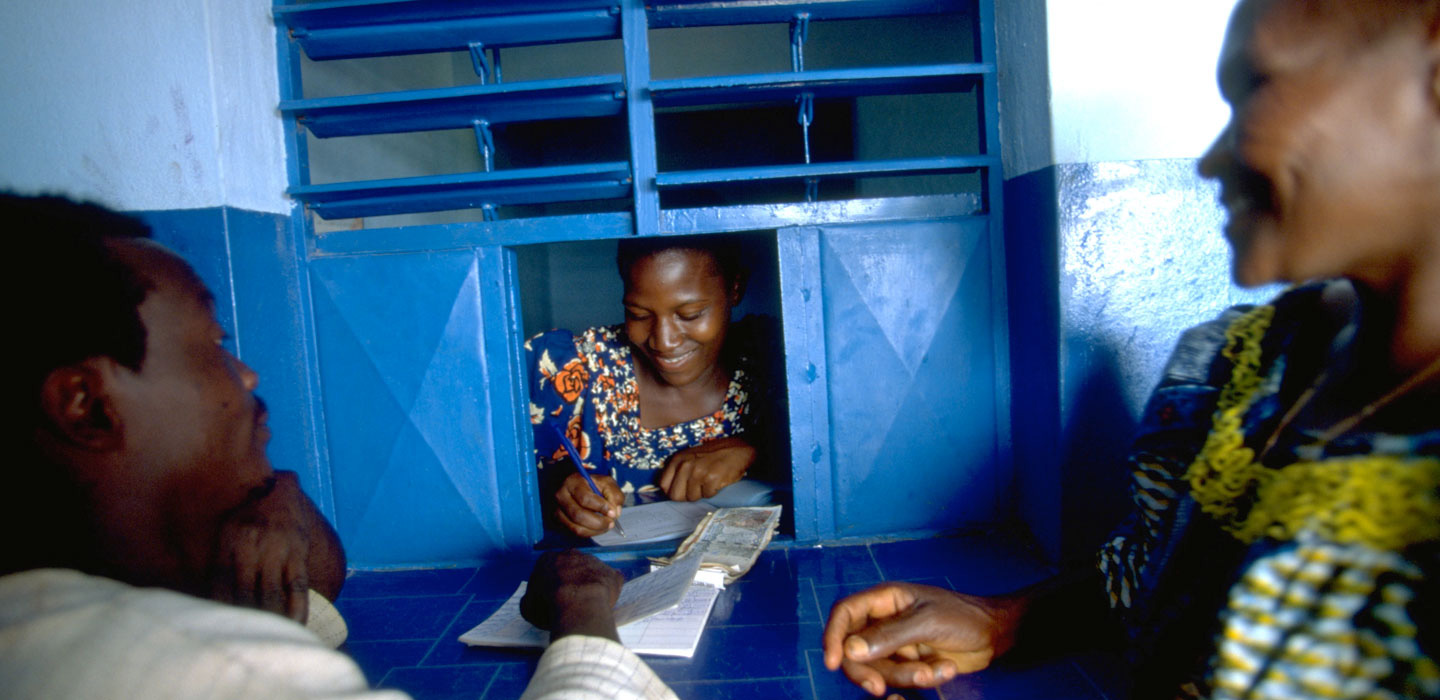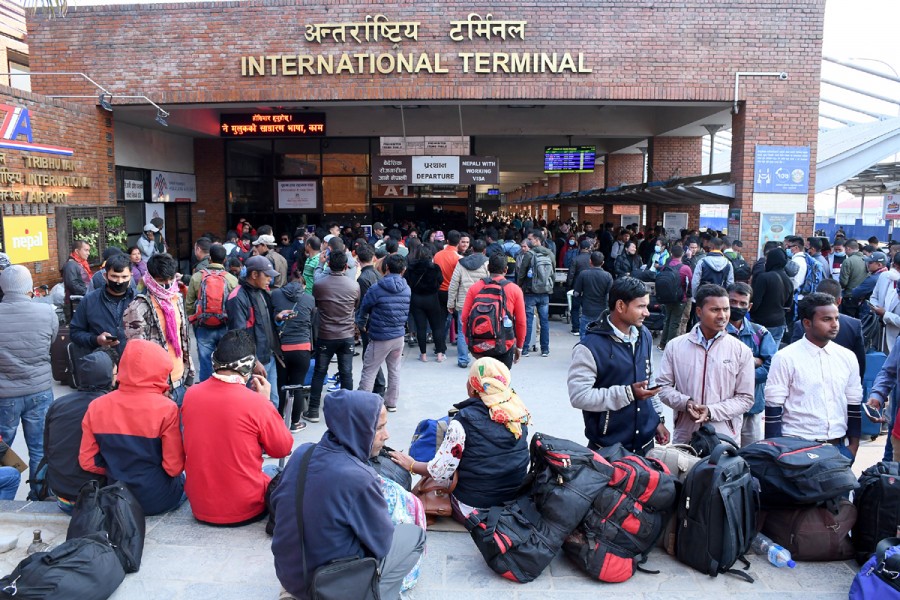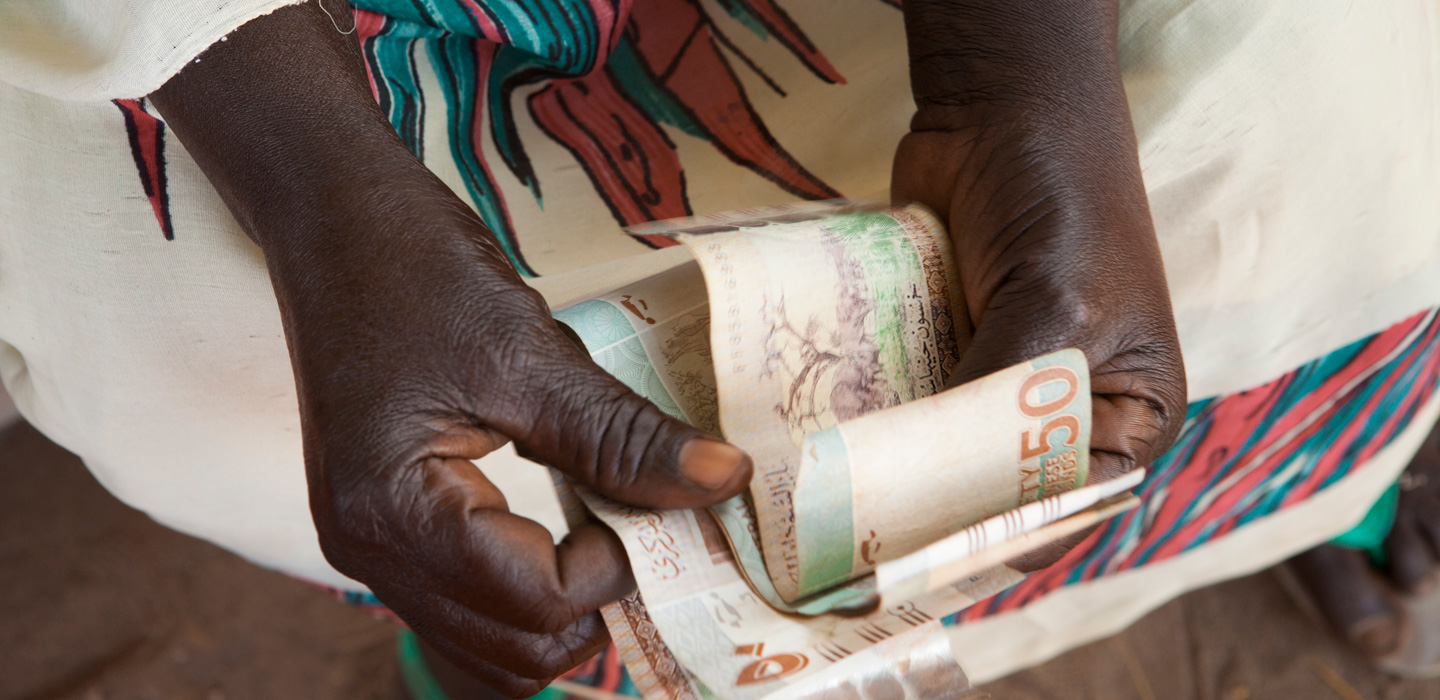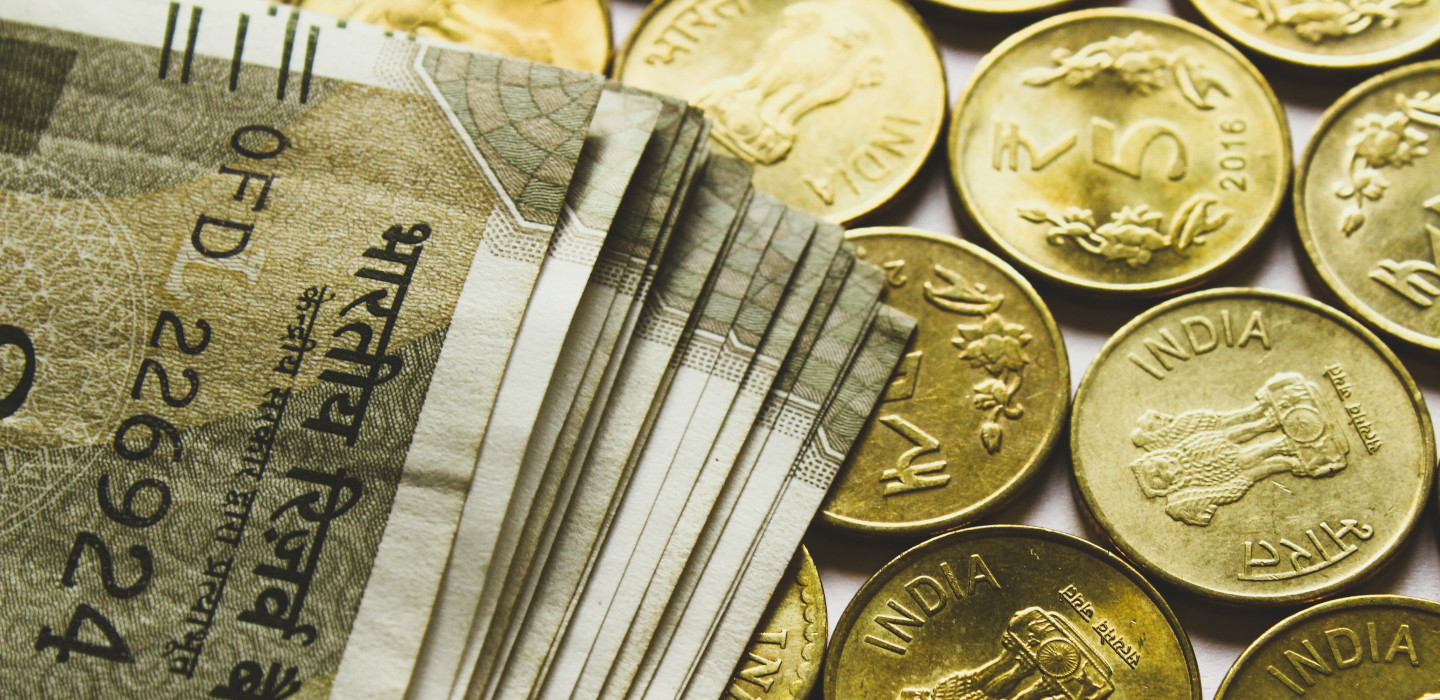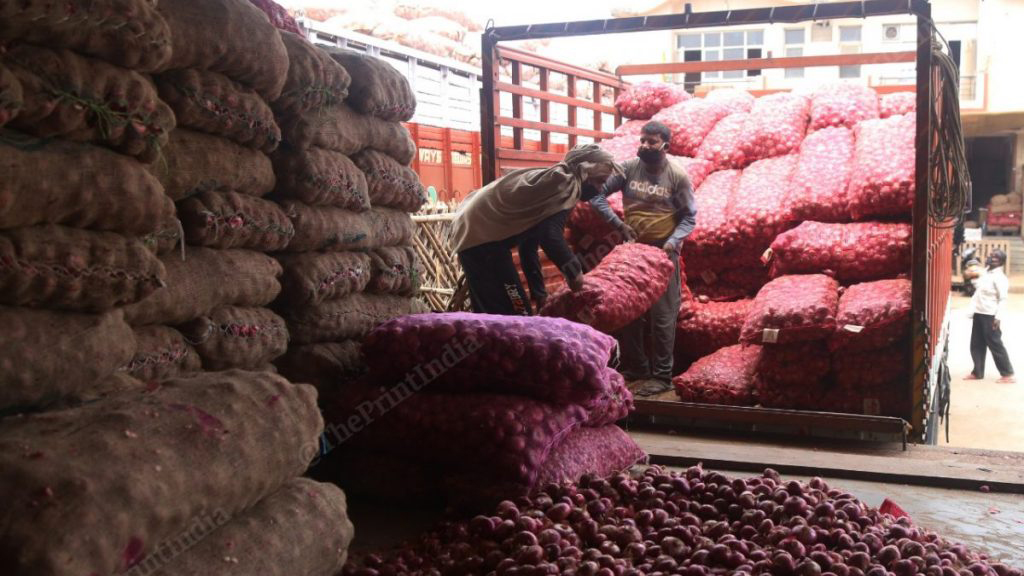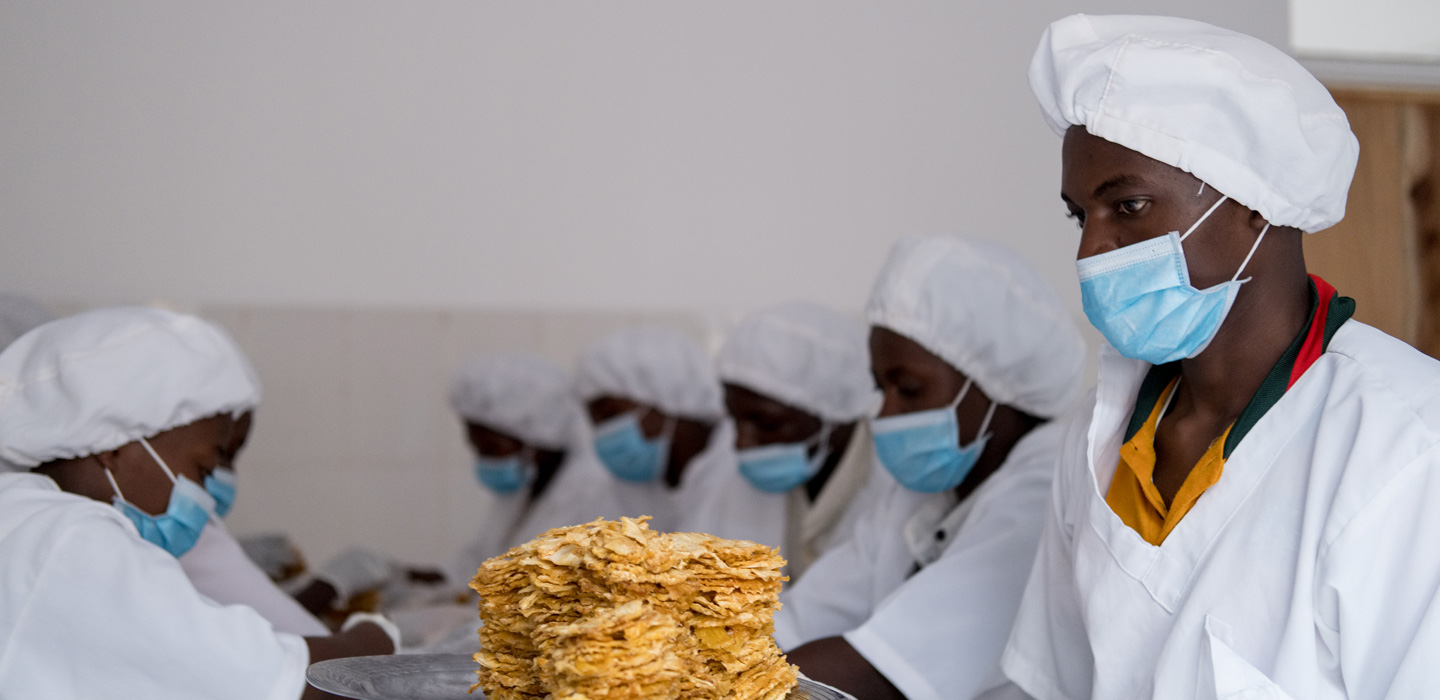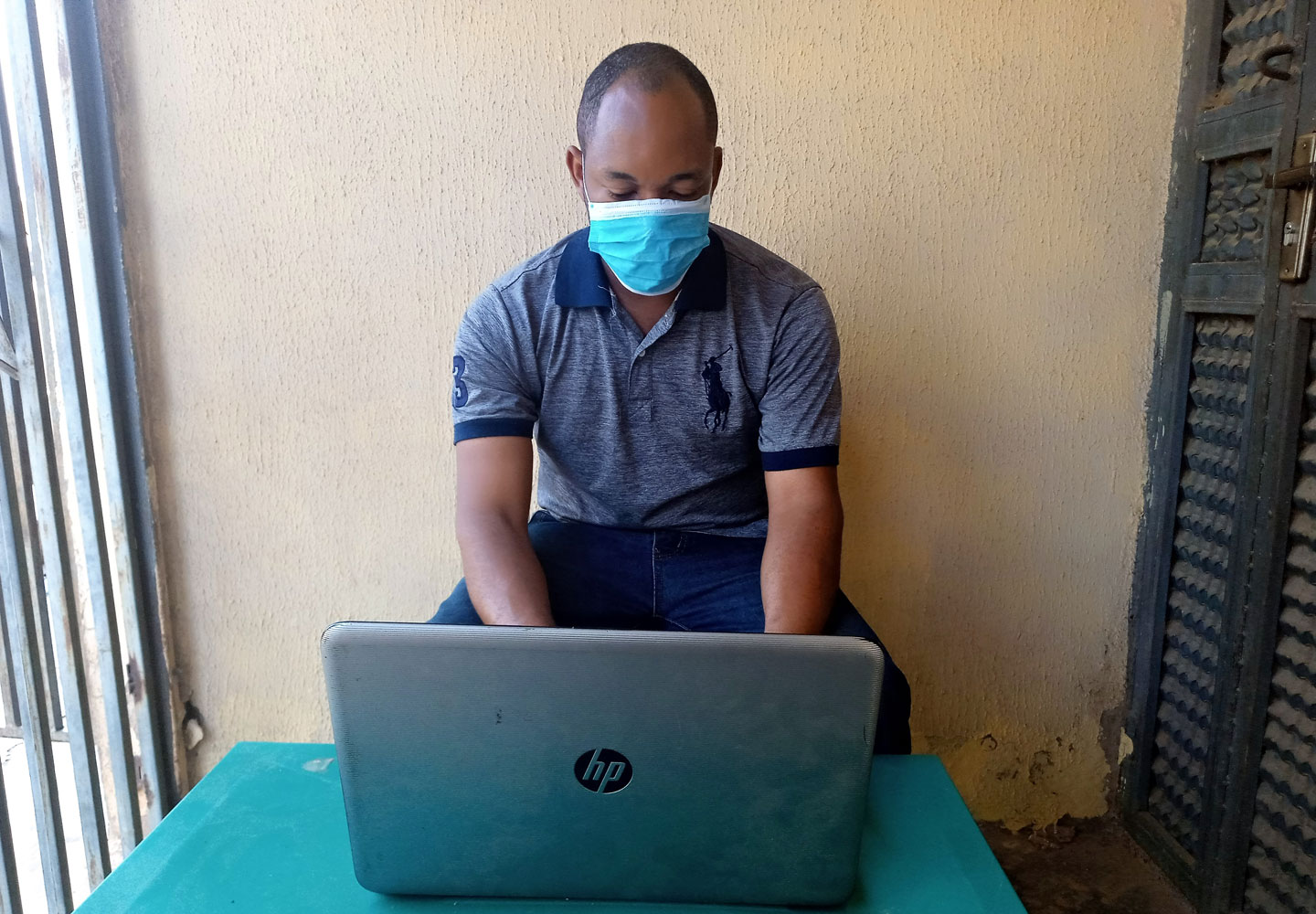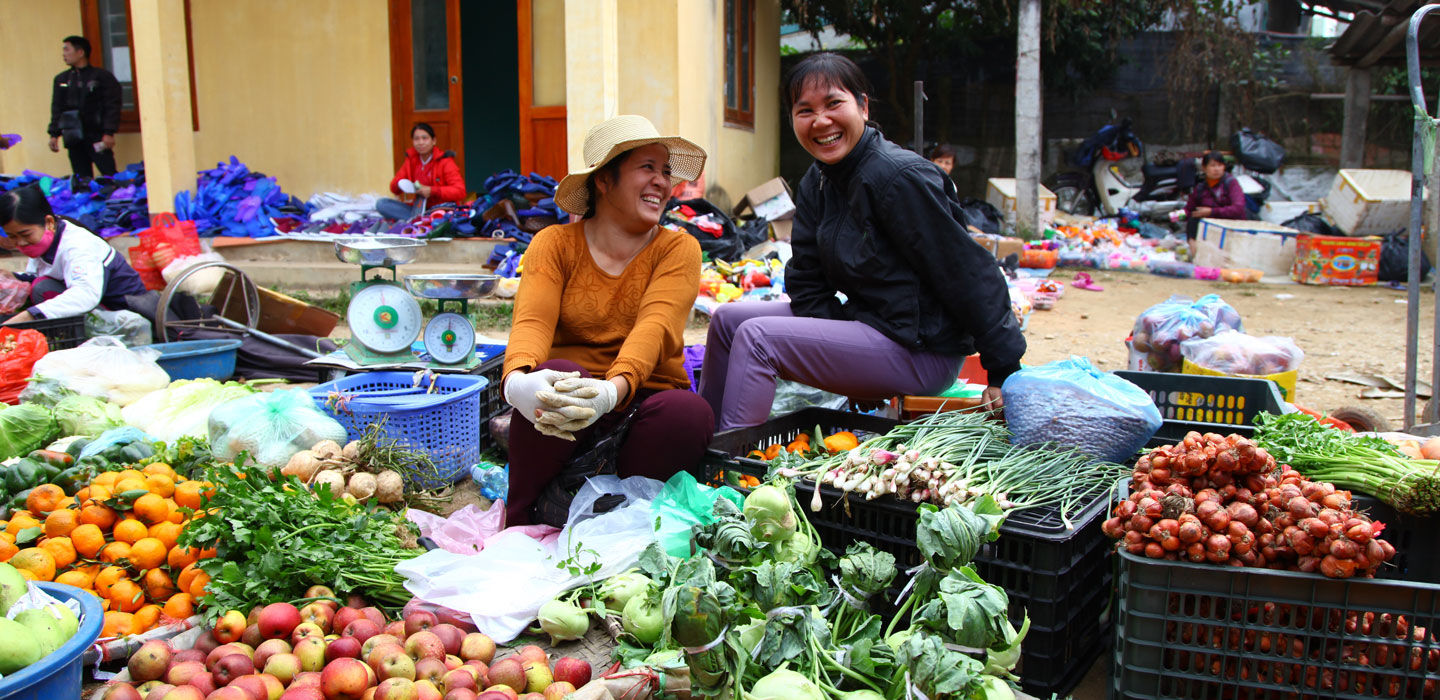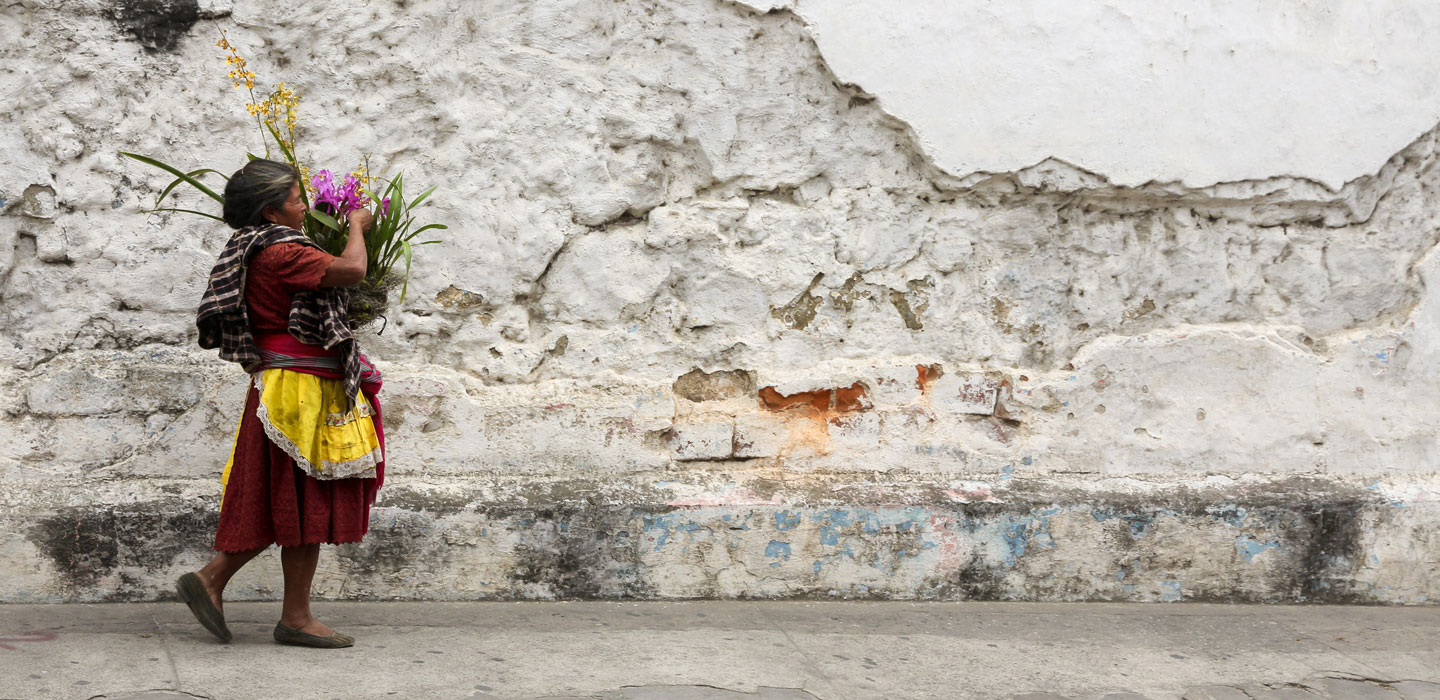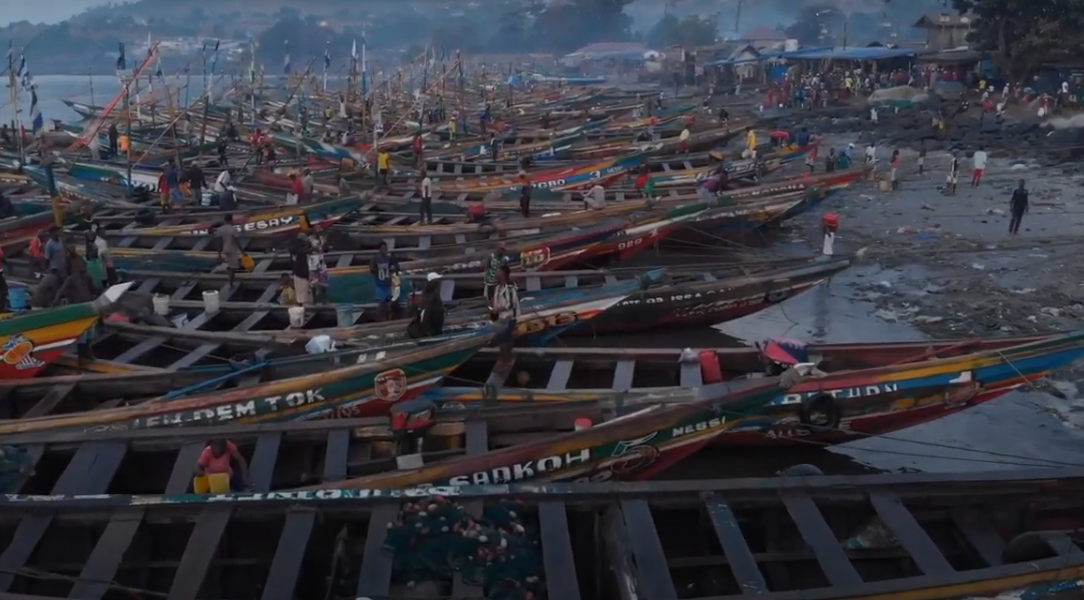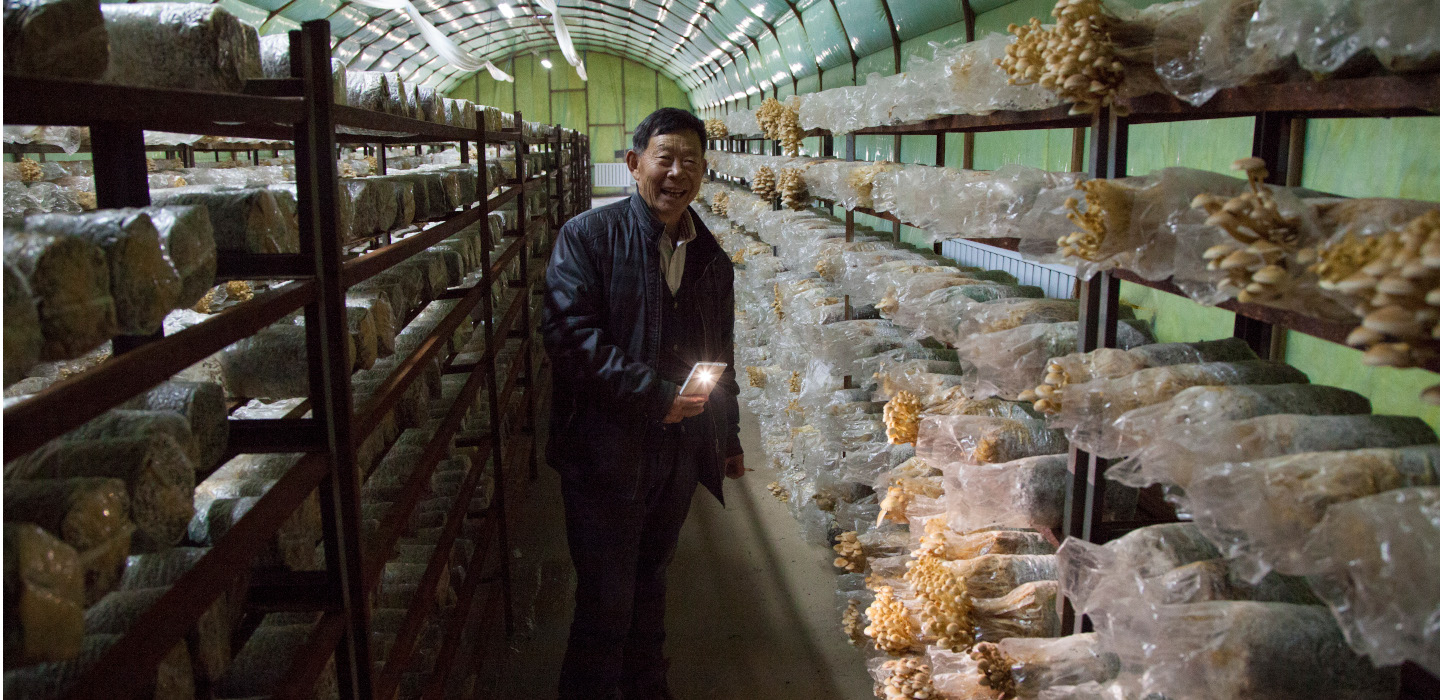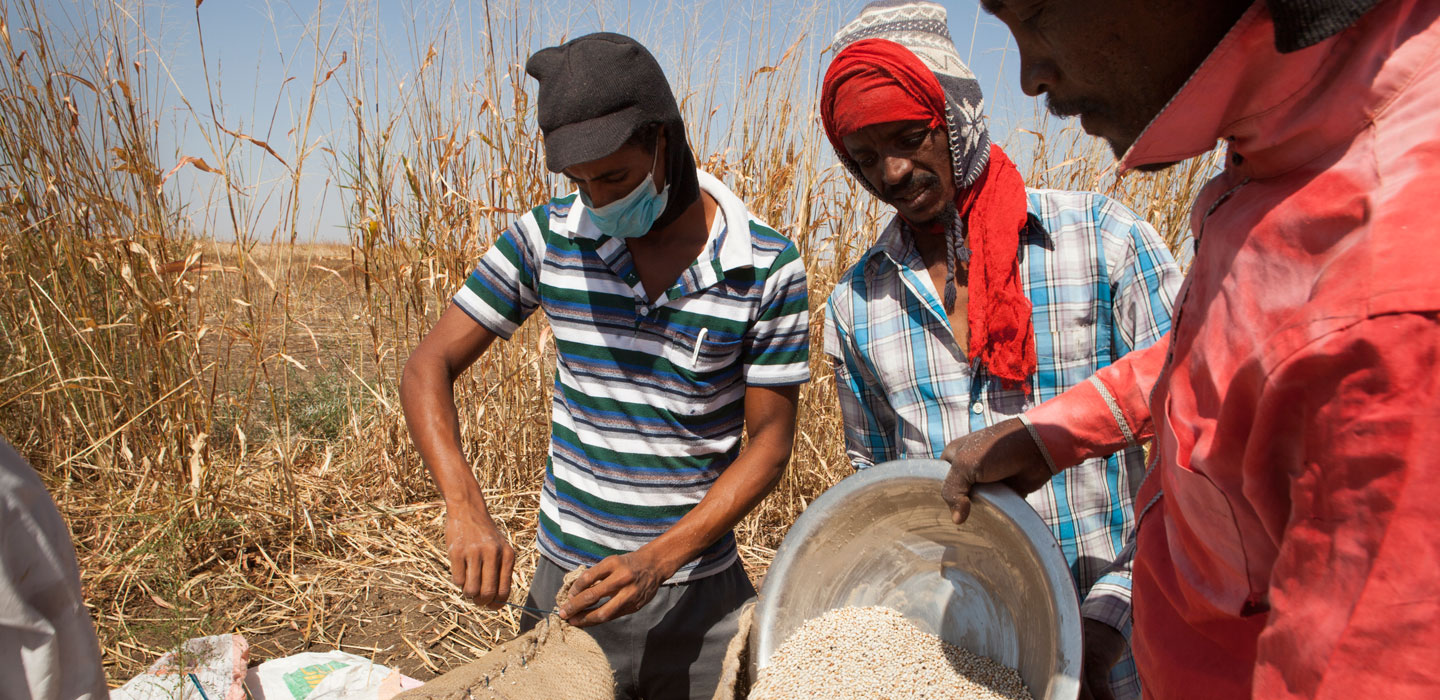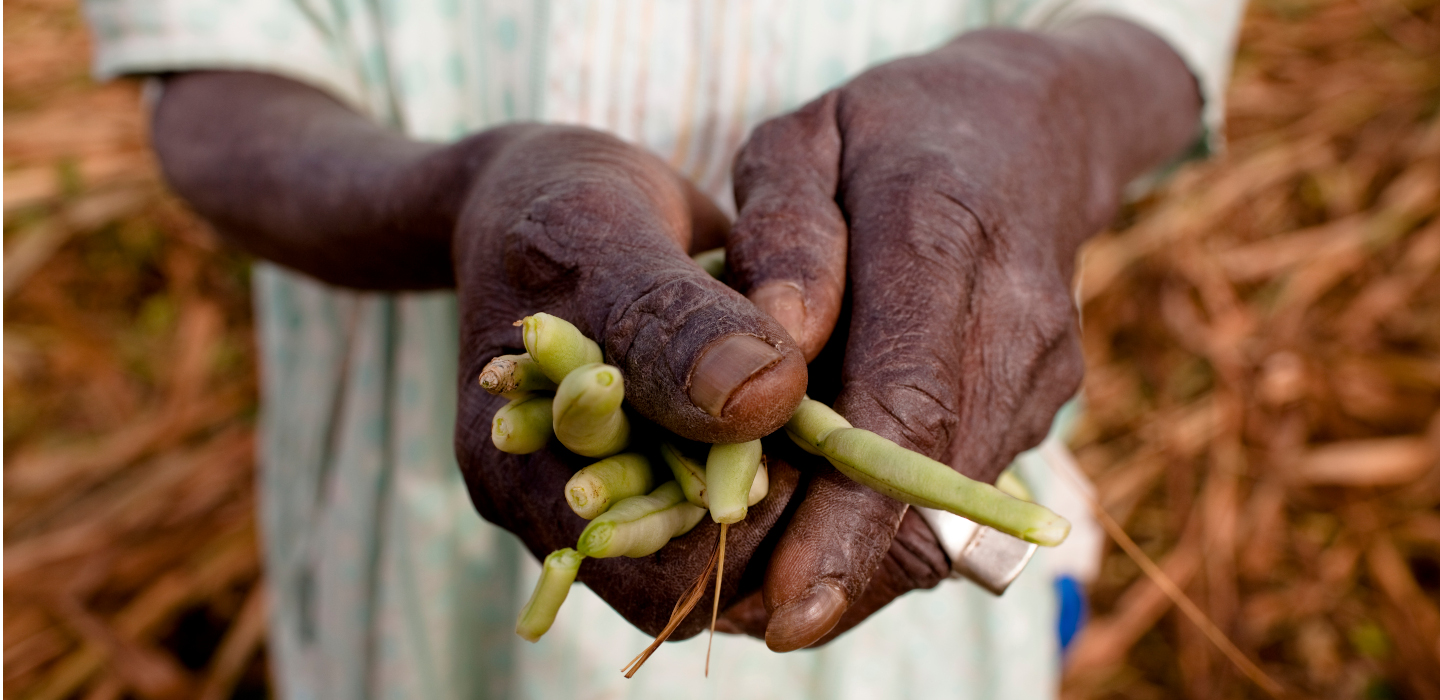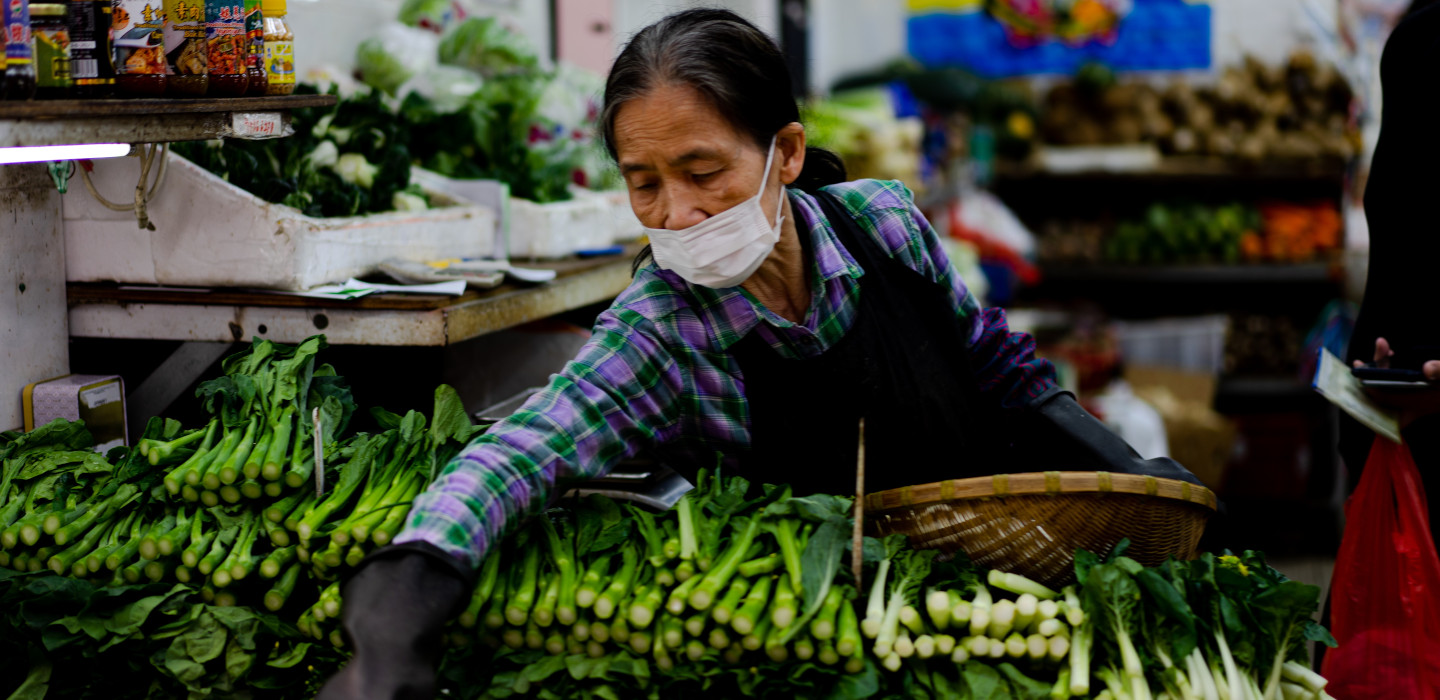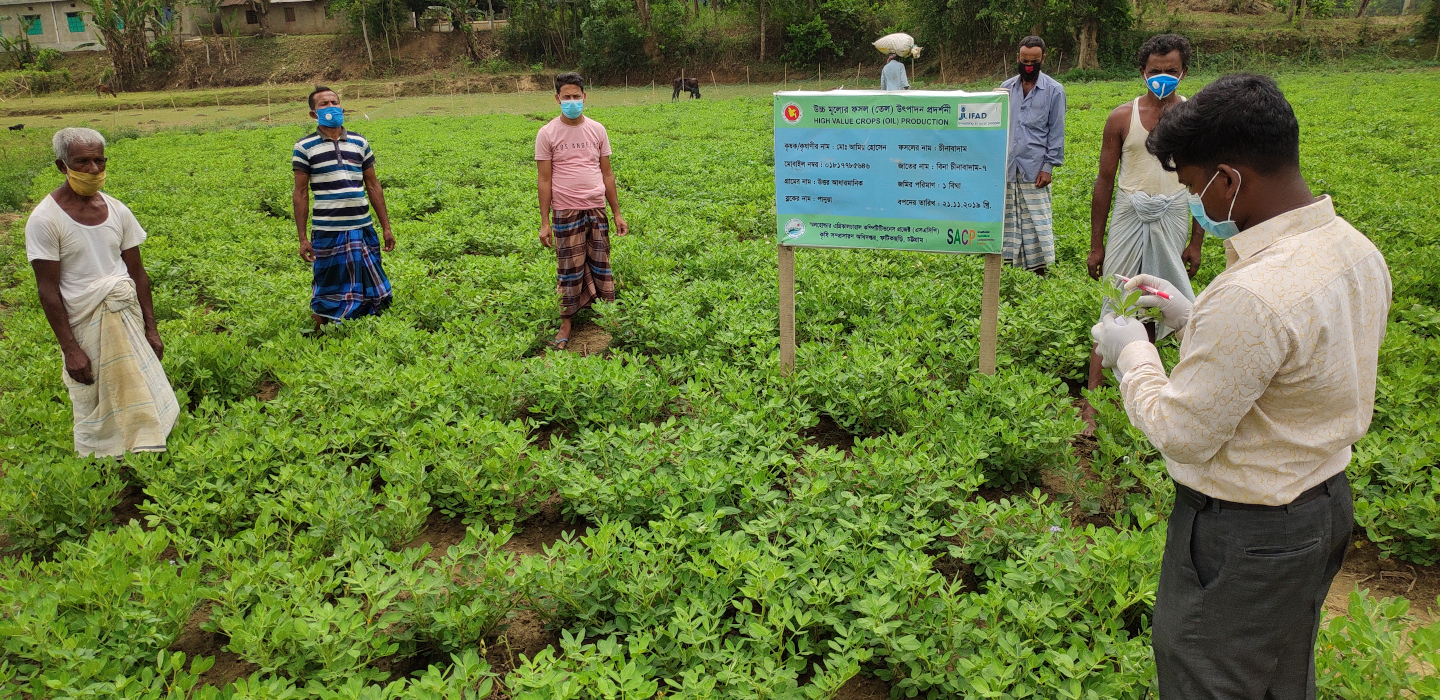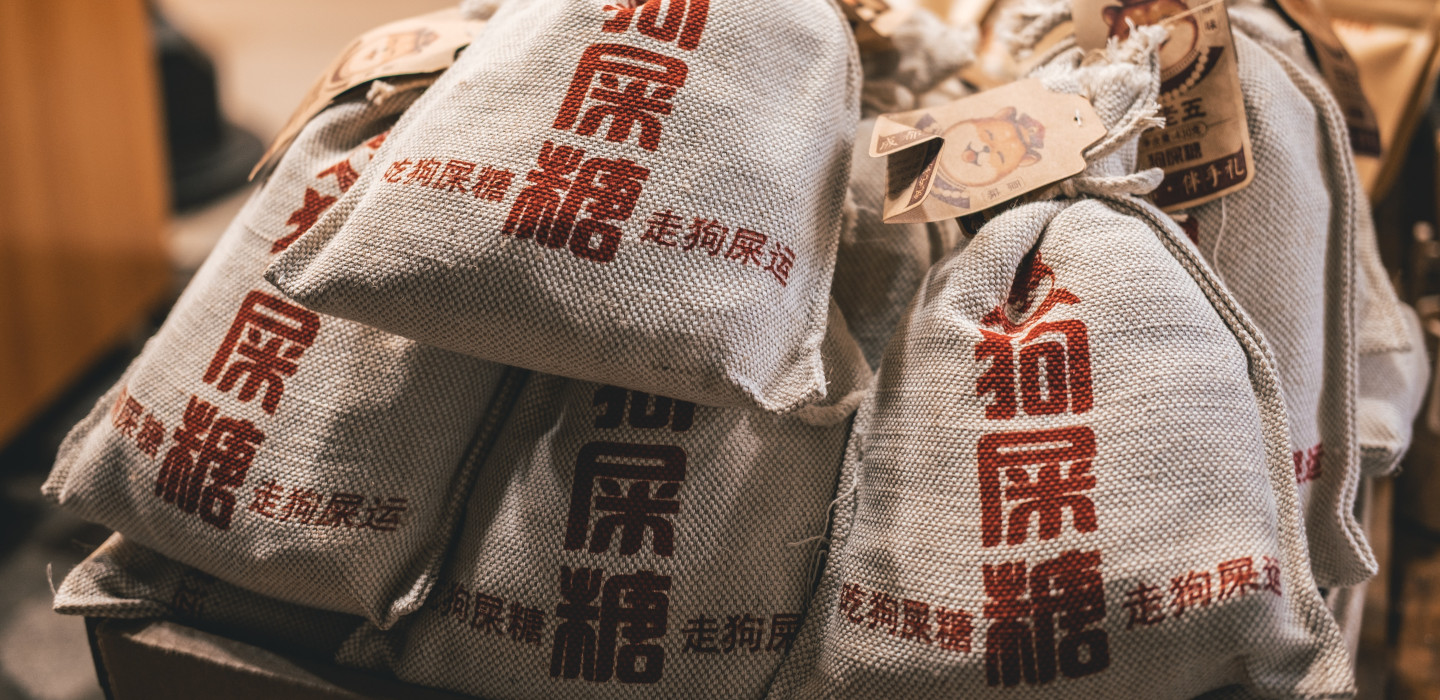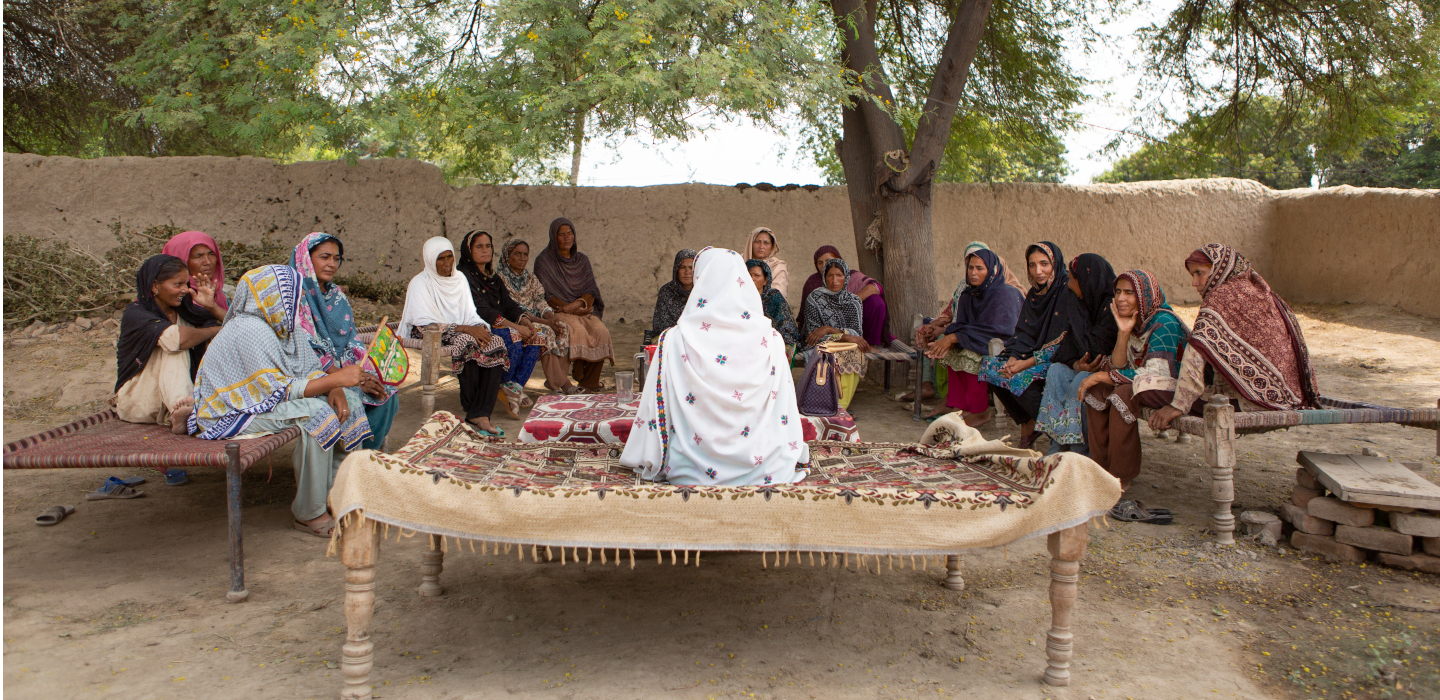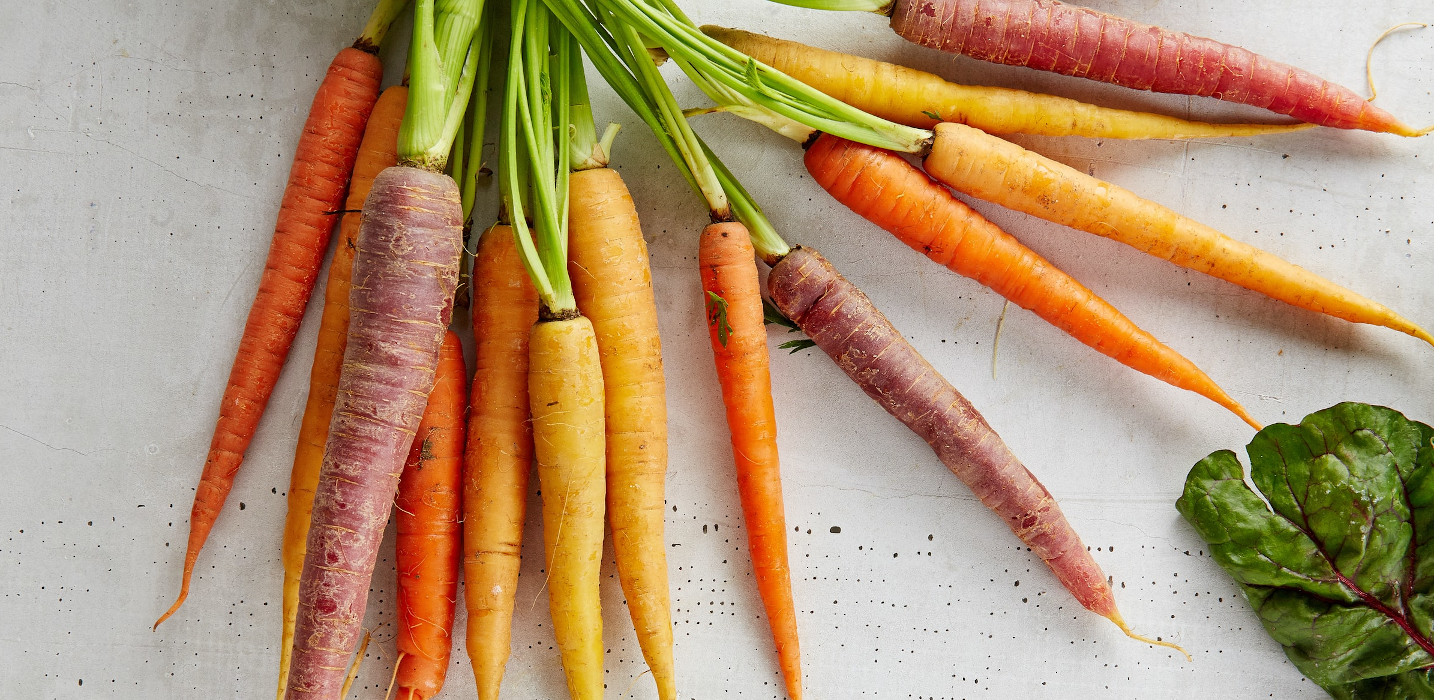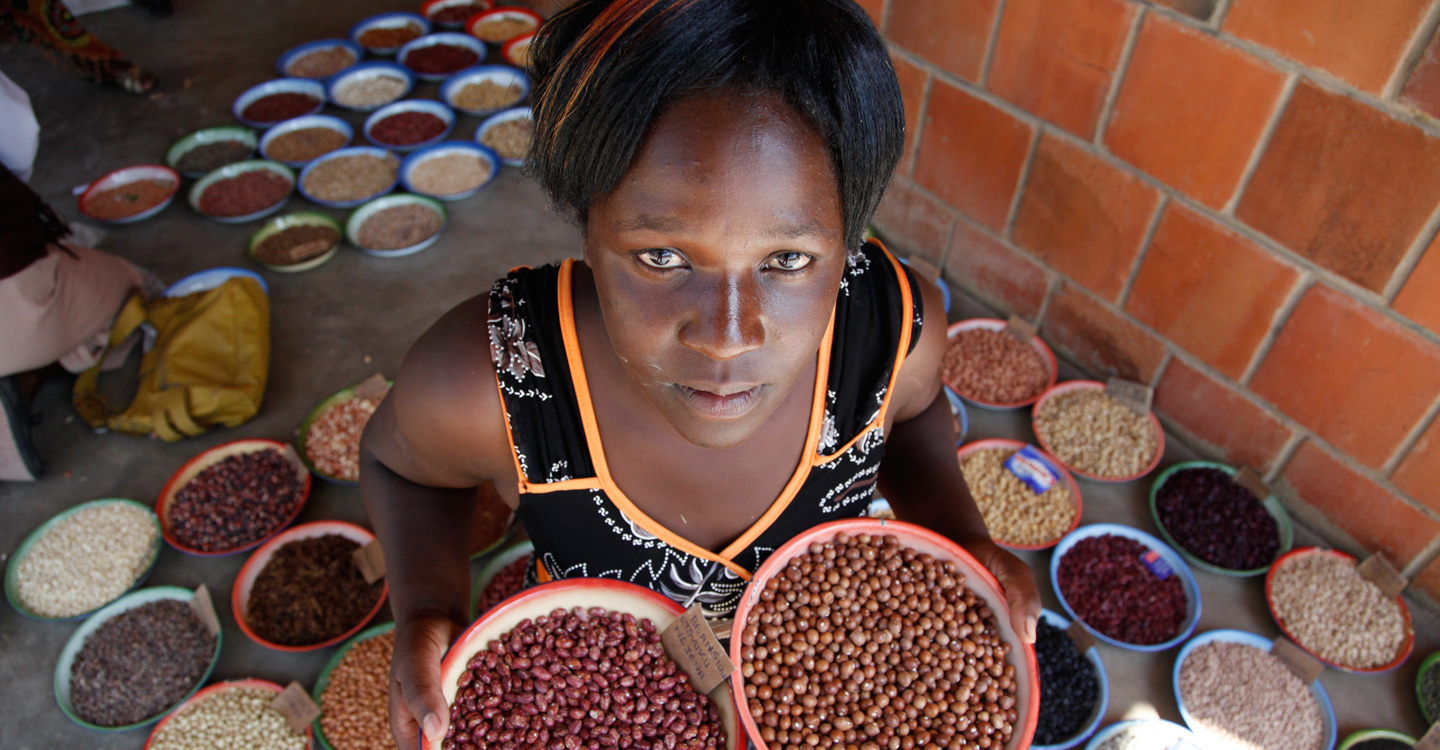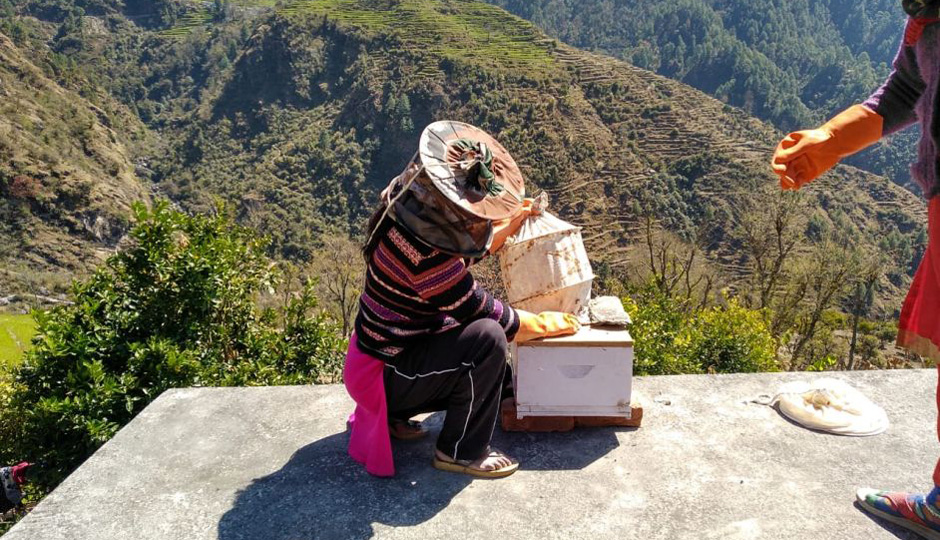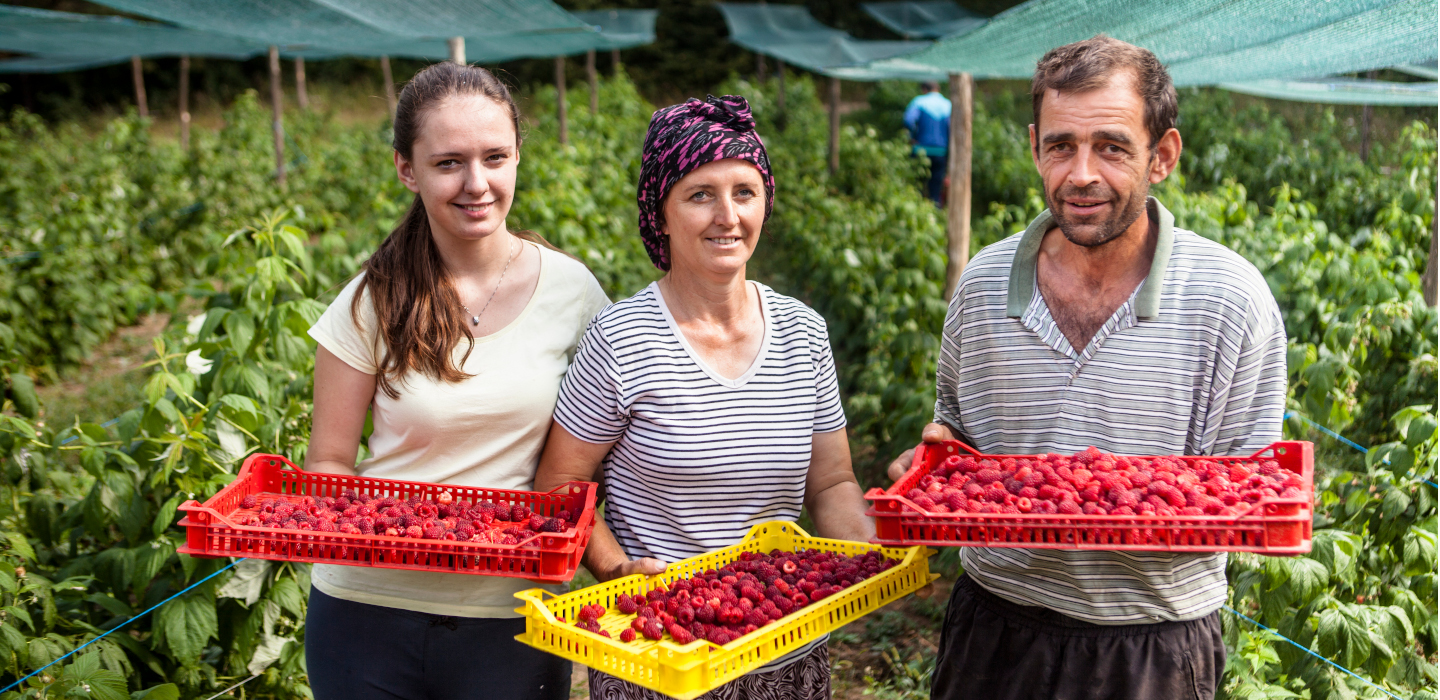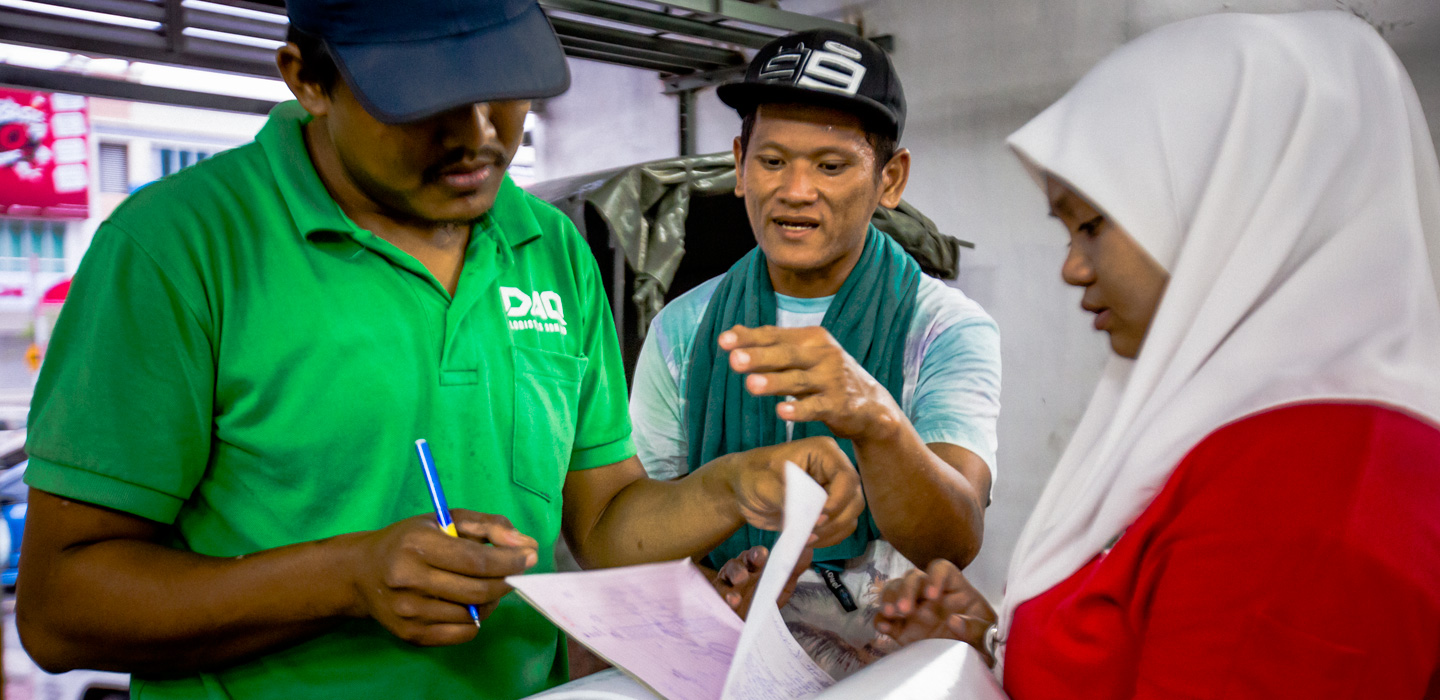Latest
Latest

Latest
Manual Submenu Topics
Search Results Filters
Search Results
Investing in a better future: A new day dawns, and we have reasons for hope
When climate and natural disasters strike, it’s rural people who are worst affected. Investing in their resilience ensures that they not only endure times of crisis, but emerge stronger. Associate Vice-President of Programmes Donal Brown explains how rural communities can change the world for the better.
Sénégal : Le FIDA et le CNCR signent un accord de don pour l’amélioration des revenus des femmes et des jeunes entrepreneurs avicoles villageois
Le FIDA et le Conseil national de concertation et de coopération des ruraux (CNCR) du Sénégal, viennent de signer un Accord de don pour améliorer les revenus des femmes et des jeunes entrepreneurs avicoles villageois ayant subi les conséquences des mesures restrictives prises pour faire face à la pandémie de Covid19.
How smallholder farmers in Madagascar, Burkina Faso and Eswatini endured the coronavirus pandemic
When covid-19 brought the world to a standstill, IFAD helped farmers’ organizations adopt new ways of operating amid a global pandemic.
2022: Resilience in the face of adversity
As we near the end of 2022, IFAD looks back on some of the themes that defined a year of dramatic change.
Rural people in crisis: The latest news from IFAD
Rural people are still paying the highest price for the rise in food, fertilizer and fuel costs. The Crisis Response Initiative was set up as part of IFAD's ongoing efforts to build rural people's resilience to these shocks. Here are selected highlights on the crisis from our teams in the field.
In Sierra Leone, social inclusion that leaves no one behind
In Sierra Leone, IFAD helps persons with disabilities overcome the challenges posed by the COVID-19 pandemic through farming.
Funding resilience in The Gambia
In The Gambia, the second phase of IFAD’s Rural Poor Stimulus Facility helps vulnerable communities get back on their feet after the COVID-19 pandemic.
An old crop for a new crisis: how cassava helped Samoans through the pandemic
Faced with the prospect of food insecurity during the COVID-19 pandemic, Samoans turned to an ancient staple to feed their families and communities.
With the world in firefighting mode, we cannot forget about rural women
As the world faces a myriad of crises, experts fear that the progress rural women and girls have worked so hard for may be reversed. Here is how IFAD is working to prevent this.
Solving a data dilemma in the Solomon Islands
When the Solomon Islands began seeing its first cases of COVID-19 in early 2022, the Ministry of Agriculture and Livestock activated emergency food relief efforts. But after years of neglecting data collection, how do you find and feed people without addresses, street names or house numbers?
How IFAD worked with governments in Asia to build rural resilience during COVID-19
The pandemic pushed up to 80 million people in Asia into extreme poverty. Governments across the region had to respond quickly as incomes fell and food security was threatened. IFAD worked with them to ensure vulnerable rural people got the support they needed.
After the tsunami, home gardens provide fresh food and renewed hope in Tonga
When a massive tsunami devastated low-lying coastal areas in Tonga, local people had to rebuild their lives from scratch. For many, home gardens provided much needed fresh produce, as well as renewed hope for the future.
How over one million small-scale farmers in Pakistan got the information they needed to withstand the COVID crisis
COVID-19 presented new challenges for poor rural farmers in Pakistan. An IFAD-supported project shared personalized advice to farmers via their mobile phones to help overcome the challenges of the pandemic.
Building resilience in the Asia-Pacific region in uncertain times
Just as the shadow of COVID-19 was lifting from many parts of the world, new crises have arisen – and they’re a particularly difficult challenge for poor rural people in developing countries.
In The Gambia, targeted COVID-19 support helps small businesses flourish
Back in early 2020, when the first waves of COVID-19 were spreading around the world, IFAD launched the RPSF as a multi-donor initiative to sustain rural people around the world during the pandemic. With the RPSF’s help, many were able to start small businesses – and today, those businesses are sustaining local economies and building resilience.
Digital Technology and Homeworking help rural women in Guatemala recover from COVID-19
COVID-19 lockdowns meant Juana could no longer go to her job in rural Guatemala. But thanks to a loan from her local rural savings bank and IFAD’s Rural Poor Stimulus Facility, Juana started her own business at home.
From virtual reality to virtual field visits: How IFAD used technology to stay connected to the people we serve during COVID
Two years ago, COVID-19 closures forced us all apart – but the creative use of technology helped keep us together. Today, with tech giants promising to take all of us into the metaverse, IFAD is exploring how cutting-edge technology can help us see the world through each other’s eyes.
IFAD-funded project to develop technological solutions to help smallholder farmers overcome COVID-19 impact in Latin America and the Caribbean
IFAD launched the Innovatech project today, which aims to develop agricultural (AgriTech) and financial (FinTech) digital solutions to facilitate small famers’ access to markets and to financial and non-financial services in Bolivia, El Salvador, Guatemala, Haiti, Honduras and Mexico.
IFAD to provide additional support to mitigate COVID-19 impact in Somalia
A US$ 1.07 million grant agreement between IFAD and the Government of the Federal Republic of Somalia will finance the Resilience Livelihood Action to COVID-19 project (RLAC-19)—a move to strengthen the ability of poor rural people to cope with the effects of the COVID pandemic and threats to their livelihoods.
Solar-powered fridges aid COVID recovery in Djibouti
This year’s COVID-19 lockdowns cut off Djibouti’s fishing community from their markets. But with no way to store fish in the searing heat, many fishers were forced to throw their catch away. Now, thanks to some solar-powered fridges, they’re back on their feet and trading with new customers.
On the banks of the São Francisco, where fishing, tourism and social inclusion converge
Brazil’s São Francisco river is a place of convergences. The river delta, and the stunning tropical forest surrounding it, is home to many different ethnic groups who settled there in search of a fresh start. Plans for a new ecotourism route that would allow visitors to experience the area’s rich culture and traditions were well under way – and then the pandemic struck. Nevertheless, one IFAD-funded project managed to support the region’s artisans and fishers.
The labour market dynamics of COVID-19
Over a year and a half into the COVID-19 pandemic, there’s still a lot to learn about how the labour market in developing countries is reshaping itself – especially in terms of gender dynamics. Our latest study tracks employment trends in Nigeria with both pre- and post-pandemic data.
Support for Syrian herders and farmers to safeguard livelihoods in the face of the COVID-19 crisis
IFAD has contributed a US$544,795 grant to alleviate the pressure of the COVID pandemic on the Syrian rural community.
Gender-focused solutions for the post-COVID return to rural areas
The COVID-19 pandemic has given rise to waves of internal migration as urban workers return to rural areas. IFAD must identify solutions to the challenges this phenomenon has created, and will continue to create, for rural agricultural development. This is especially critical from a gender equity perspective.
Rural Youth Innovation Award honours youth leaders fighting COVID-19
IFAD believes in the tremendous innovative capacity of rural youth – and we take seriously our responsibility to support young people in their constant search for change and innovation. That’s why this year’s Rural Youth Innovation Award in Latin America and the Caribbean, a project financed by the China-IFAD SSTC Facility, focused on initiatives led by young people fighting the pandemic.
Responding to the challenges of a year like no other: IFAD’s 2020 Annual Report
IFAD’s Annual Report provides a concise, compelling and interactive discussion of how we addressed the challenges of the last year.
How can International Financial Institutions invest to ‘’build back better’’?
Given the already-high levels of poverty and vulnerability faced by small-scale rural producers, the pandemic has hit them and their families particularly hard. So, what should be the priorities for organisations, like IFAD, in the coming years?
South Sudan small-scale producers receive support from IFAD to safeguard their livelihoods in the face of the COVID-19 crisis
IFAD will provide much needed funding to assist 23,900 vulnerable rural people (4,780 households) in the Republic of South Sudan. The IFAD grant will help reduce the impact of the COVID-19 pandemic on their farming activities and safeguard their livelihoods.
Digital information service helps small-scale farmers respond to COVID-19
The Kenya National Farmers’ Federation is implementing a mobile information platform to serve its members and other Kenyan farmers.
Small-scale Farmers Developing Resilience to COVID-19 - Episode 18
In this episode, we bring you the latest on how small-scale farmers are dealing with the COVID-19 crisis.
New investment in digital solutions will connect Latin American farmers to markets and banking services in response to COVID-19 restrictions
More than 10,000 family farmers in Latin America will soon have access to digital solutions to overcome the obstacles they face in accessing markets and financing due to the consequences of the COVID-19 pandemic.
Targeting hunger by transforming food system through South-South Cooperation
Through South-South Cooperation, IFAD is tapping into existing expertise, skills, capacities, and solutions to address the effects of COVID-19 pandemic and other challenges on rural populations.
What impact will the COVID-19 pandemic and the global economic downturn have on world food security?
In 2021, the impact of the epidemic and the global economic recession will have an impact on world food security. After the epidemic, what problems will global food security face and how to deal with it?
Livelihood-recovery project directly supporting Cambodia’s most vulnerable and those impacted by COVID-19 to launch tomorrow
The Ministry of Agriculture, Forestry and Fisheries (MAFF) and FAO will sign a project agreement tomorrow to directly support 10,000 of the most vulnerable people affected by COVID-19 in Siem Reap and Banteay Meanchey Province to restore their livelihoods and improve their resilience to the crisis.
Countries worldwide are stepping up to support rural farmers living in poverty
The COVID-19 pandemic has been hard on smallholder farmers in low-income countries who have struggled to access to markets, labourers, technology, and key resources amid physical distancing mandates, shifting government funding priorities, and plunging income levels.
Invitation to Indigenous Peoples’ Forum at IFAD: How indigenous food systems can help build resilience to impacts of the COVID-19 pandemic
This year, representatives from Indigenous Peoples’ groups from around 57 countries will meet with development organisations and governments to discuss ways to address challenges and opportunities.
Help for Nigerian small-scale farmers to improve food security and combat poverty in the face of COVID-19
The Federal Government of Nigeria and IFAD are working together to lessen the impact of the Covid-19 pandemic on small-scale farmers’ activities and domestic food supply in northeastern states of Nigeria.
Unless we urgently rethink agriculture, more diseases will jump species
As the world grapples with the current pandemic, other threats, not least our climate emergency, have not gone away. The science is clear that without urgent global action, the climate and broader environmental crisis could be worse.
Fai fatongia: One island’s path to food security, COVID mitigation and climate resilience
In the Kingdom of Tonga, fai fatongia rules the day. Under this principle, which translates to “fulfilling one’s responsibility,” Tongans traditionally put the collective good first and their individual needs second.
Digital agriculture: key to helping small-scale producers overcome COVID-19 challenges
As we approach the first anniversary of the beginning of the COVID-19 pandemic, it’s an important moment to take stock on the impact of the pandemic, and to reflect on what we have learned, and what we can do better going forward.
A year in review: Nurturing resilient rural communities in a time of change
2020 has been a tumultuous year. The COVID-19 pandemic has affected everyone across the world – and meanwhile, the other challenges faced by rural people across the globe haven’t gone away.
New Frontiers in Sustainable Farming – Episode 15
In this episode, we say goodbye to a year that’s been full of uncertainty and change, but also adaptation, innovation and improvement.
IFAD joins with partners to build resilience and boost development in the Sahel
IFAD is joining with FAO and WFP - as well as the G5 Sahel and the Green Climate Fund to revitalize economic activities and food systems in the Group of Five Sahel countries and in the Republic of Senegal.
Sicurezza alimentare e Covid-19, come proteggere le filiere?
La vice Ministra degli Esteri Emanuela Del Re ed esperti italiani e internazionali ne discutono in un seminario online aperto ai giornalisti.
Dutch funding to IFAD will help avert COVID-19 food crisis
As more people spiral into hunger and poverty due to the COVID-19 pandemic, the Netherlands has stepped up its funding to IFAD to help avert a rural food crisis.
Historic statement by Public Development Banks signals greater commitment to tackle global hunger and poverty
For the first time in history, today 13 Public Development Banks (PDBs) made a joint commitment to strengthen investments in food and agriculture in the context of a global pandemic and a changing climate.
Recovery, Rebuilding, Resilience Under COVID-19 – Episode 13
In this month’s programme, we have the latest on COVID-19 from IFAD’s Associate Vice-President Donal Brown; news on nutrition from the Lao People’s Democratic Republic; and a report on getting youth issues right in development activities.
Idris and Sabrina Elba call for investments in rural agriculture to fight rising hunger
For Idris Elba, returning to Sierra Leone late last year was about two things: reconnecting with his roots and learning about the challenges facing the country where his father was born, so that he could become a better advocate for its people
“Cashroots” movement builds community resilience in the Solomon Islands
Simon Chottu works hard and plays hard. An events manager by trade, he’s spent the last few years hosting hip-hop parties and organizing music events and competitions across the South Pacific.
Governments need to halt the disproportionate impact of COVID-19 on rural women, says IFAD President on International Day of Rural Women
Our food supply is at risk if we don’t start prioritizing rural women during this pandemic, said Gilbert F. Houngbo, President of IFAD in a strong call to governments to increase their investments in rural women.
Rural women: The key to building back better in a post-COVID world
In times of crisis, rural women are the key that holds families and rural communities together – and in times like these, they need our support more than ever.
Le FIDA et les États arabes examinent les moyens d’enrayer le repli de la sécurité alimentaire
Le FIDA organisera aujourd’hui une concertation en ligne avec les représentants de pays arabes pour examiner les moyens de mettre fin à la montée de l’insécurité alimentaire et de la pauvreté dans la région.
Keeping food on the table and preventing food loss when business is not as usual
We are living in difficult times. Due to the COVID-19 pandemic and all the fallout that has ensued, nothing is quite as easy as it was – unless, of course, you can do it from the comfort of your home, armed with a smartphone and a good internet connection.
Fighting food waste in China: Local efforts, global effects
Reflecting on the fundamental role that sustainable food production and consumption plays in promoting food security and sustainable use of terrestrial ecosystems.
Building Back Better: Investing In Farming Under COVID-19 – Episode 12
We begin this month’s programme with a conversation with IFAD's Associate Vice President Marie Haga about how vital it is for governments to invest in rural communities in developing countries, even during COVID-19.
The role of South-South and Triangular Cooperation in transforming food systems within the context of COVID-19
On 16 September, the United Nations Rome-based agencies − FAO, IFAD and WFP − celebrated the 2020 UN Day for South-South Cooperation with a virtual event hosted by IFAD.
IFAD country programmes adapt to the COVID-19 crisis: Updates from the Asia-Pacific region
The scale of the challenge has become ever more daunting across the region.
Sweden commits funds to IFAD to help avert COVID-19 food crisis
Sweden, through Sida, has pledged funds to help avert a potential food crisis in some of the world’s most vulnerable rural communities in the wake of COVID-19, IFAD announced today.
China-IFAD South-South and Triangular Cooperation Facility: Third Call for Proposals
The Facility will support the generation and exchange of innovative solutions, approaches and methodologies that can be of value in the post-COVID-19 recovery period.
Holding on: IFAD-supported programme sustains assets – and rural livelihoods
The restrictions put in place to contain the spread of COVID-19 in Pakistan were designed to keep the population safe and healthy, but have spelled severe losses for many rural businesses.
Coping with COVID-19: Building Farmers’ Resilience - Episode 11
As the COVID-19 pandemic continues on, many people around the world, including small-scale farmers, are learning how to cope with its various effects.
Mobile phones to help 1.7 million small-scale farmers increase production during COVID-19 economic slowdown
Some 1.7 million small-scale farmers in Kenya, Nigeria and Pakistan will soon receive personalized agricultural advice through their mobile phones as a means to improve their incomes, food security and resilience to economic shocks caused by COVID-19, the International Fund for Agricultural Development (IFAD) announced today.
Shining the development spotlight on youth
As a result of the pandemic, the equivalent of 400 million full-time jobs have already been lost worldwide, and a further 71 million to 100 million people could consequently be pushed into extreme poverty.
Indigenous youth in agriculture during COVID-19
The COVID-19 pandemic has forced many people to re-examine everything: their priorities, their jobs, even their roles in society.
Smartphones keep track of IFAD projects’ achievements and challenges in Brazil during COVID-19
For all the chaos they bring, crises also have a way of giving birth to unexpected opportunities. One way they do this is by urging people to develop new tools to help them resist disaster.
Un total de 25 organizaciones impulsan una campaña para empoderar a las mujeres rurales, indígenas y afrodescendientes frente a la pandemia de COVID-19
58 millones de mujeres viven en zonas rurales de América Latina y el Caribe; una parte importante de ellas juega un rol central en la producción y abastecimiento de alimentos
Keeping Farmers in Focus in a COVID-19 World - Episode 10
In this month’s programme, we’re keeping farmers in focus. We’ve got the latest on how farming communities are coping with the COVID-19 crisis.
Social media helps young rural Kenyan entrepreneurs battle the COVID-19 shutdown
Until COVID-19 hit in March, the G-Star Youth Group’s banana processing factory was buzzing with activity.
Indigenous knowledge – and resilience – in a COVID-19 world
It is increasingly clear that human health and our relationship with nature are inescapably intertwined. This holds true across many dimensions of health, including the potential for the transmission of disease – just as we are seeing with the current COVID-19 pandemic.
The Democratic Republic of the Congo and IFAD partner for better nutrition and resilience for small-scale farmers facing COVID-19
The International Fund for Agricultural Development (IFAD) today announced support for a new programme in the Democratic Republic of the Congo (DRC) to reduce poverty, increase productivity and incomes, improve food and nutrition security, and build the resilience of more than 410,000 small-scale farmers households.
Peru: New IFAD-funded project to help family farmers to increase productivity and recover from COVID-19
The Government of Peru and IFAD signed a financing agreement today for a new project to help family farmers increase their competitiveness and resilience, and to recover from the COVID-19 impact.
Stepping up rural finance to support smallholder farmers in Zambia
The COVID-19 pandemic is creating disruption - but sometimes offers opportunities for innovative solutions for rural farmers.
Looking inward: I-Kiribati fight a double health crisis
COVID-19 is not the only health crisis threatening to devastate the population of Kiribati. Cases of diet-related non-communicable diseases (NCDs) have tripled between 2005 and 2010.
Catching up with Recipes for Change Chef Lance Seeto
Chef Lance Seeto is an icon of South Pacific cuisine. He’s also been a supporter of IFAD’s Recipes for Change campaign for more than five years now.
Young People in Agriculture – Before, During and After COVID-19 - Episode 9
IFAD is helping young people in agriculture evaluate the COVID-19 crisis and build their resilience for the future. In this episode, we hear from nine different voices on this important topic.
Never let a good crisis go to waste
Small-scale farmers face multiple challenges in Cambodia - with limited access to credit and vulnerability to climate change.
On International Day of Family Remittances, IFAD calls for remittance service providers to be declared essential businesses in times of crisis
With the significant decline in money sent home by migrants due to the impacts of the COVID-19 pandemic,IFAD today called for governments across the world to declare remittance service providers essential businesses in times of crisis.
Coming back home: The road ahead for migrant returnees in Nepal
Migrants are essential workers; they contribute to the economy of the places they go and, through remittances, to their communities back home.
African migrants’ family remittances put to the test
In April, the World Bank projected a sharp decline of about 20 per cent in global remittances as a result of the COVID-19 pandemic and shutdown.
Canada is first to commit funds to IFAD facility created to help avert food crisis
Canada announced today that it will be the first country to pledge funds to a new facility set up by the IFAD to help prevent a food crisis in some of the world’s poorest and most marginalized rural communities in the wake of COVID-19.
COVID-19: The decline of global remittances puts rural families at risk
The economic impact of the COVID-19 pandemic has led to the loss of millions of jobs in the developed and developing world.
From Meghalaya to Jharkhand, how India is ensuring agri supply chains are not disrupted
In a world living with Covid-19, it is clear that supply chains and logistics should be simple and easy to manage. And that’s what several Indian states are doing.
Keeping exports flowing: Saving development gains in Rwanda
When exports of dried pineapple resumed at the beginning of May, after the lockdown, Jean Damascène Hakuzimana, President of the Tuzamurane farmers’ cooperative, was relieved.
Maintaining critical extension services for smallholders during COVID-19
Agricultural extension services play a fundamental role in building producers’ capacities to maintain good agricultural practices.
Why do wet markets matter?
Since the COVID-19 virus outbreak, much information and misinformation has been circulated about wet markets and an international rallying cry has been made for wet markets to be better regulated or even closed down.
Building up family farmers’ resilience through nature-based solutions in Latin America and the Caribbean
Resilience has become the talk of the town in the development community.
Sierra Leone: Recovering from a pandemic
In 2014, the people of Sierra Leone faced a seemingly unstoppable virus and a catastrophic outbreak, leading to strict precautionary measures, quarantine and fear.
The impact of COVID-19 on smallholders in China
One emerging lesson from the pandemic is that those who are already vulnerable are likely to be the most severely impacted.
What’s needed to protect food security in Africa during COVID-19
In most of Africa, people are more likely to die from starvation caused by the economic fallout from the pandemic than from COVID-19 itself.
Mitigating the impact of COVID-19 on small-scale agriculture in The Gambia
The COVID-19 pandemic has shown us just how vulnerable agricultural value chains are to external shocks – and how much more we need to do to build the sector’s resilience.
Protecting health and protecting livelihoods: a delicate balance in the era of COVID-19
Development encompasses a wide range of actions that enables people, communities and nations to thrive even after projects have ended.
Long-term development supports quick action in a crisis: an update from Asia and the Pacific
It has been really inspiring to receive updates from the field over the past two months illustrating how IFAD-supported projects are continuing to deliver.
The potential impact of COVID-19 on China’s food security: Prospects for food imports
Last week, the China Grain Reserve Group announced its intention to purchase 22 million tonnes of imported grain during 2020. Should China worry about food security?
Planting seeds in the new normal: Rural women in Pakistan amid COVID-19
In rural Pakistan, women are important partners in agricultural development. They perform a variety of crucial tasks, including weeding and tilling land, planting seeds, collecting farmyard manure and harvesting. They are also responsible for cleaning, drying and storing grains.
Balancing the Pandemic, Biodiversity and Farming - Episode 8
In this month’s programme, we explore how to maintain a balance between battling COVID-19 and promoting farming and biodiversity.
On the International Day for Biological Diversity, commitment to sustainable agriculture is more important than ever
This year’s theme for the International Day for Biological Diversity is “Our Solutions are in Nature.”
Bees, biodiversity and COVID-19 - World Bee Day
Bees support countless ecosystems, bolster biodiversity, anchor food chains and help ensure humans’ agricultural security. Not bad for insects no bigger than a paperclip.
Fast and flexible: IFAD’s first successful project restructuring protects smallholders in Bosnia and Herzegovina
The COVID-19 outbreak has disrupted agricultural and food systems around the world, along with the livelihoods and food security of the poorest rural communities – precisely the groups of people whom IFAD concentrates its efforts on.
Stay at home! Savings, contingencies and electronic wallet use
Without initially knowing it, last year more than 13,000 young women in Colombia began to prepare for the current economic and social impacts of the COVID-19 pandemic.
Five ways organizations can help countries build agile and inclusive responses to COVID-19
How can we enhance local capacity to respond to this emergency in an agile and inclusive manner?
